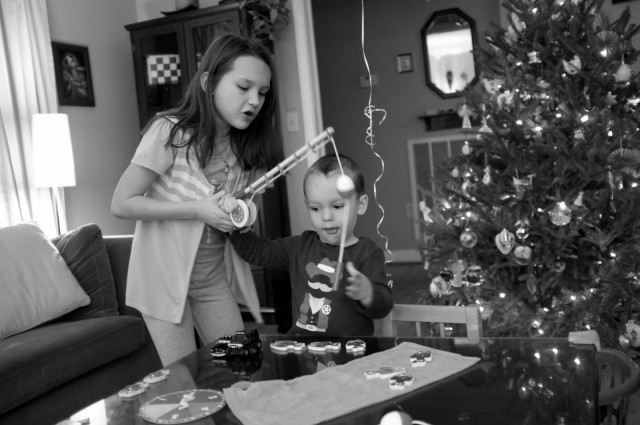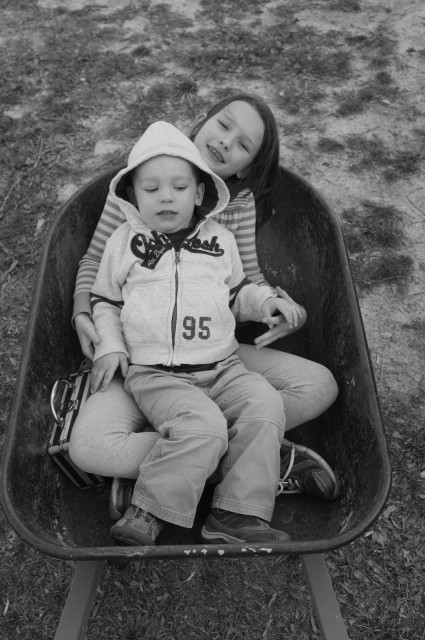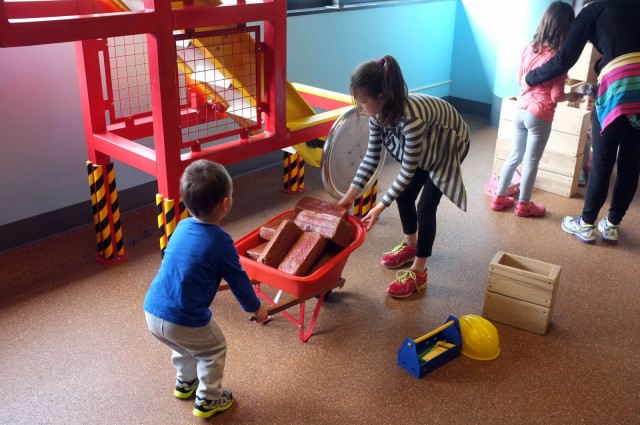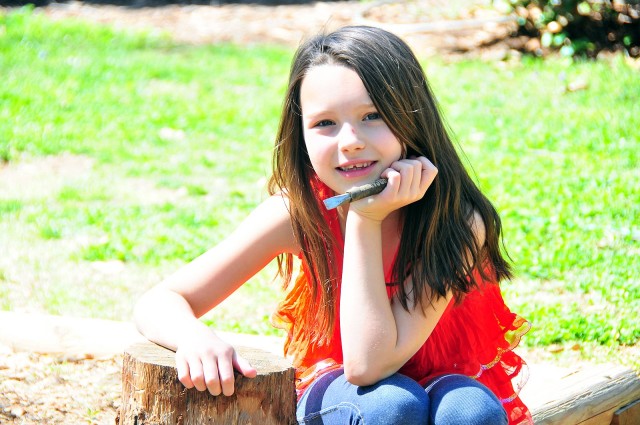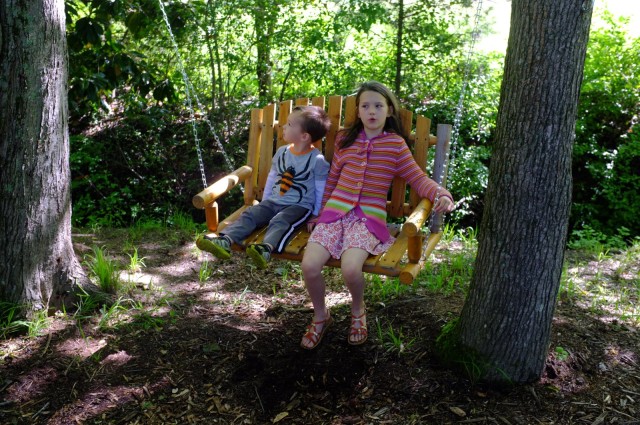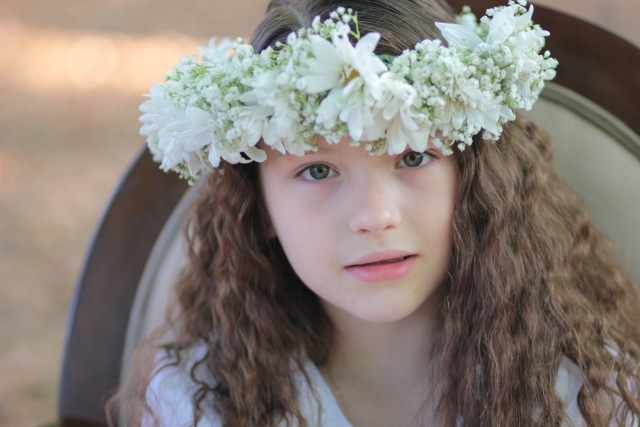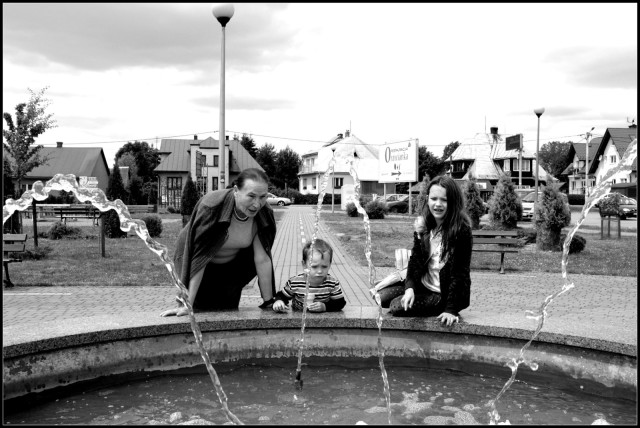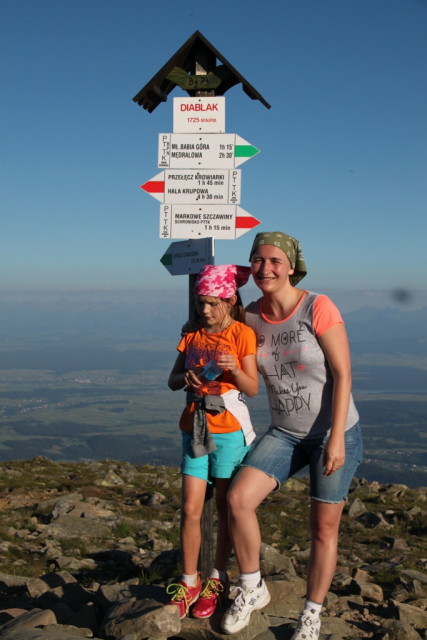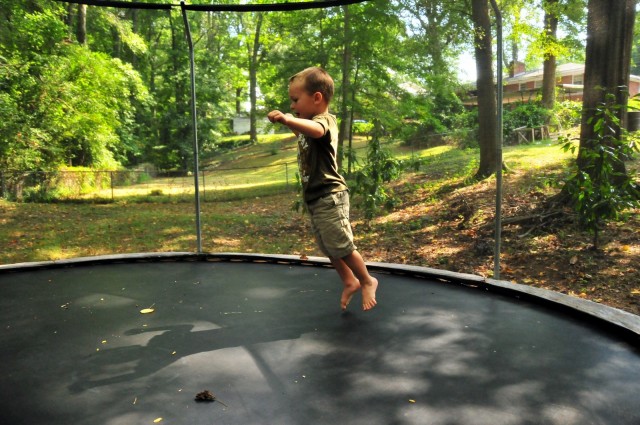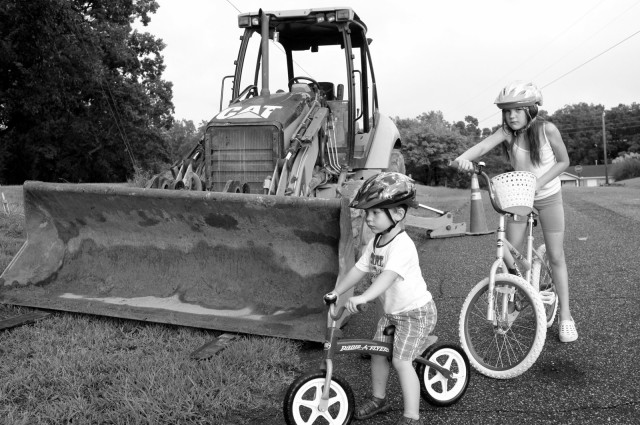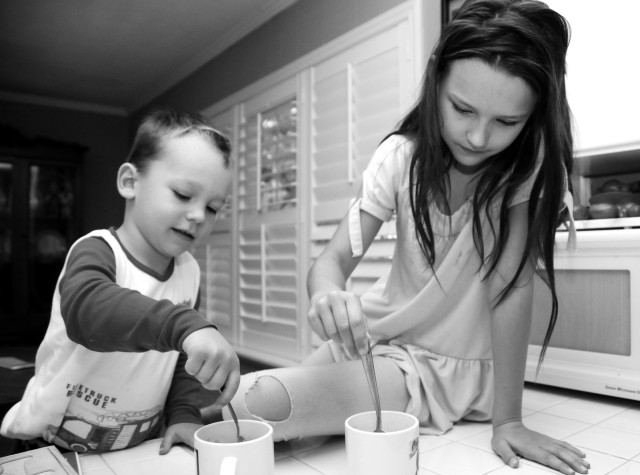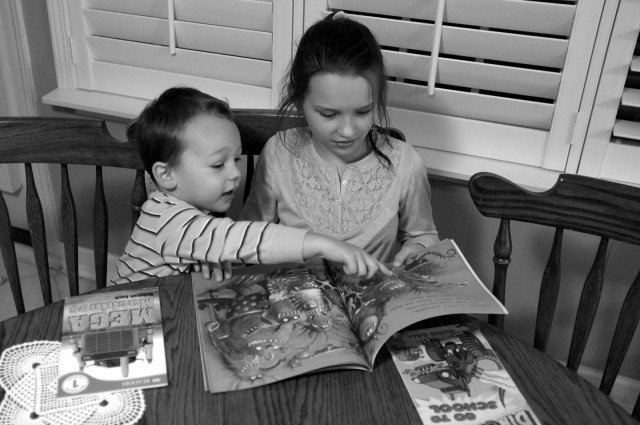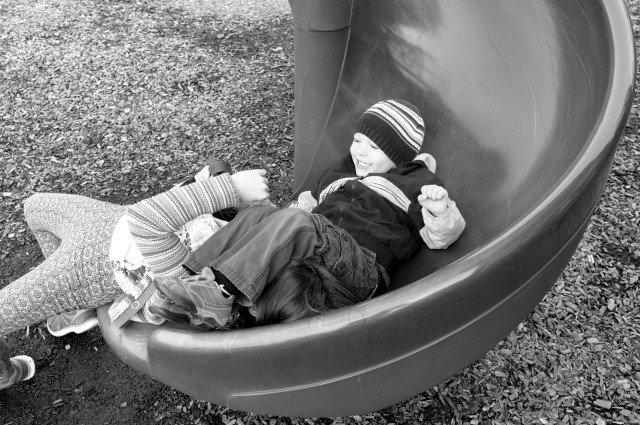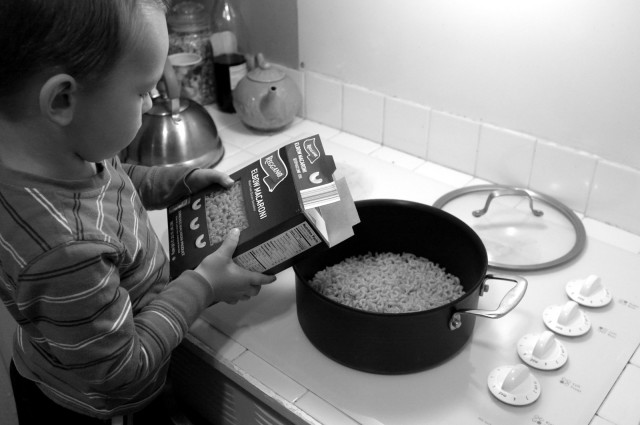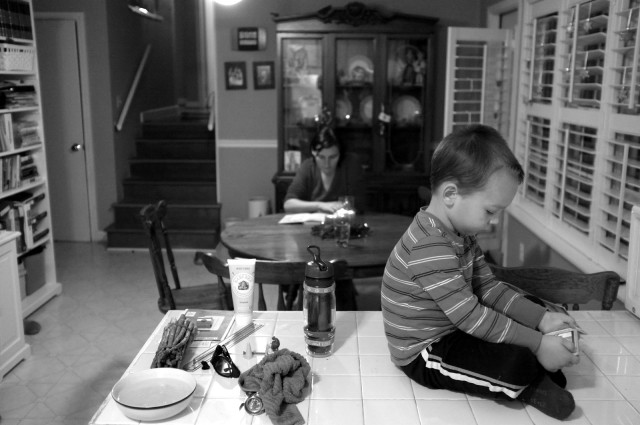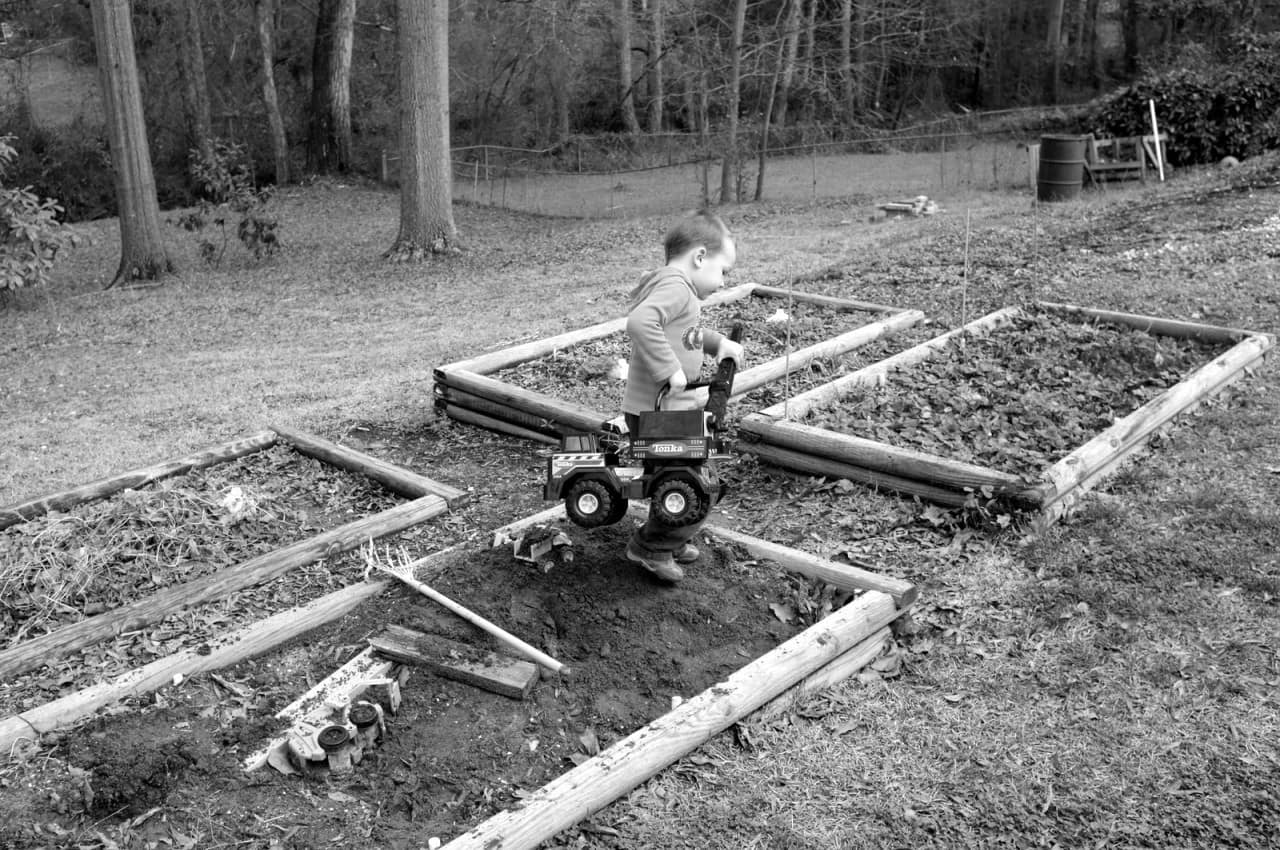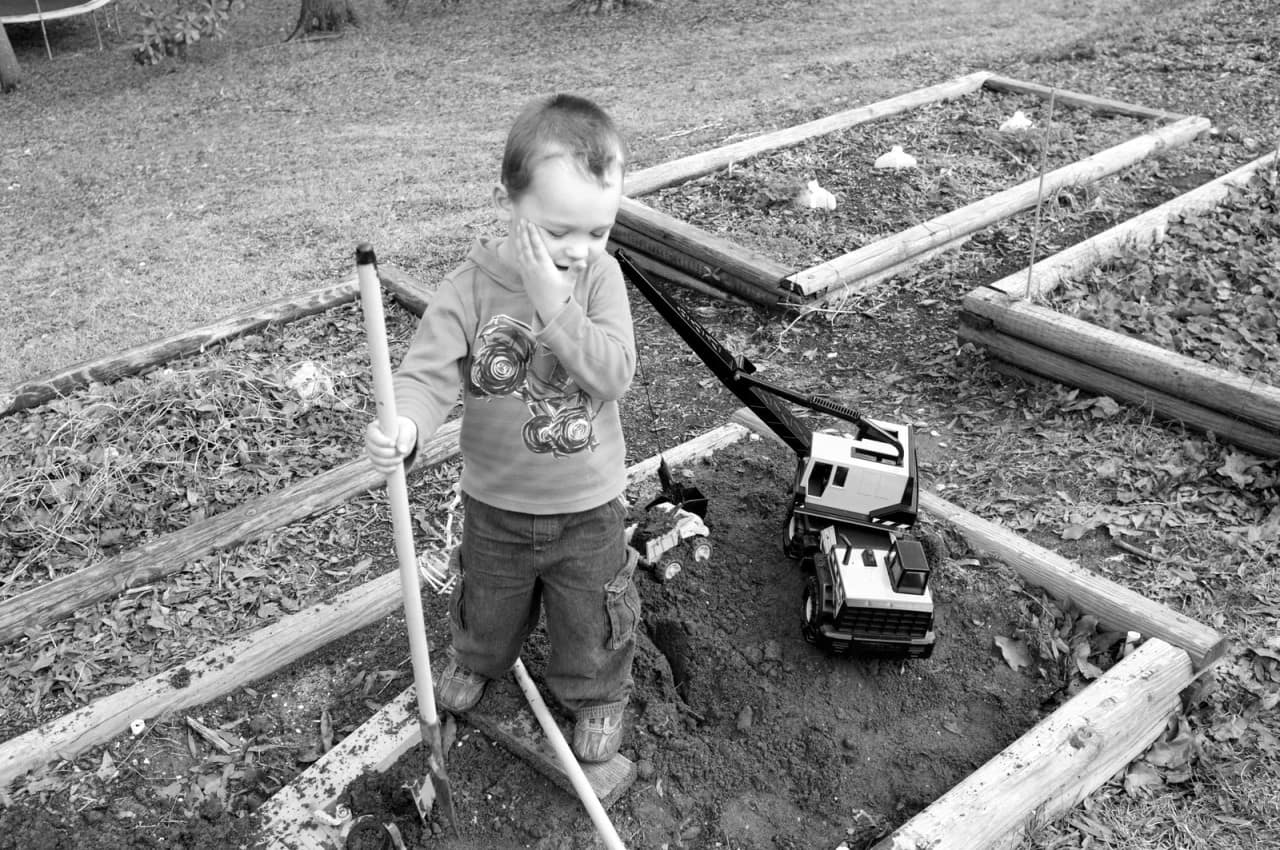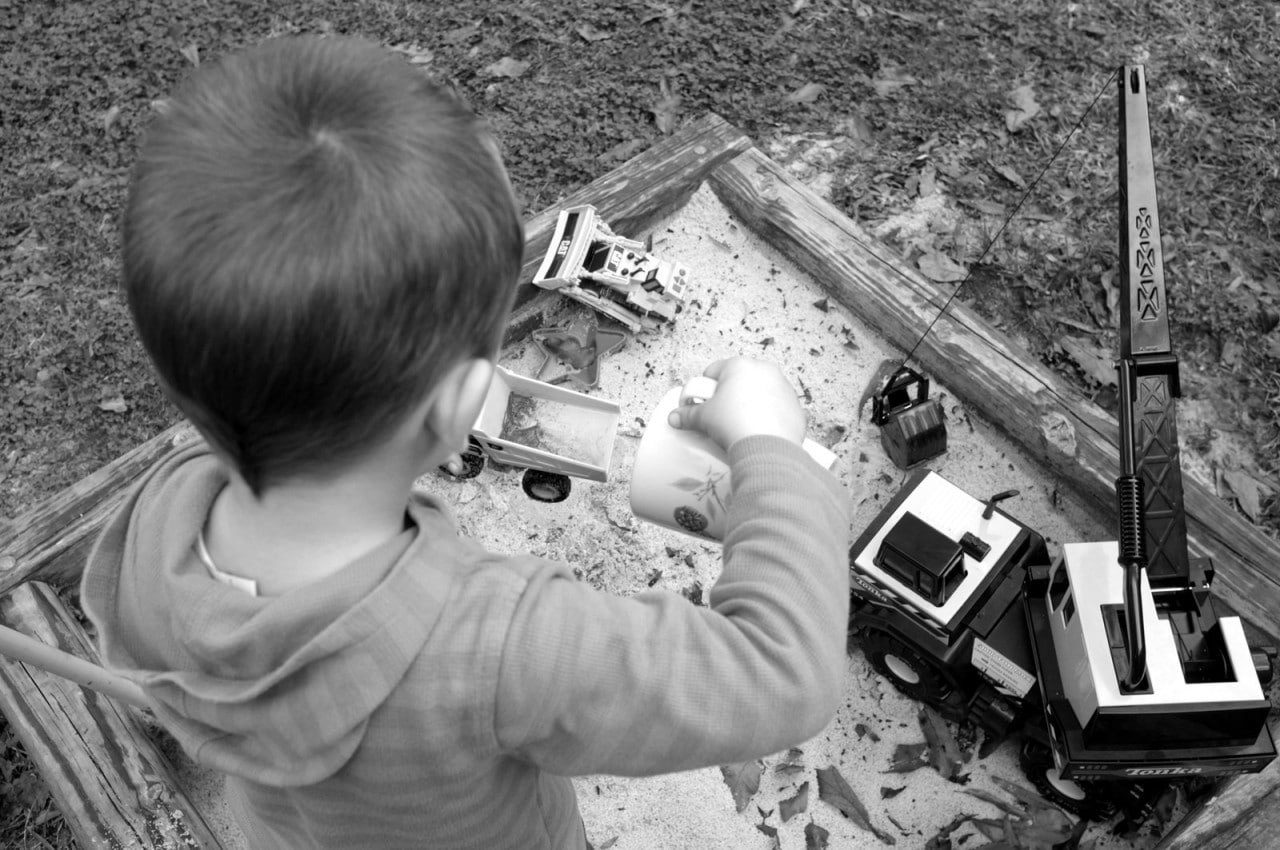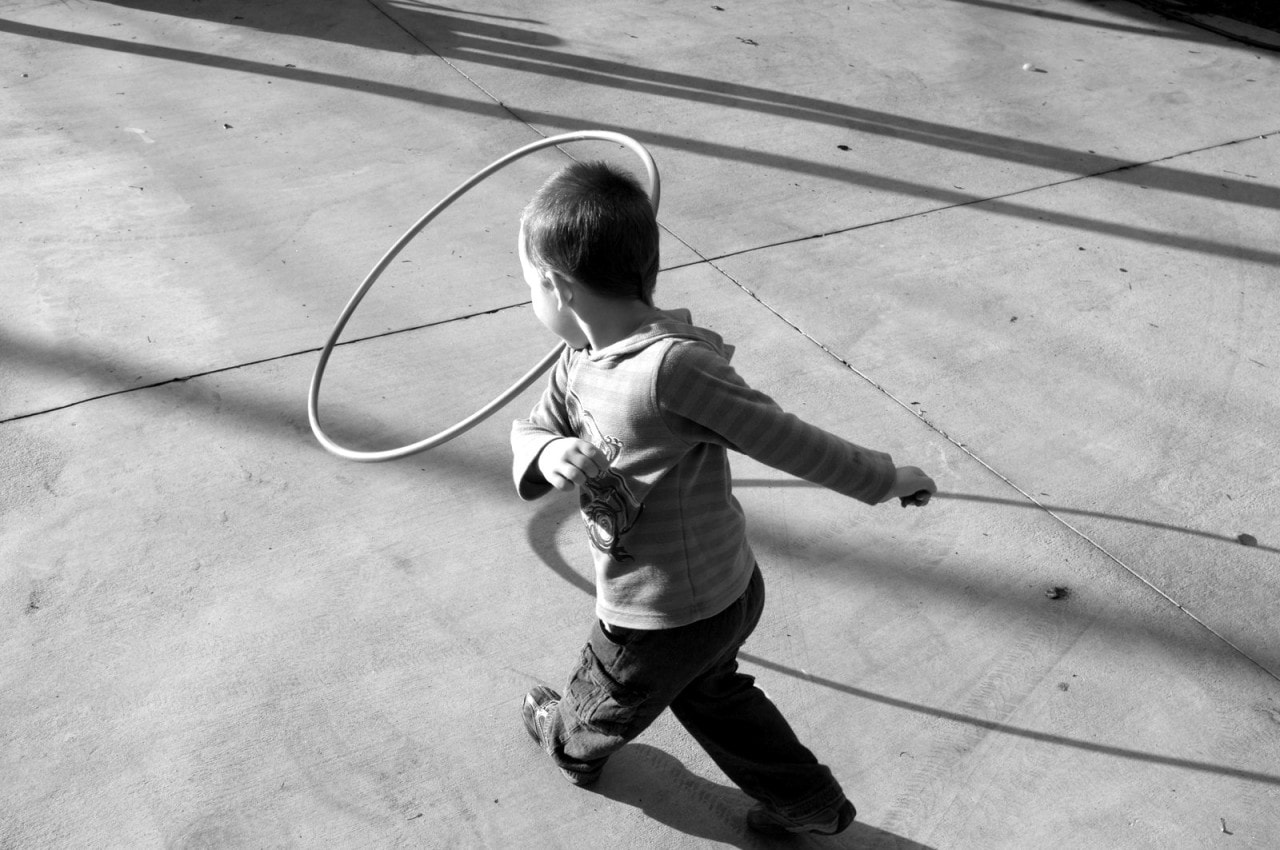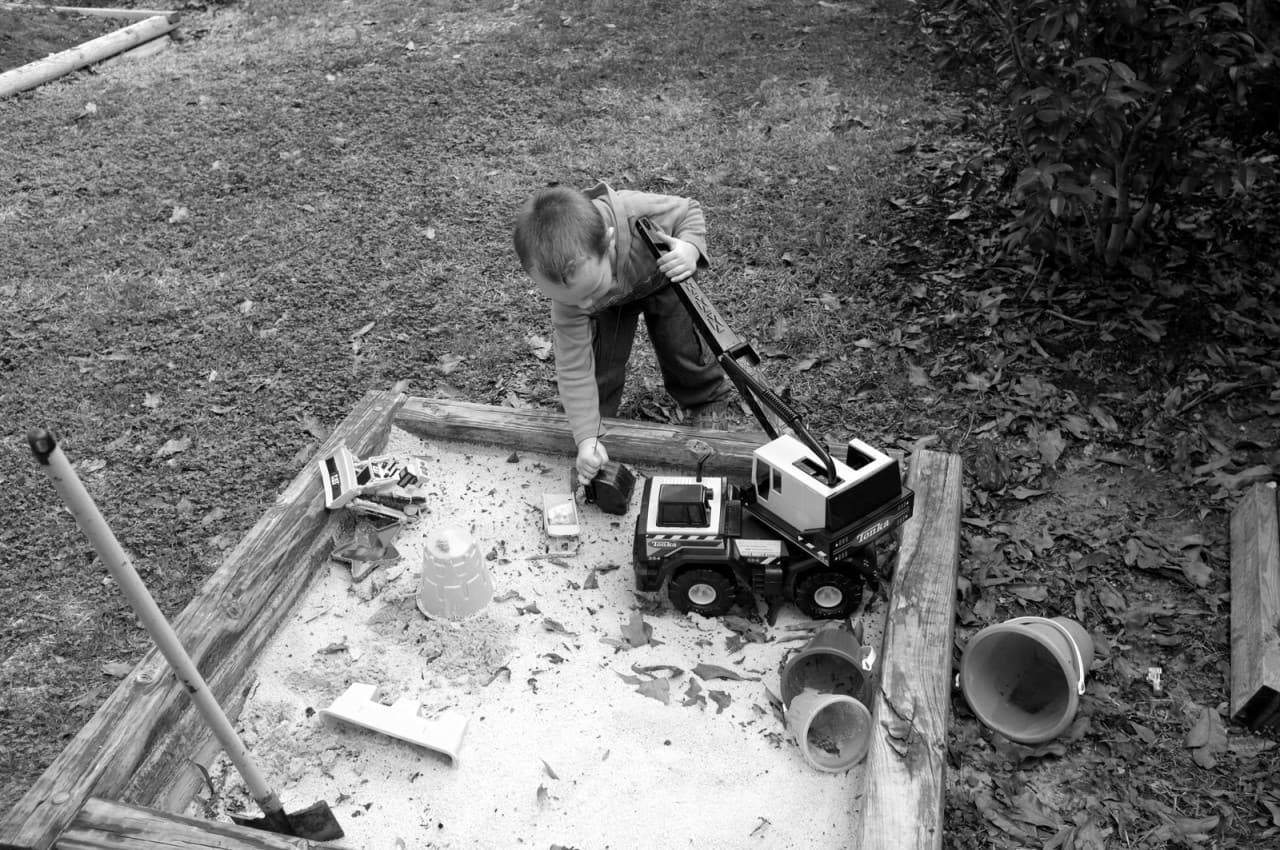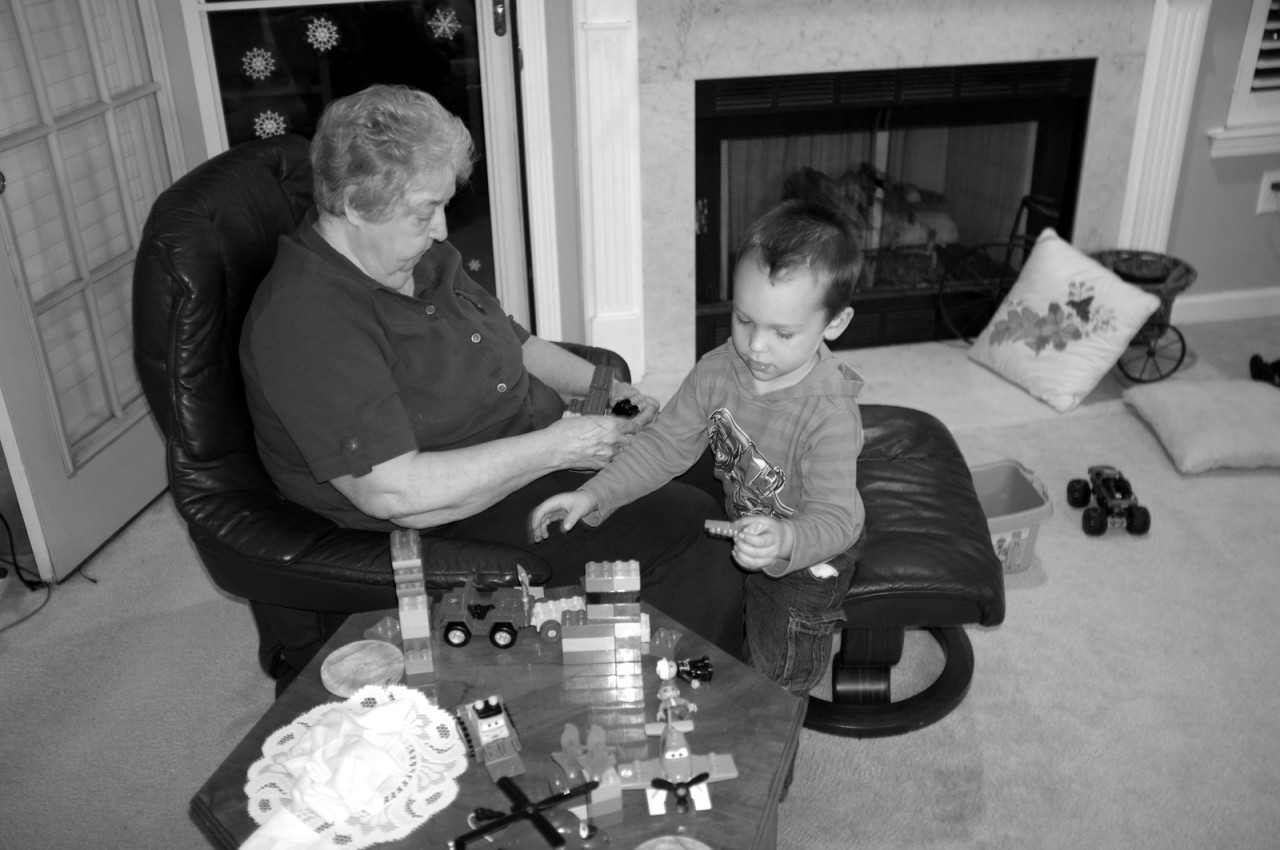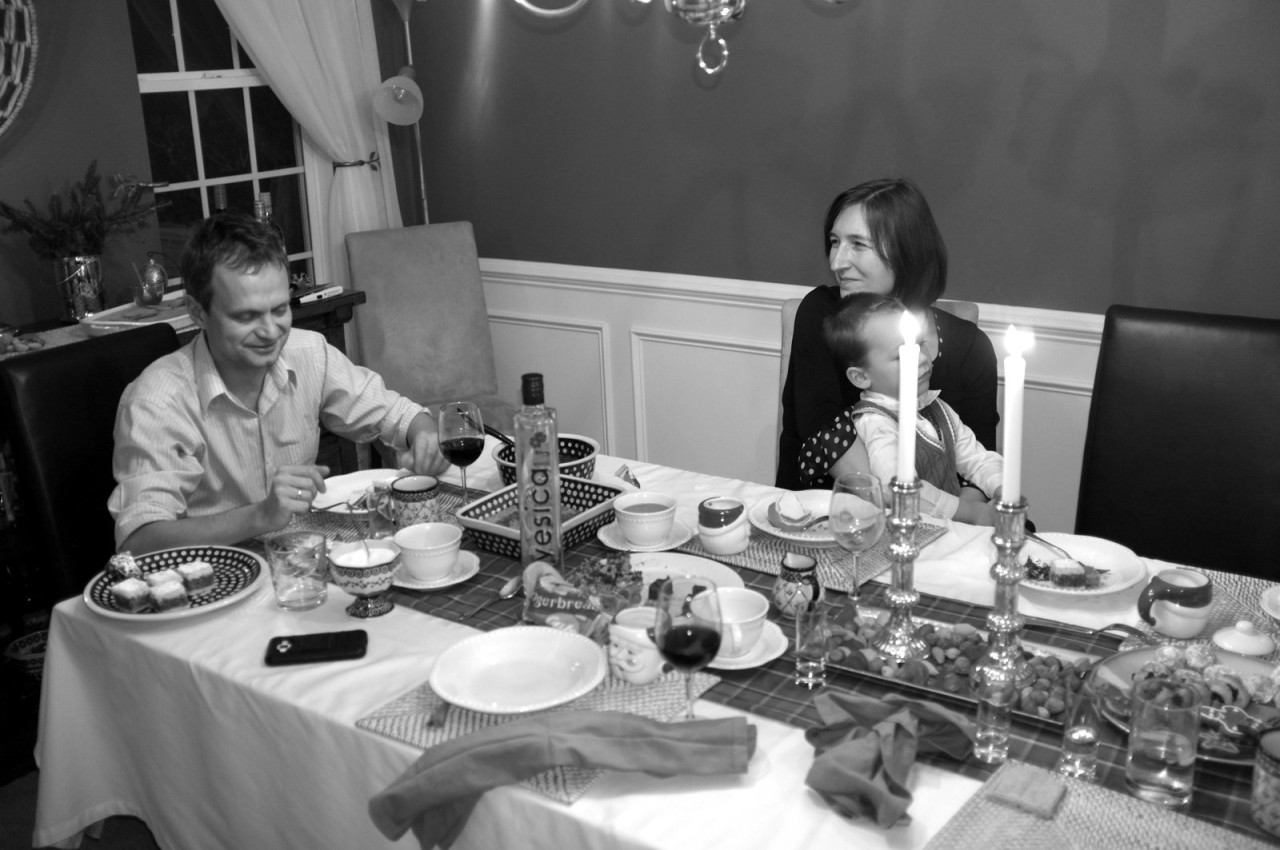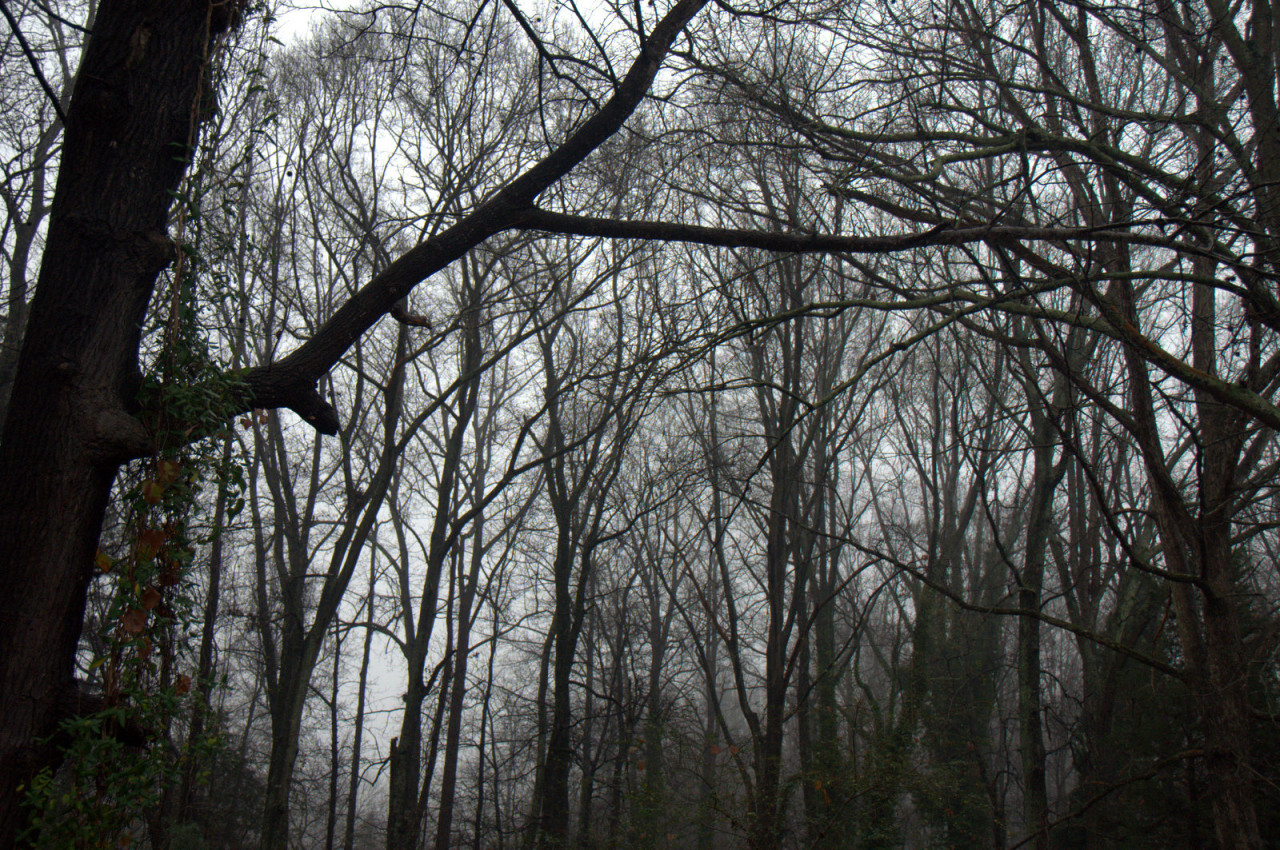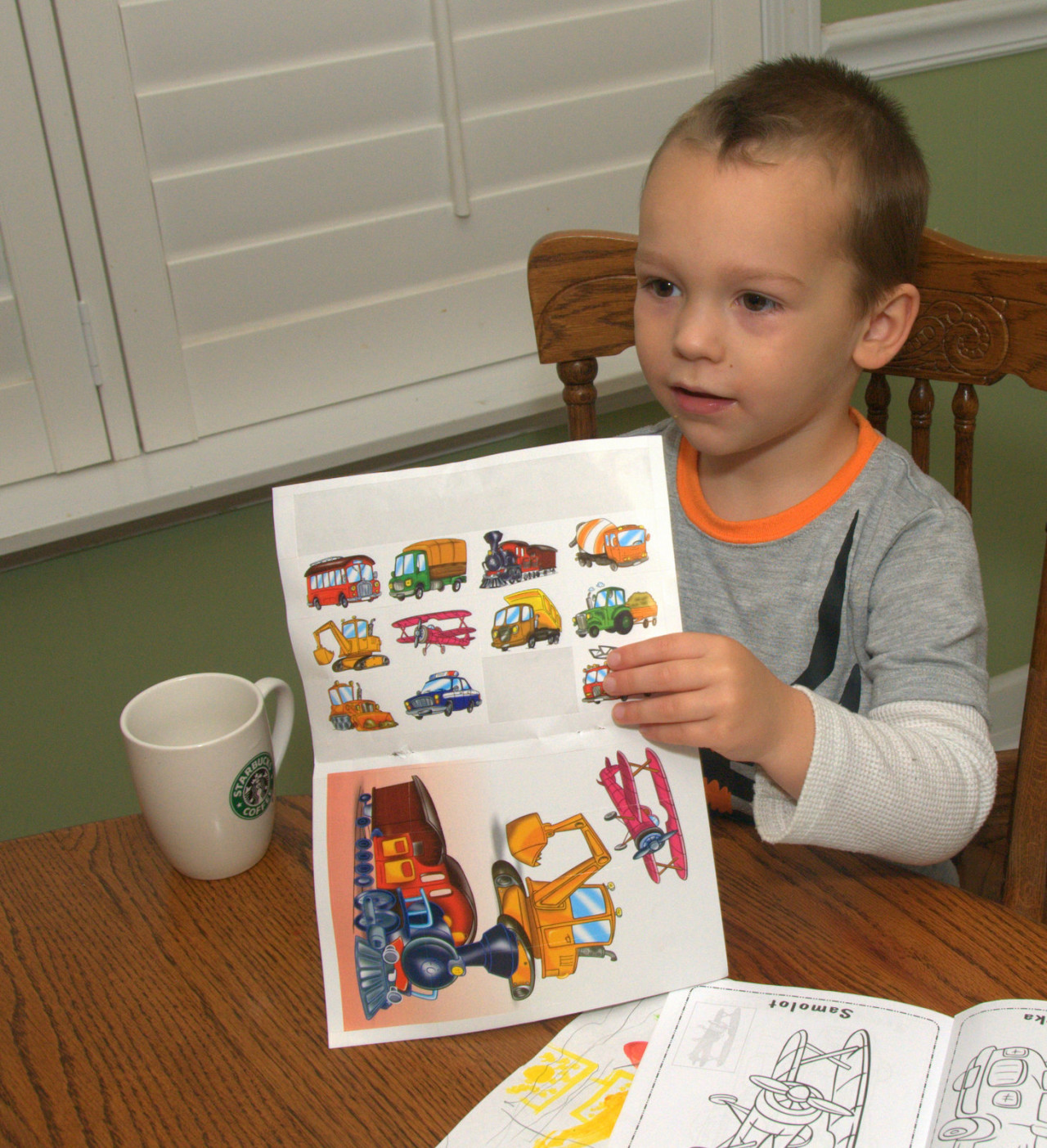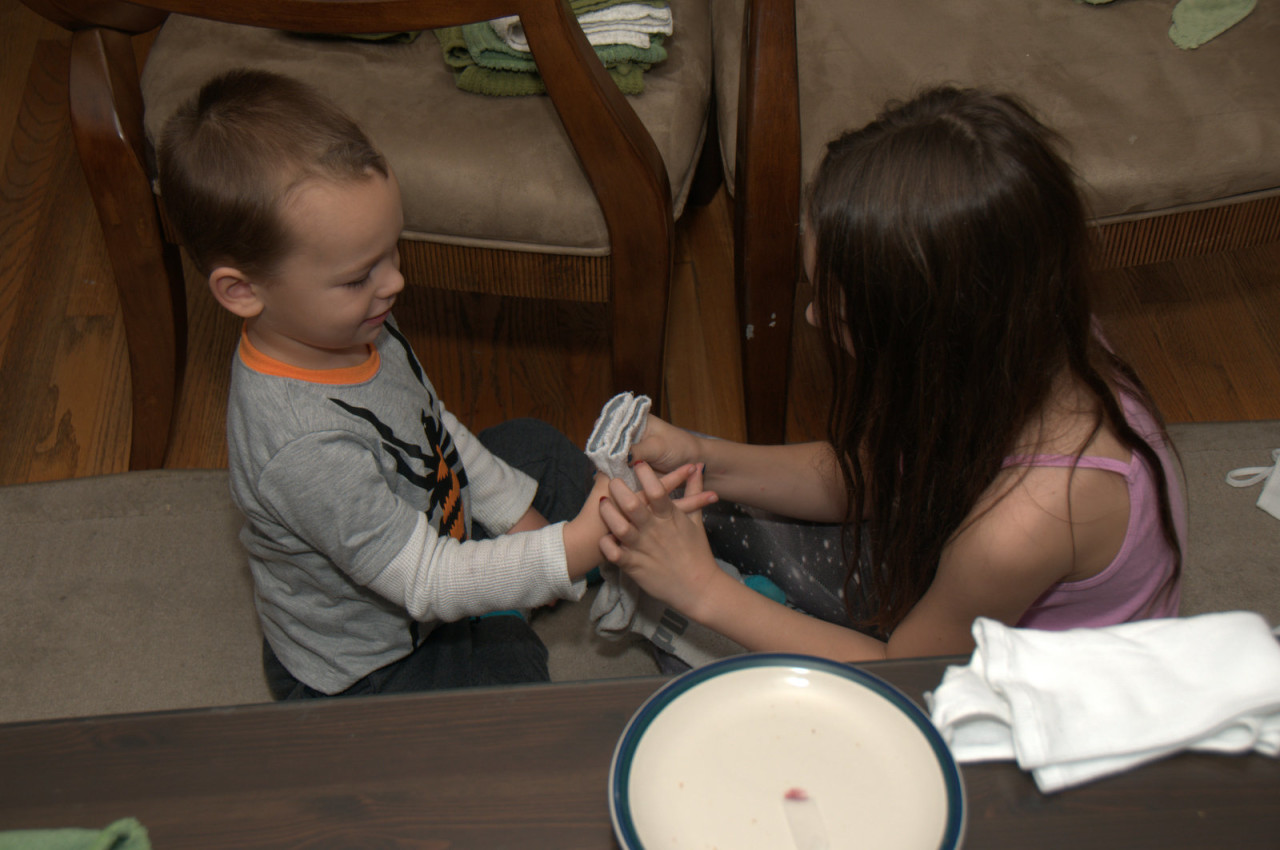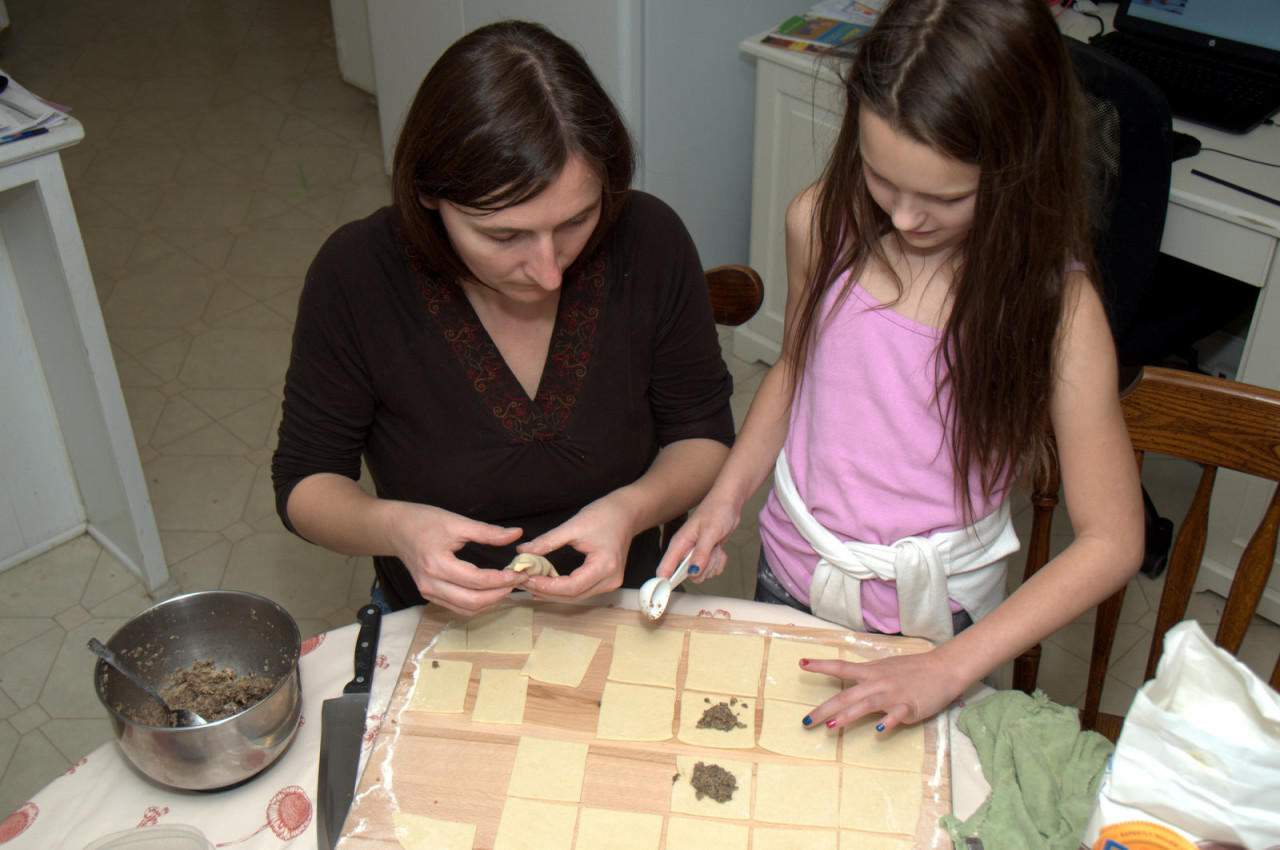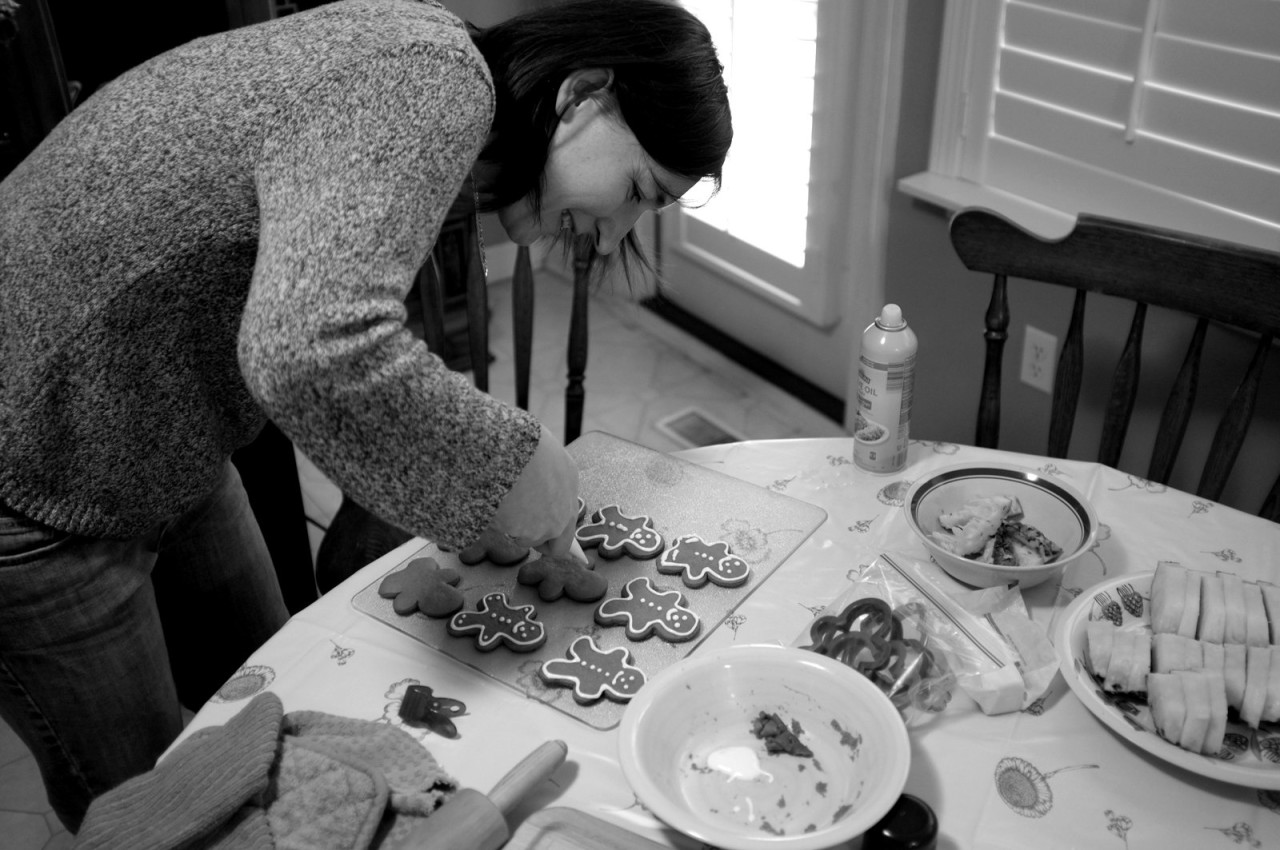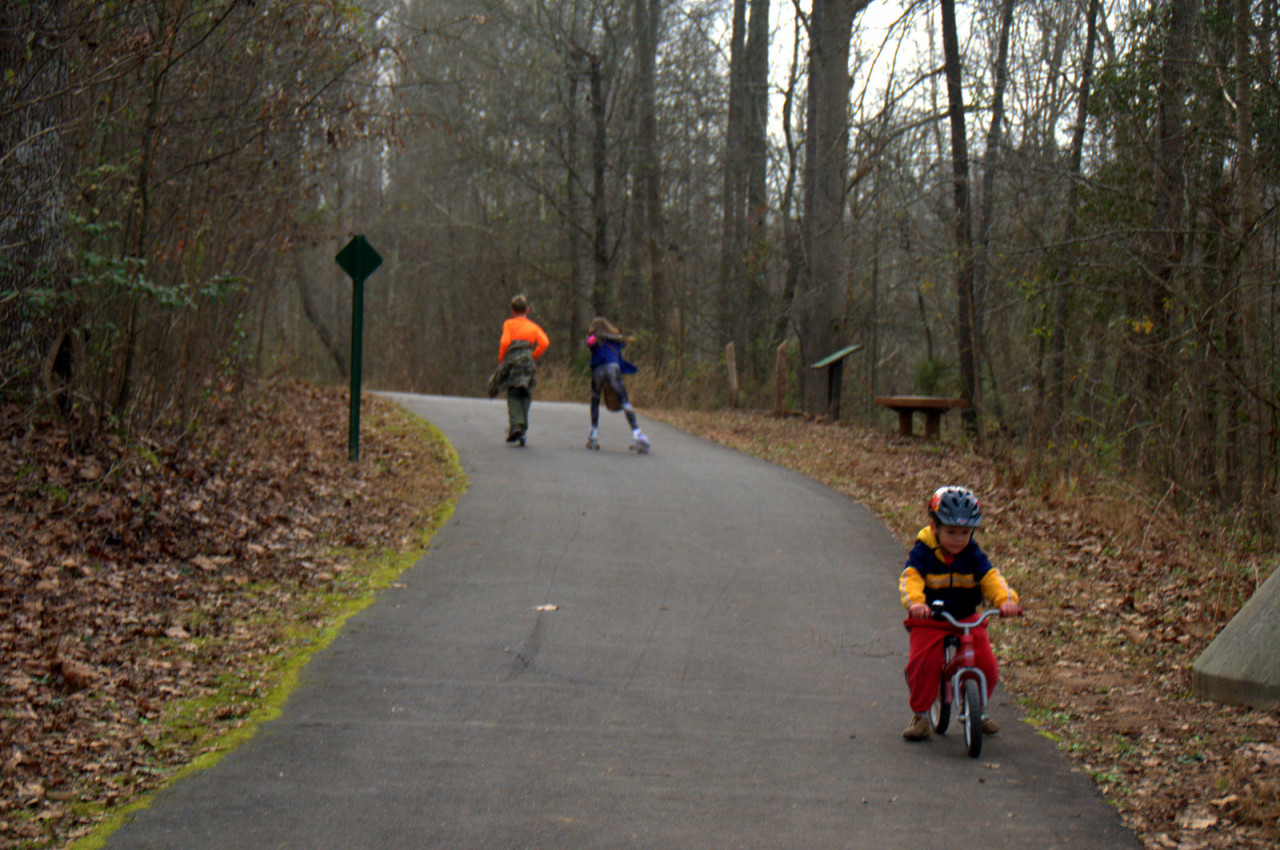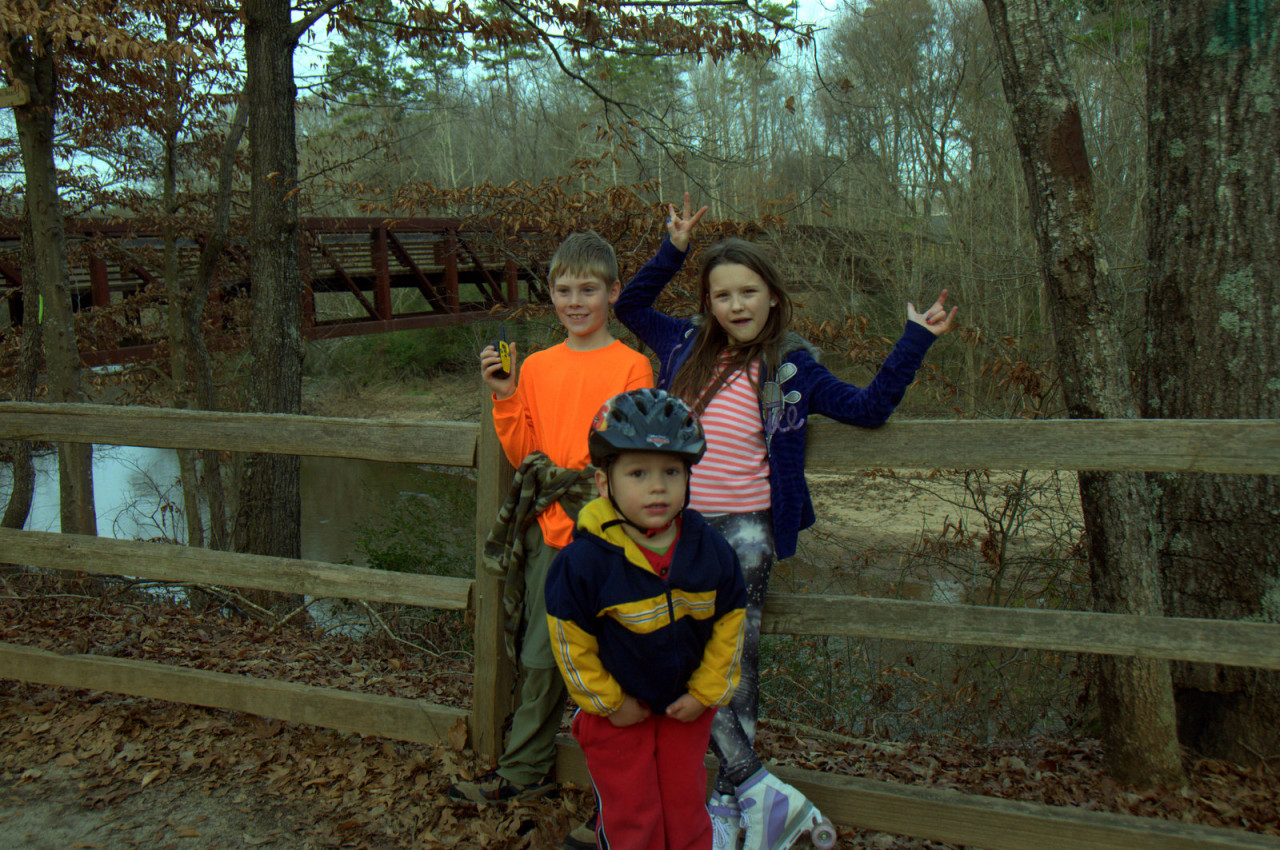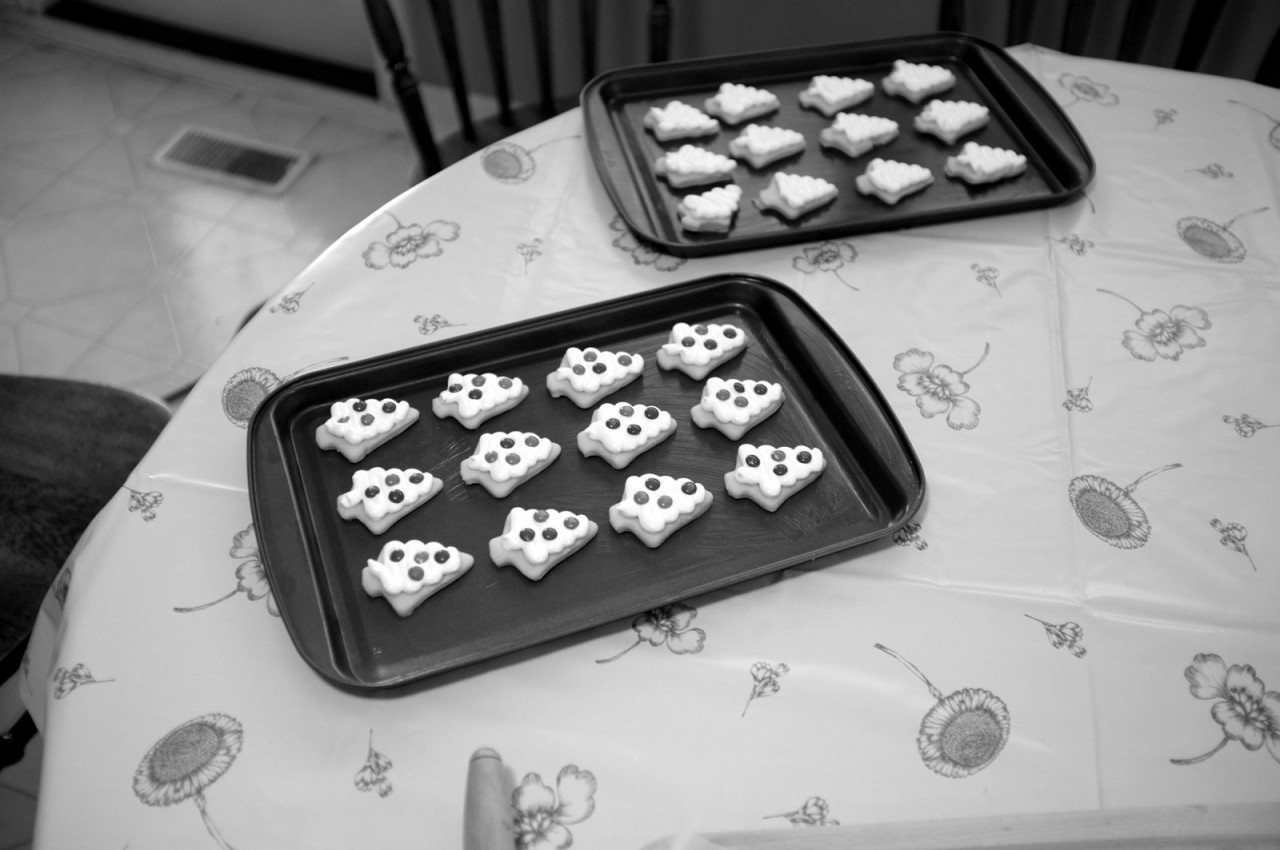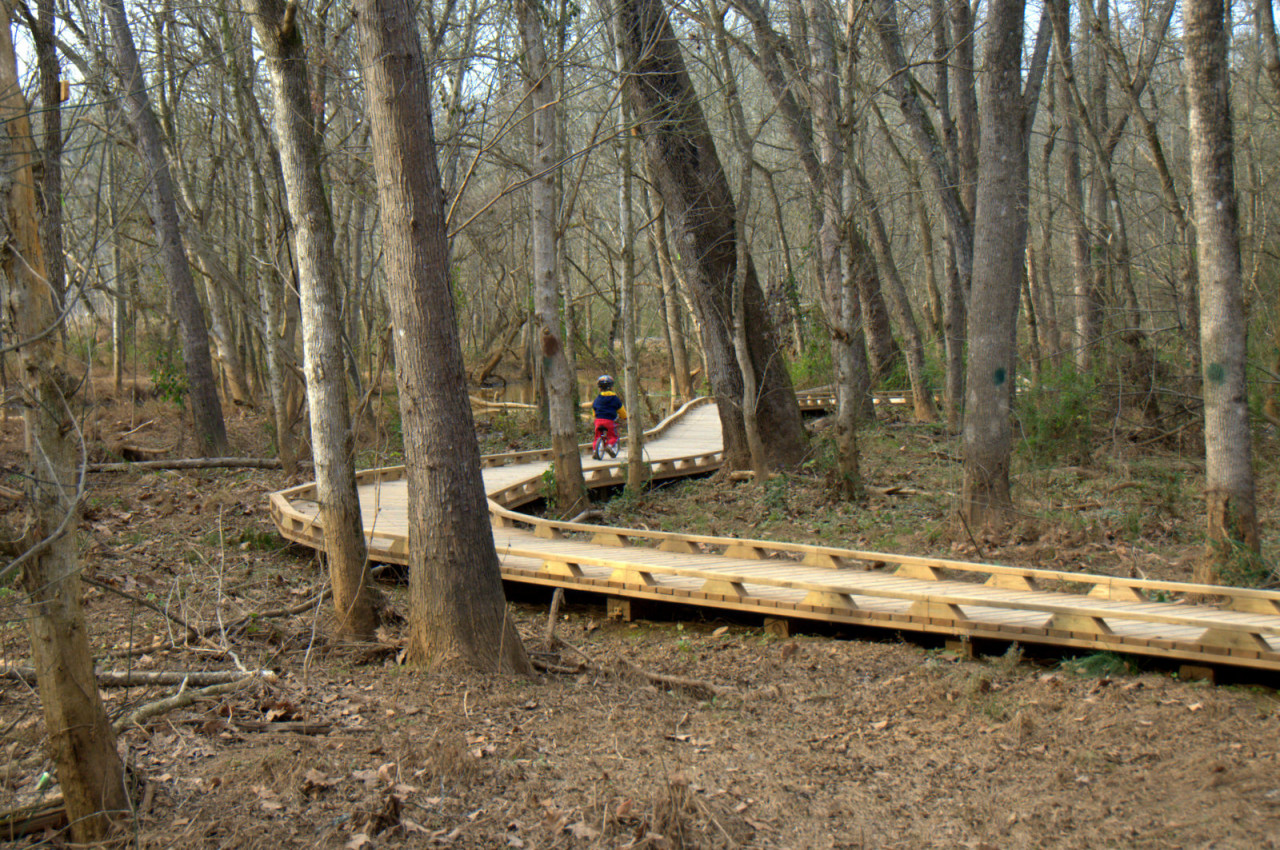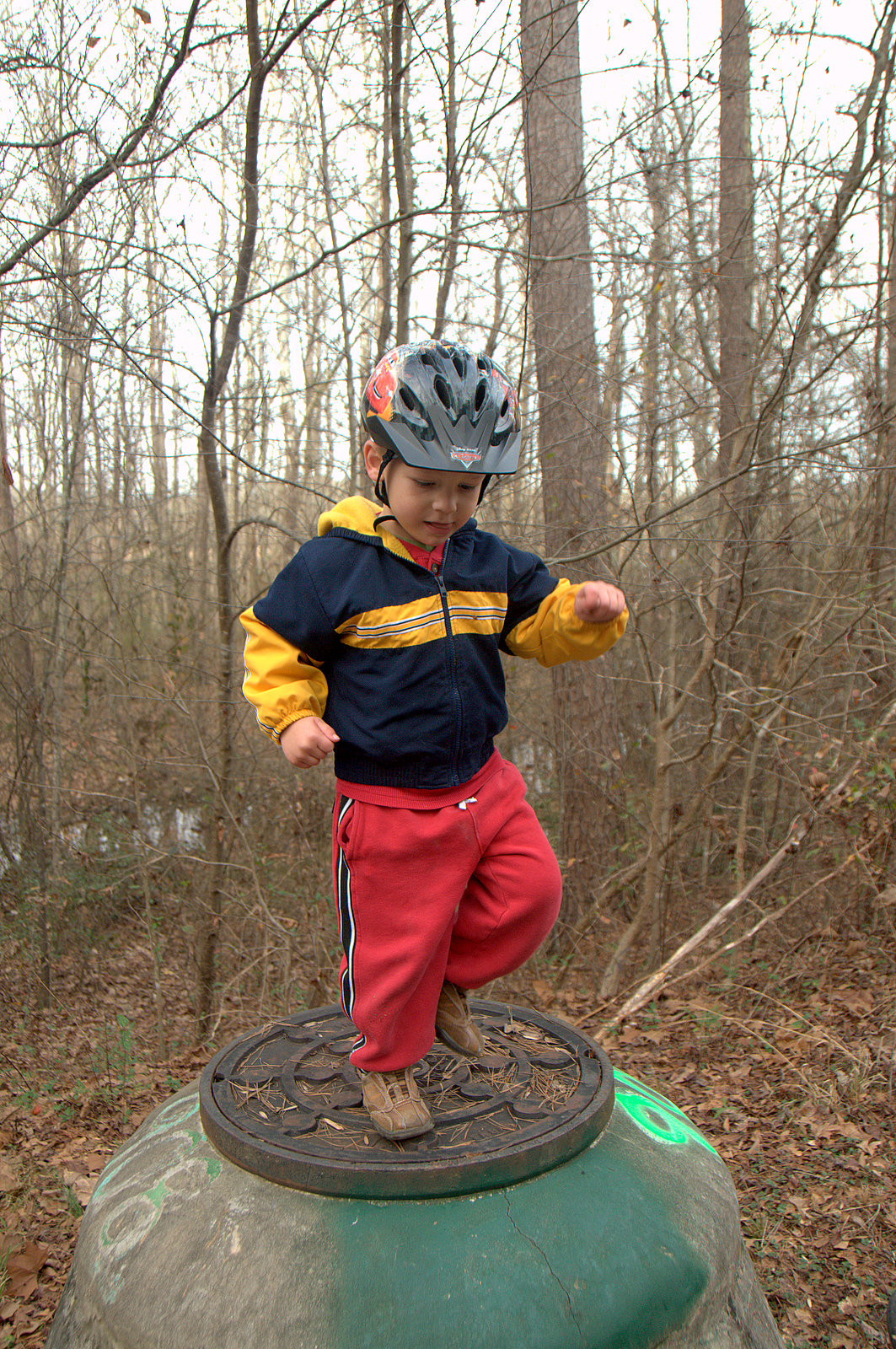For Granted
This evening, K and I finished out the day watching Iris, a film about the British writer Iris Murdoch. I know little about Murdoch, and I’ve never read any of her work, but the film stars Dame Judi Dench, so I thought it couldn’t be that bad, and it really wasn’t. Dench does a good job, as always, and it’s a tough thing, I would imagine, portraying a lively mind sinking into Alzheimer’s. It got me to research Murdoch, though, and I found a curious quote attributed to her about marriage:
I have a strong memory of an interview between Murdoch and the writer A.N. Wilson in which, when asked about her marriage, she replied: “Oh well; I love, and am loved.” She also informed Wilson that the benefit of marriage is being able to take the other for granted. (Source)
The article is entitled “The secrets of Iris Murdoch and John Bayley’s unconventional marriage,” and the article reveals that “She was apparently very sexual, and not only with John; he, perhaps, was less interested in matters carnal.” In short, she had multiple affairs, apparently fairly openly, throughout their marriage. In the film, Murdoch says to Bayley early in their romance, when he has just discovered her unfaithfulness, which she freely admits, that he just has to accept her as she is. She’s not willing to change for him, in other words. While that might be admirable in some areas, in sexual promiscuity I find it a bit selfish, and I found myself wondering at the end of the film if that’s what she meant in the interview (I researched as the film uncoiled) about being able to “take the other for granted.”
I take so much for granted it’s not even humorous in the slightest. I take for granted that I will have a dry place to stay when the rain pours and pours as it has for the last several days. I take it for granted that I will walk up and see my wife and children in the morning and carry on my life like normal. I take for granted that I can slip downstairs late one evening, occasionally light a cigar and pour a little libation, and write.
I take for granted that my family will have food to eat, and that if, after returning home from inspecting the neighborhood during a let-up in the downpour, we decide to have mac and cheese for lunch, that we can do just that. And I take for granted that I can take all these things for granted.
And that is probably why I have always been somewhat obsessed by time and its passing. Like so many others, I get into the habit of taking things for granted, and when they come to an end, as this year is or as our extended holiday break is, I realize unconsciously that I’ve taken it for granted and not made the most of it. At least I did. Having children changed that to a degree
I learned to be aware of each passing moment because it was just that, a passing moment. This is especially true since the birth of E. The Girl’s first years showed me how one can grow accustomed to — take for granted — the little quirks a child exhibits as she grows and then suddenly, one realizes that the child has outgrown that quirk.
Now I’m still obsessed with time, but the obsession has changed. No longer do I find myself thinking, “This wonderful experience is ending, and I’m not sure anything coming will ever be as magnificent as this,” for that was how I framed my taking-for-granted nature. Instead, I find myself shocked at how quickly time as passed, regretting slightly the moments I’ve taken for granted and more determined not to do it any more.
Tuesday
With a break in the clouds, the unseasonably warm temperatures, and a free day for everyone, there was only one place to go: the park.
First a bit of playground fun. L has been growing more creative in her daring, but still needs a bit of help every now and then. Her grand idea of swinging down from the monkey in one fluid motion ended with frantic calls for help. Her insistence that she could take whatever spinning madness I could produce on the tire swing ended with her begging me, though not in a panic, to slow her down.
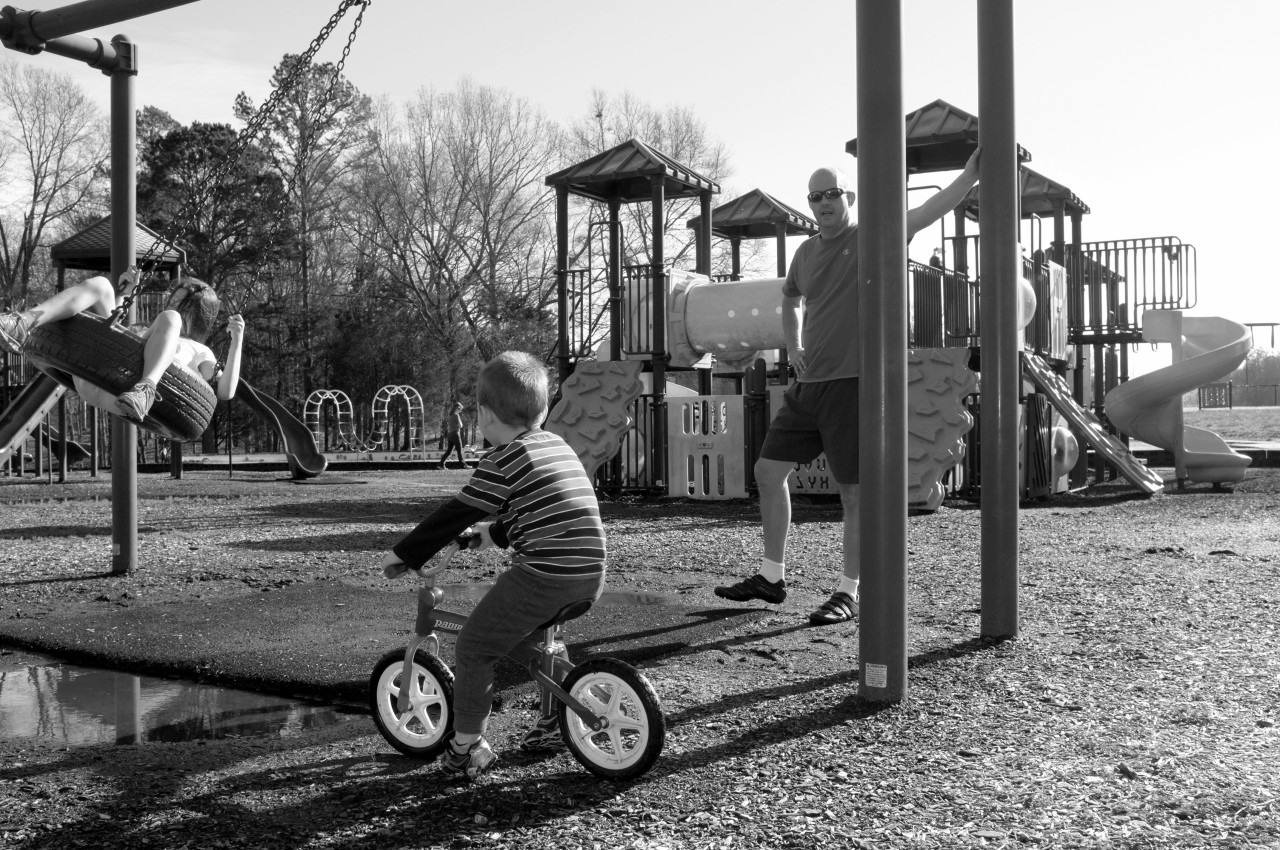
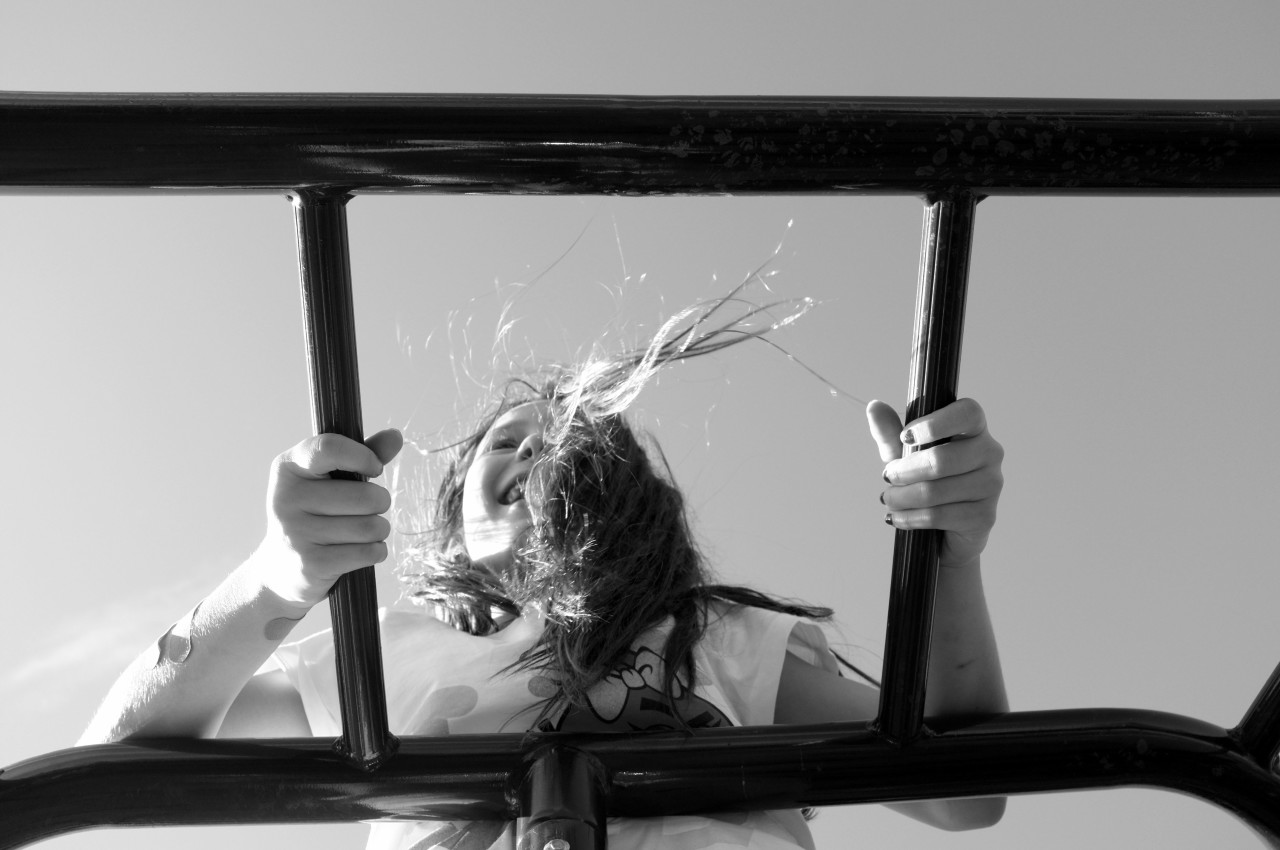
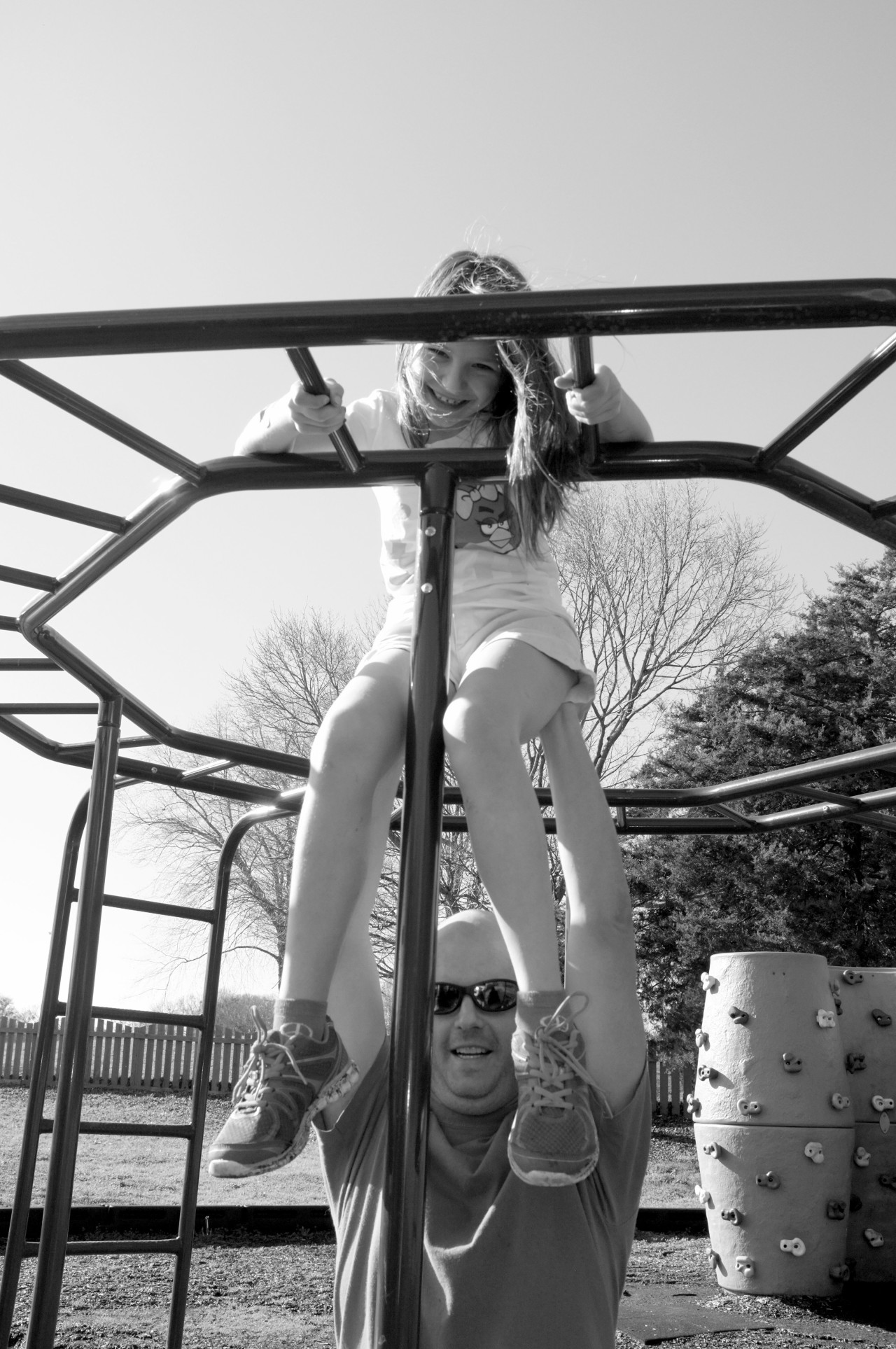
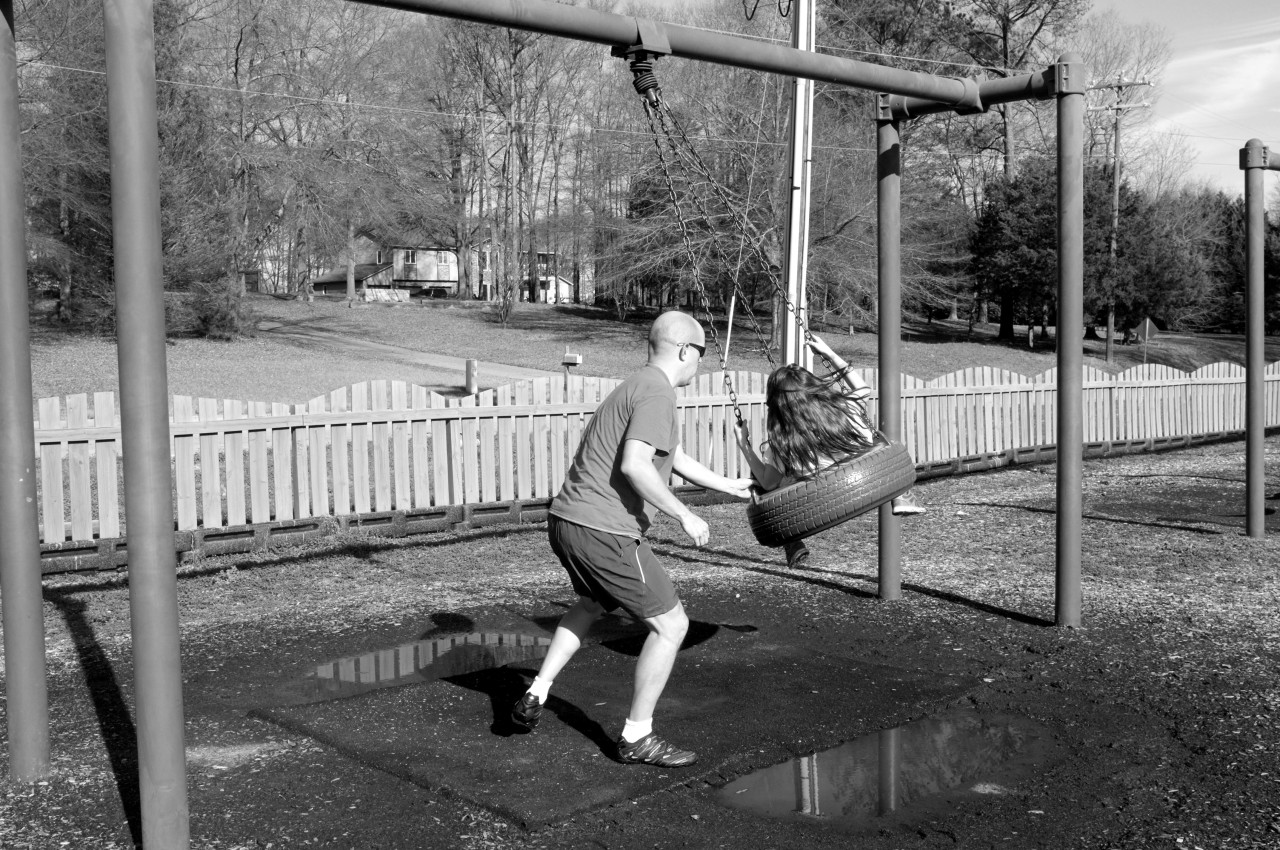
Afterward, bikes. It was fairly amazing to see how L has changed with her bike riding. Adjacent to the park we were visiting was an abandoned BMX race track, with only the starting gates remaining. The Girl was eager to try riding down the lower portion, below the gates themselves. Once I showed here how to navigate the lowered starting barrier, she rode down the concrete ramp seemingly countless times. And the Boy, as he always does, imitated her. Yet, also as he always does, his trusted his intuition and didn’t even want to try going from the top of the ramp.
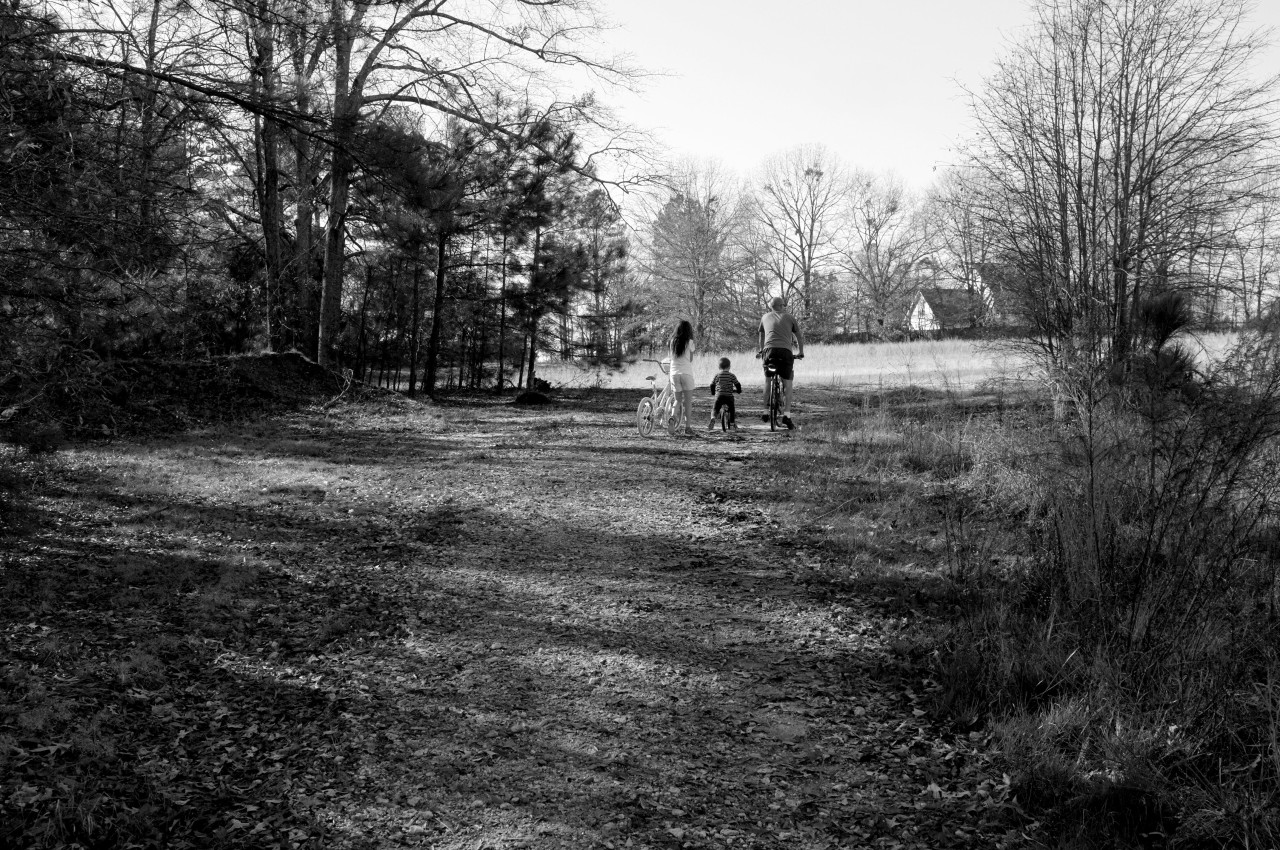
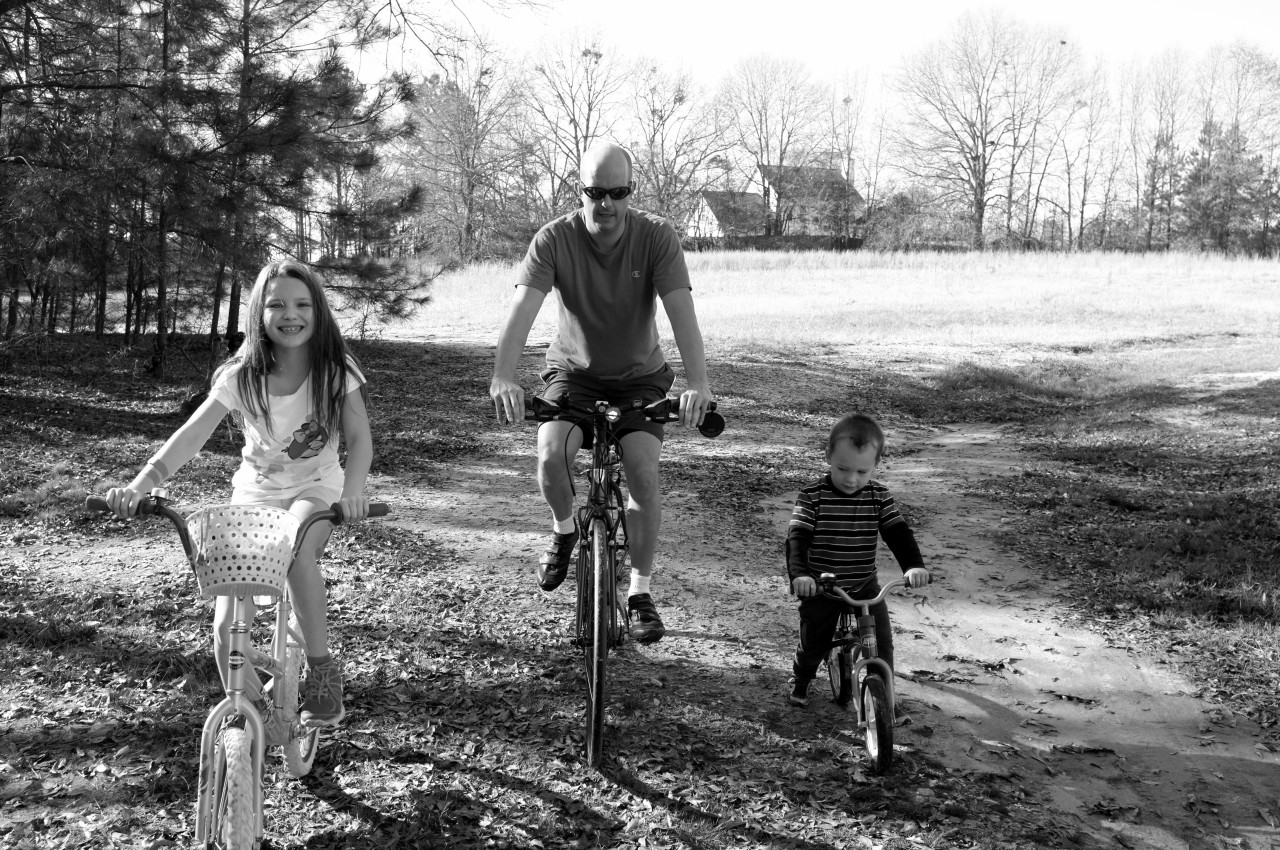
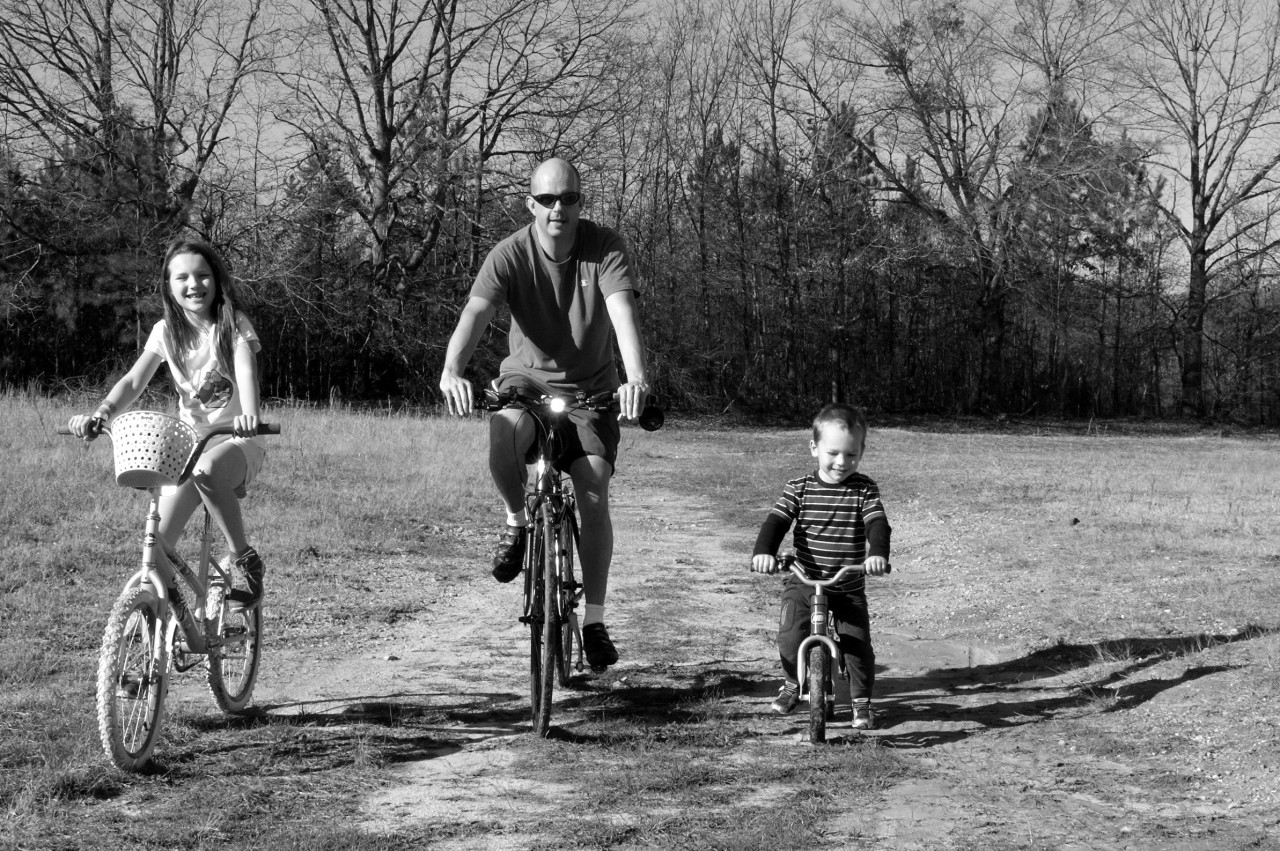
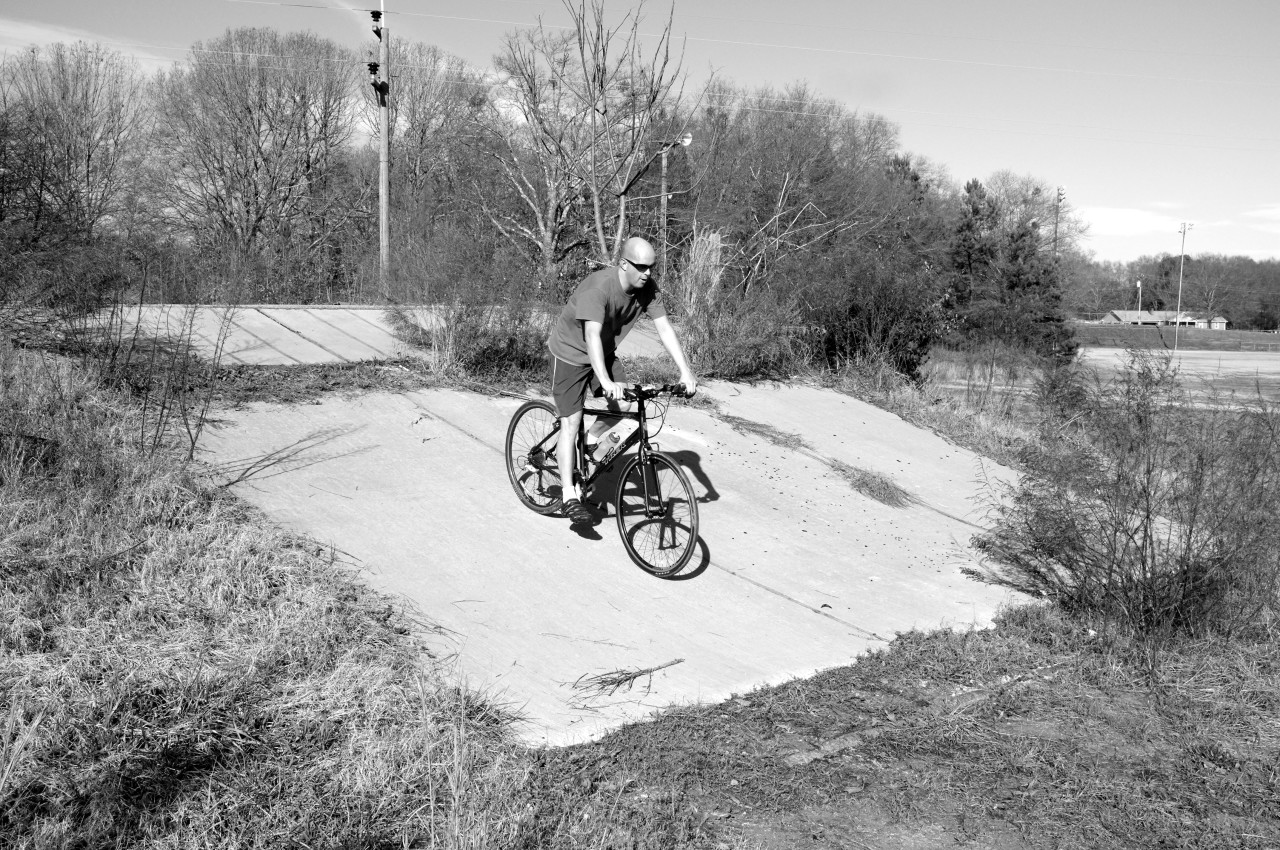
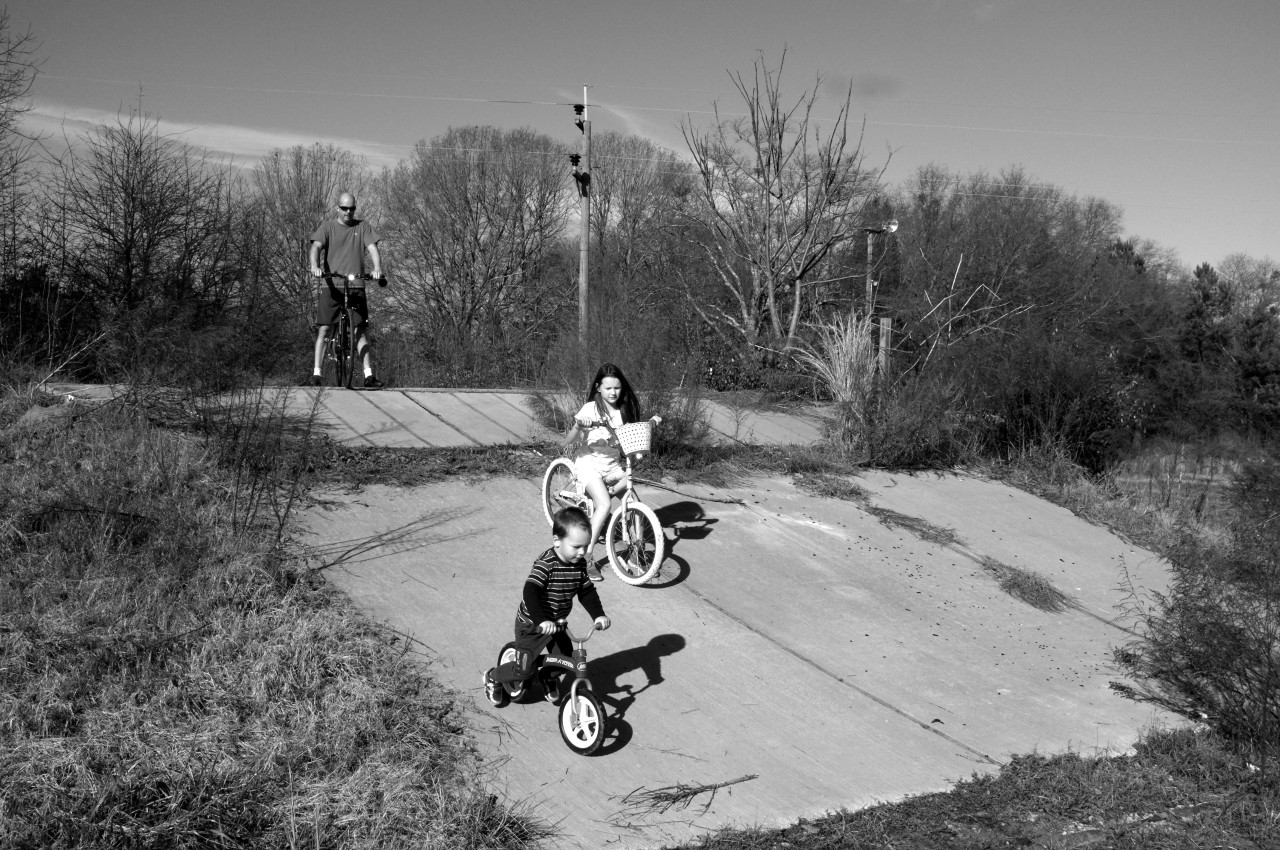
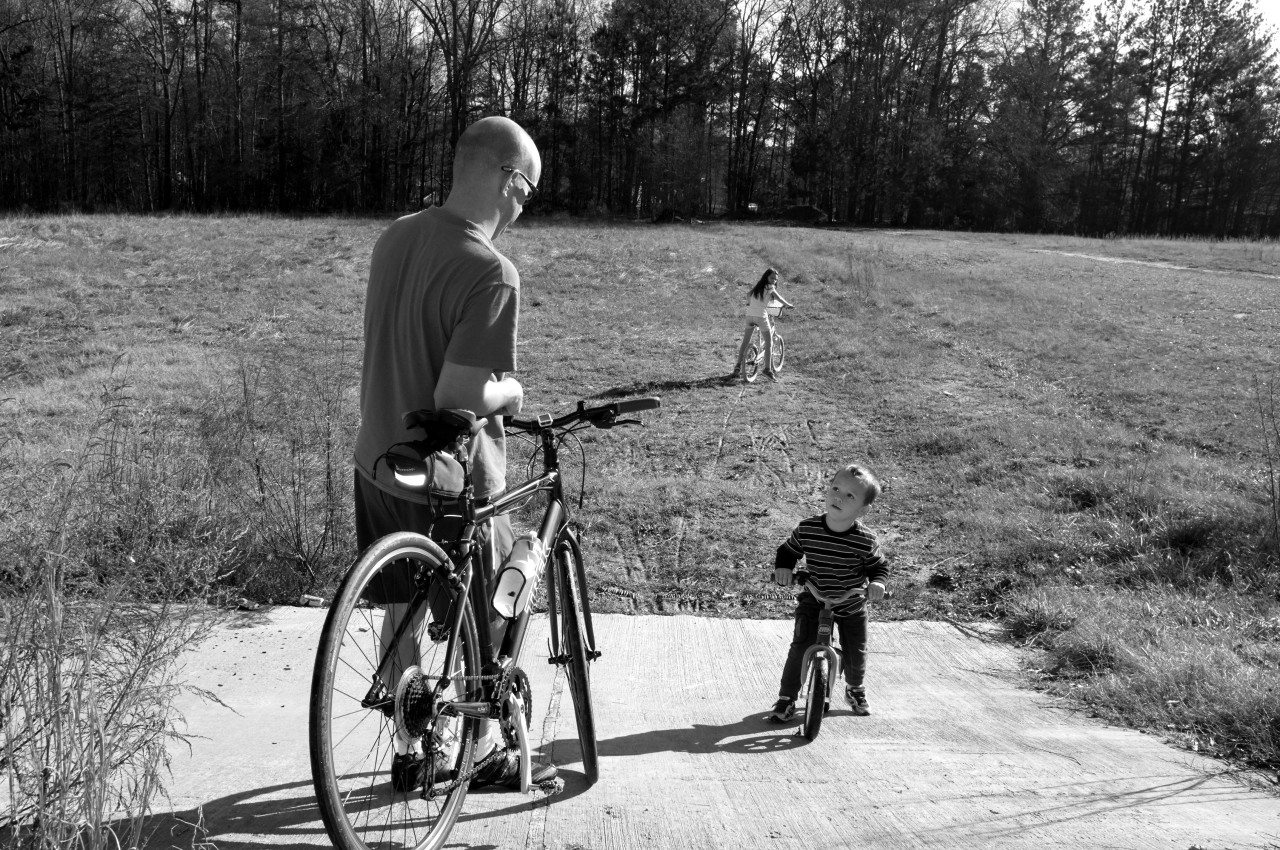
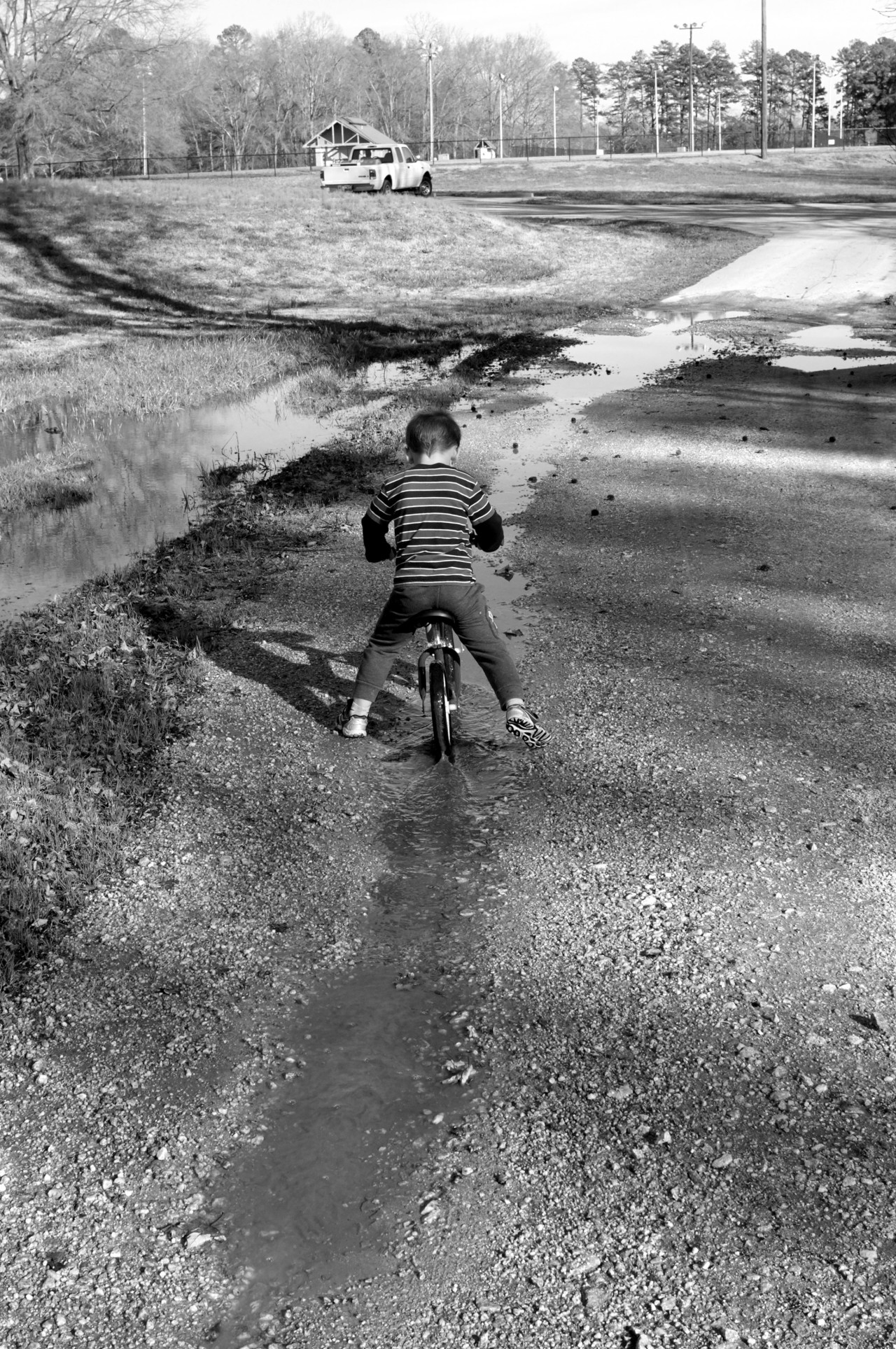
Finally, an odd adventure: we’ve had a leak in the crawl space, and I’ve tried a few things to figure out what was causing the leak exactly. When I suggested that the Boy could go into the crawl space with me to check the latest effort, he was literally ecstatic. “Daddy, I love the crawl space!” And as L always does, she wanted to join us. I took the camera down to snap a few shots of the damage (which was not as bad as I thought), and of course I had to take a quick picture of the kids in a once-in-their-lifetimes location.
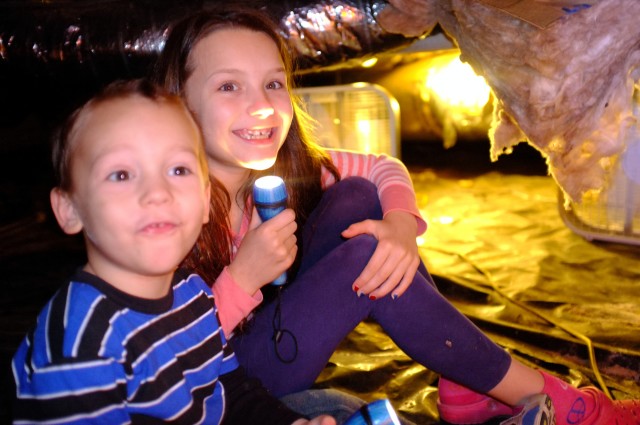
And while that bit of hanging insulation looks awfully close to them, it really wasn’t — an effect of the lens.
Sunset
Water
We can’t live without it, but for the past week, I can’t say that I’d be too unhappy to give it a shot. The evening before Wigilia preparation, several days of rain took control of our basement and my whole night: it became pouring, literally, up one of the formerly-thought-to-be-plugged termite treatment holes. At about midnight, I was shop-vac-ing sixteen gallons of water every eight minutes. The rain stopped at around one, and I finally stopped sucking up the water at around three.
And now, less than a week later, we’re in the same situation. Days of rain, and then this:
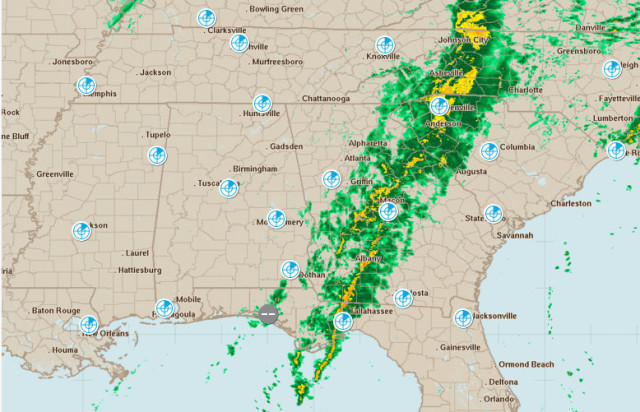
A line of storms that’s just moving northwest straight through our little state. And so I’m up at past one in the morning again, writing this (planning to back-date it for obvious reasons), waiting to see if the rain stops, wondering if my second third fourth who-knows-which attempt at patching the holes will at least hold for this deluge.
But I’m not complaining, though it sounds like it. I know it could be worse. I know others are experiencing worse — everyone on our street, in our neighborhood, is experiencing the same thing and then some. And then there are the tornadoes in Texas and the midwest. Still, chronicling and all…
Jasełka 2015
Boxing Day 2015
Christmas 2015
Christmas 2015 Playlist
Wigilia 2015
“I can’t believe how mean they are this year,” one teacher said to me just the other day. Sadly, I’m not sure it’s just a “this year” issue. I think it’s a “this culture” issue. So many kids tend to dwell so deeply in the negative in their relations to each other that it’s stunning some of them have friends at all. There are always comments, put-downs, insults. When called on it, they often suggest they’re just playing, but often enough, they don’t hide the fact that they’re not playing: they’re just hurling insults at each other. Social media only worsens the situation because it gives them the possibility of extending such behavior beyond the walls of the school. And so some students, it seems, live day and night, at school and at home, in a fog of insults and bullying.
This is not to say such is the case for all of my students. It seems to fall along the socio-economic divide that splits our school so visibly. The students who tend to be academically behind tend to be most likely to exhibit such behavior and mean it, and they tend to be poorer than their peer who are academically ahead and only engage in joking (though still biting) insults.
On the internet, though, it seems to cut through all socioeconomic divisions, all political divisions, all divisions. Just take a look at the comments at the bottom of any article on any web site. Liberals call conservatives idiots; conservatives call liberals idiots. Fans of Star Wars call non-fans idiots; non-fans call fans idiots. Using the single word “idiot” glosses over much of the ugly reality of the words they use. We use — for I’ve gotten carried away online and done the same. Perhaps not call someone an idiot, but suggest that anyone who holds such and such a view is mentally defective somehow. With the suggested anonymity, it’s easy to get carried away, I suppose.
Today’s students have grown up in such a world, and it’s second nature for them. But what about the opposite movement? What about the desire to say kind things? The urge to brighten someone’s day with the power of the spoken word? It’s not something that comes naturally to most of us. Kathryn Frattarola summarizes it succinctly:
If we like something, we keep our mouth shut about it, or we discuss it as minimally as possible. If we don’t, we’re extremely vocal about it. We are more drawn to the negative than to the positive. We are choosing to be miserable and make others miserable as well. (Source)
So many of us tend to shy away from that because it seems to open a vulnerability in ourselves. We wear so many masks, play so many roles, that sometimes an act of genuine sincerity seems the hardest thing to do. We’re letting down all our masks and speaking not as a teacher, a peer, a cool kid, a nerd, but simply as a human being when we say something kind to someone else. Insults and jokes are easy because they keep the mask up. Complements and words of appreciation let that all down. It’s a difficult thing to do.
But what if we all did it at once, all at the same time? Might it not be easier then?
In our culture we don’t have many opportunities where everyone takes a moment and utters kind words to each other. Sure, if we’re Catholic, there’s the point in the Mass where we “offer one another a sign of peace.” But, except for our family and friends we might be sitting with, that’s just a perfunctory handshake with or nod to the strangers who happen to be sitting around us. “Peace be with you,” we all mutter, and that’s that.
From my time in Poland, though, I knew of a tradition that accomplishes just that, at least in theory: the sharing of the the opłatek, the Christmas wafer. Breaking the small wafer and offering well wishes wasn’t something we just did in the family; in school, every class had its own opłatek day, and students wished each other well, hugged, shook hands, perhaps cried a bit. Even students who didn’t get along terribly well put aside their differences for the time being and played along. Was it farce? Perhaps a little, with some. But there was too much genuine joy in the room for there to be too many people faking it.
For a long time, I thought it might be a worthwhile activity to try in class the last week of school. There were always barriers, though. The first was finding the wafers. While they’re readily available in any corner food market in Poland this time of year, they’re impossible to find here. Certainly one could ask in-laws to send them, but enough for 100+ students? That might be asking a bit much. And then there was the year I had the Jehovah’s Witness twins, and any reference to anything religious at all got a call from mom and an explanation that “we don’t celebrate X.” (I got such a call from her when I showed students my All Saints’ Day pictures at the end of October. “Ma’am, I wasn’t ask them to celebrate anything. I was just showing them what a different culture looks like.” “Yes, but we don’t celebrate Halloween…”) This year, though, it struck me that perhaps I could substitute something for the Christmas wafers. And I knew if I explained it correctly, there would be no religious overtones at all — and besides, I have no one in class this year whose parents have the same kinds of concerns as the twins’ mother several years back.
I built it up for an entire week, including in my lesson plans for Friday merely the word “surprise.” How many students download lesson plans is likely negligible, but I also mentioned it in class.
“Are we having a Christmas party Friday, Mr. Scott?” students asked.
“Not really, but I do have a surprise for you.”
“What!?!” Just like our three-year-old in so many ways.
“Well, if I told you, it wouldn’t be a surprise anymore.”
From the beginning, though, I was wondering how well it would go. In the worst case scenario, I thought they might share with one or two, then begin sitting down, having their own little typical conversations. I thought it was possible that a few might even refuse to participate at all. Of course I won’t make anyone do anything, I thought, for that would ruin the whole spirit of the opłatek tradition. Still, one or two refusing — might be trouble, I worried. As with all activities, I also expected different responses from different classes. I anticipated the student who are least engaged in school to be least engaged in the activity, and I anticipated those most engaged in school to find it most interesting. I expected classes with the most behavior problems to exhibit the most reluctance. Basically, I expected the worst, hoped for the best.
It began with a short slide show about Christmas in Poland. I explained that almost every Christmas in southern Poland is a white Christmas.
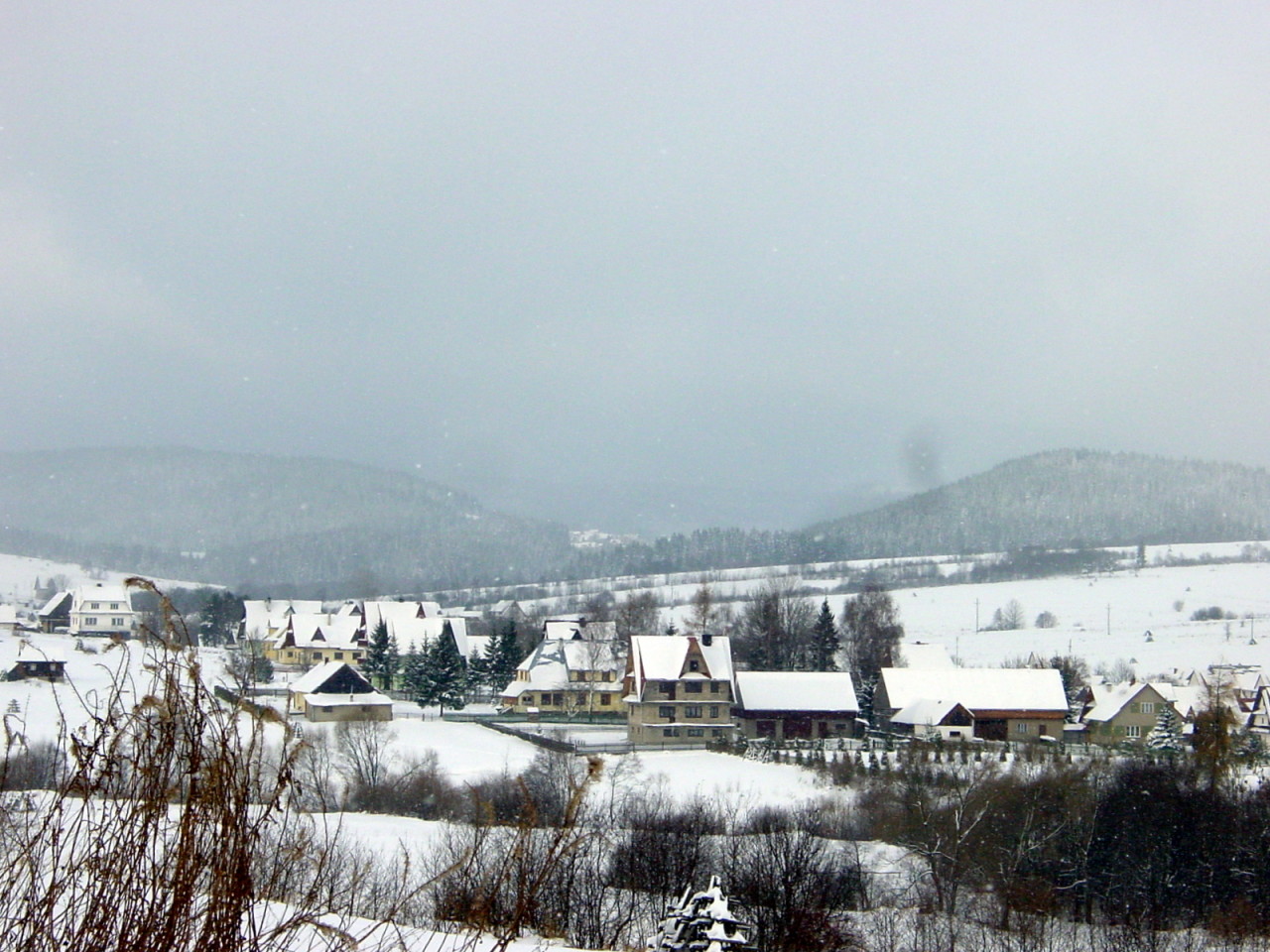
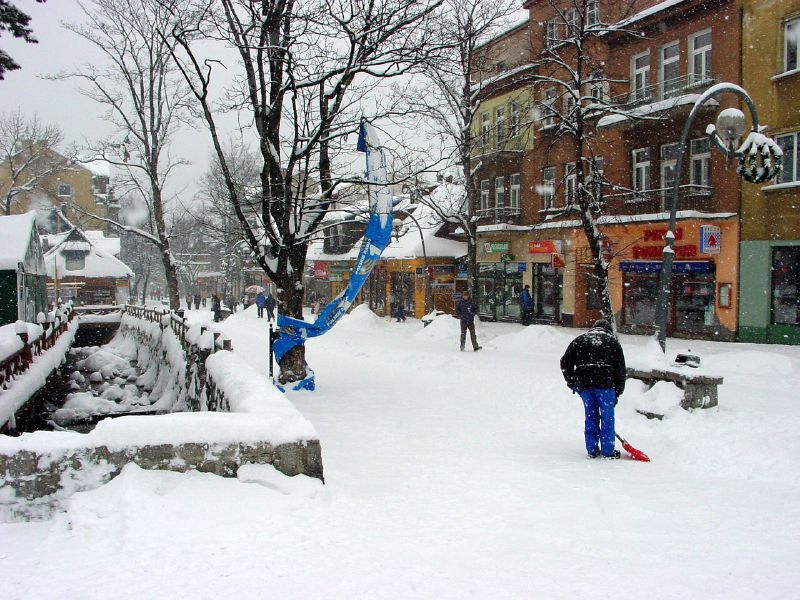
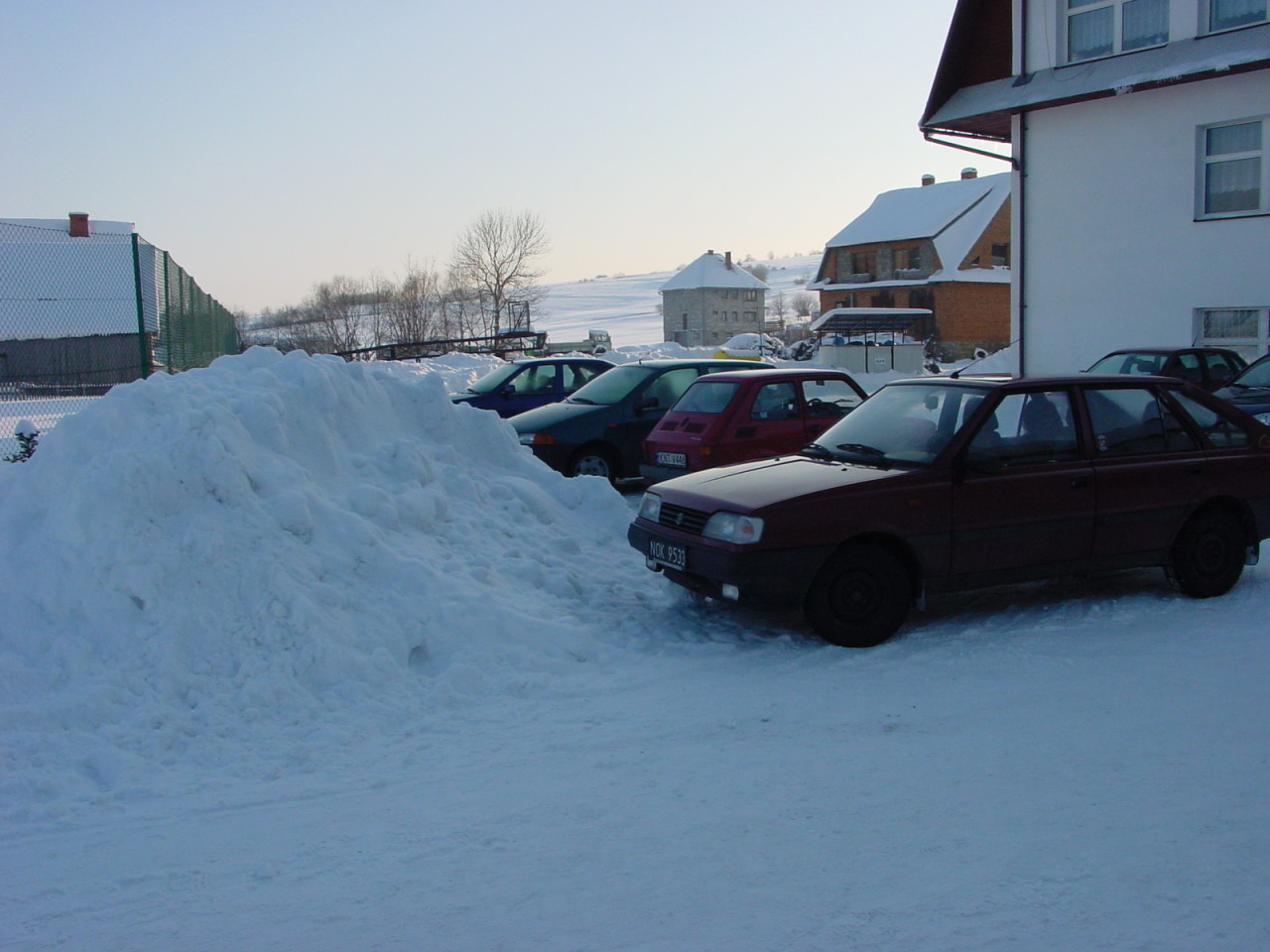
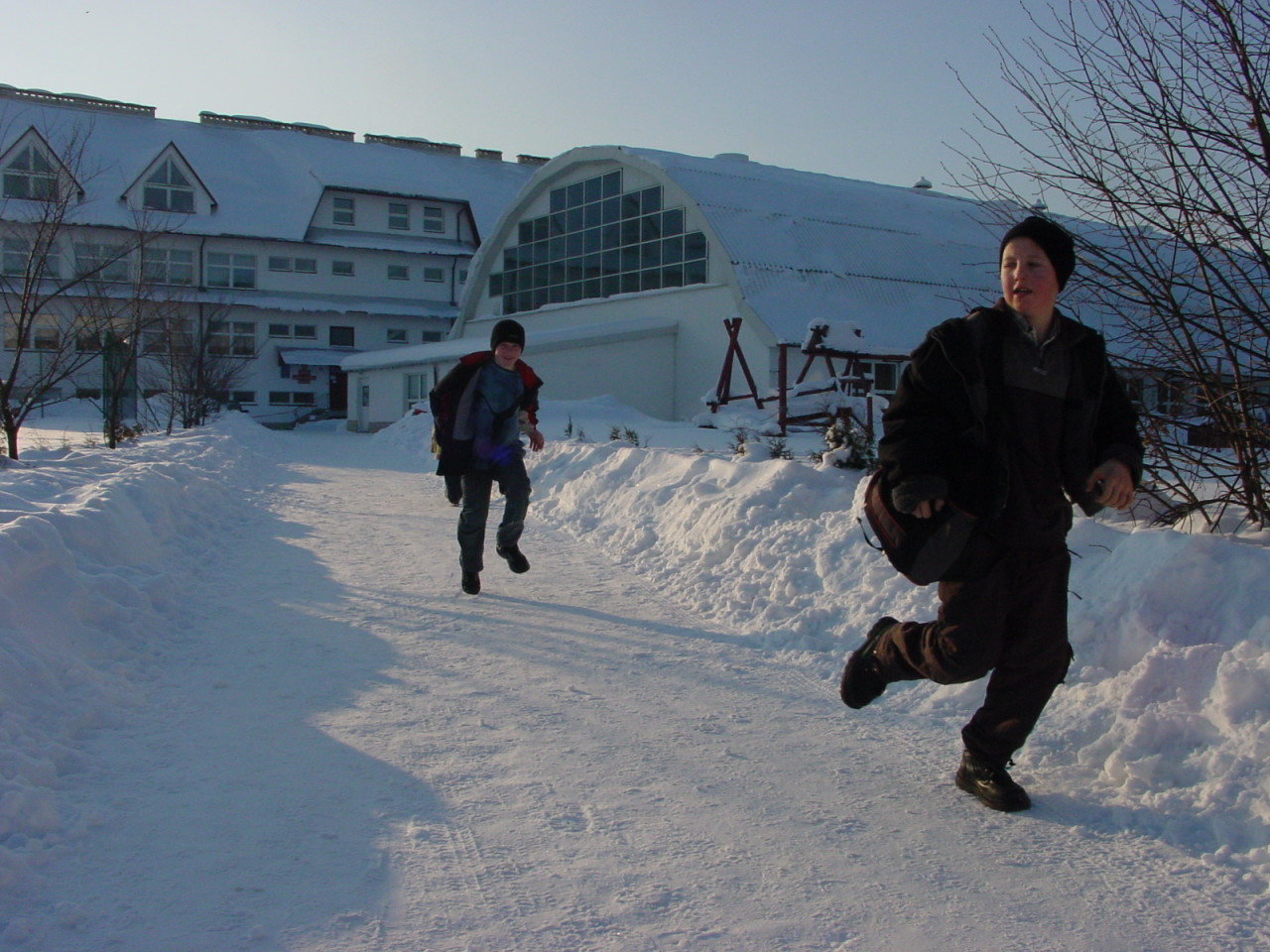
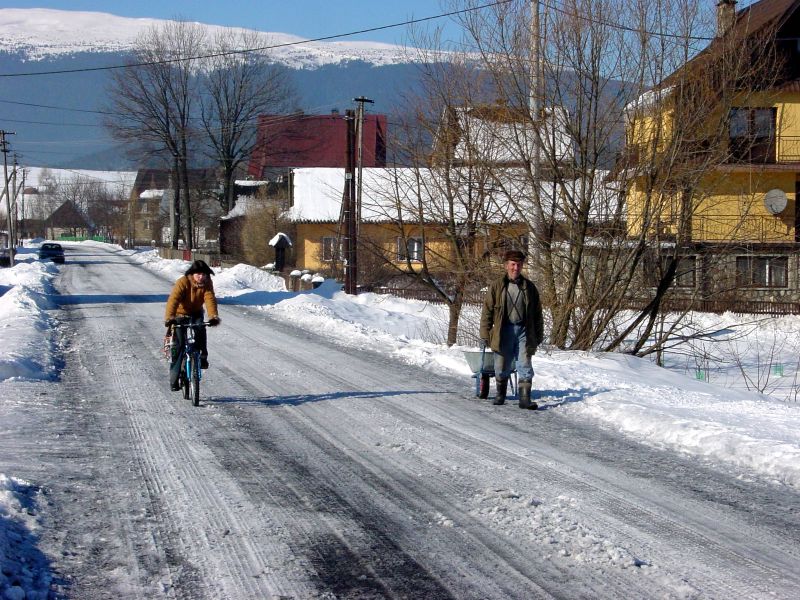
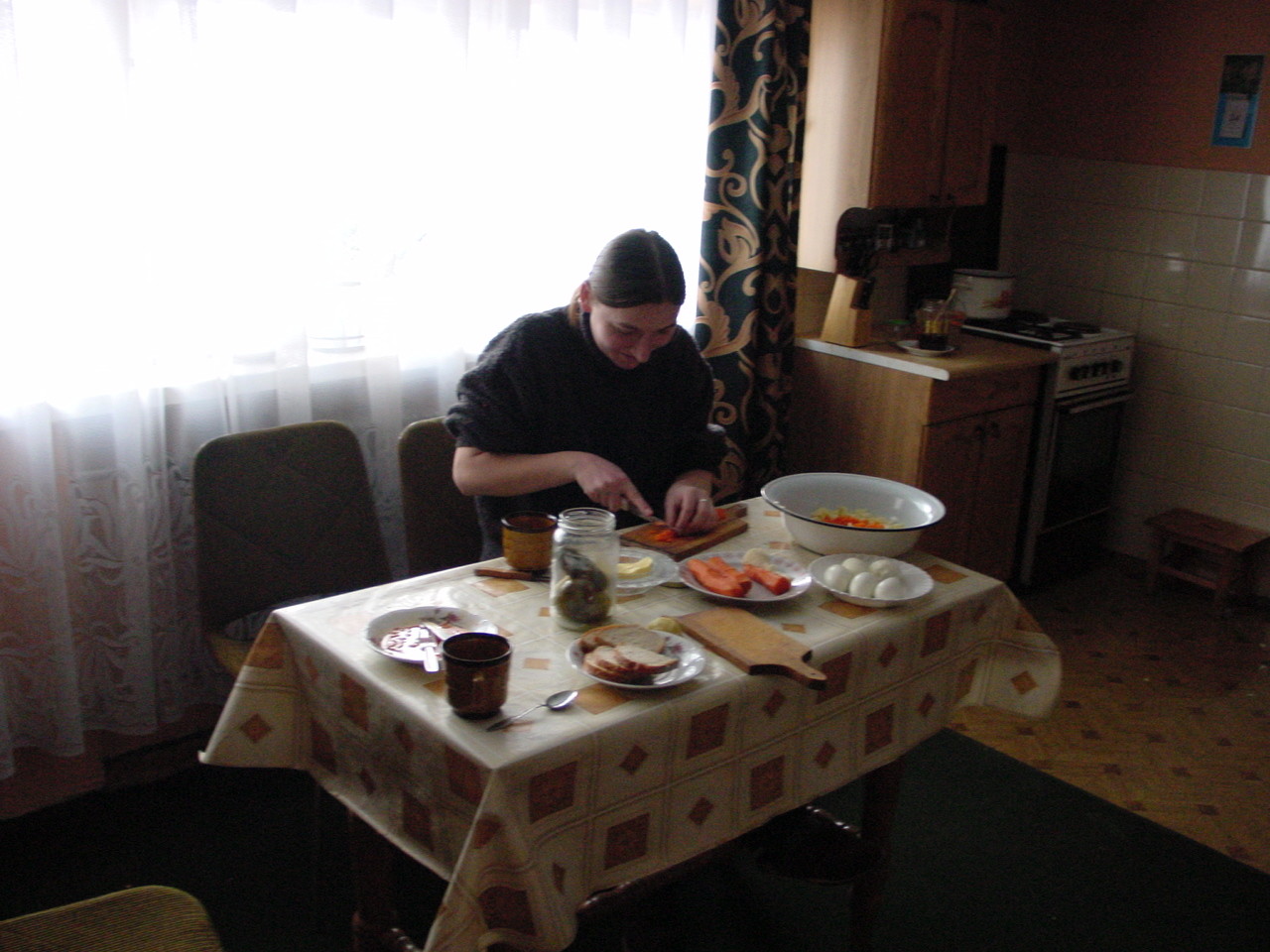
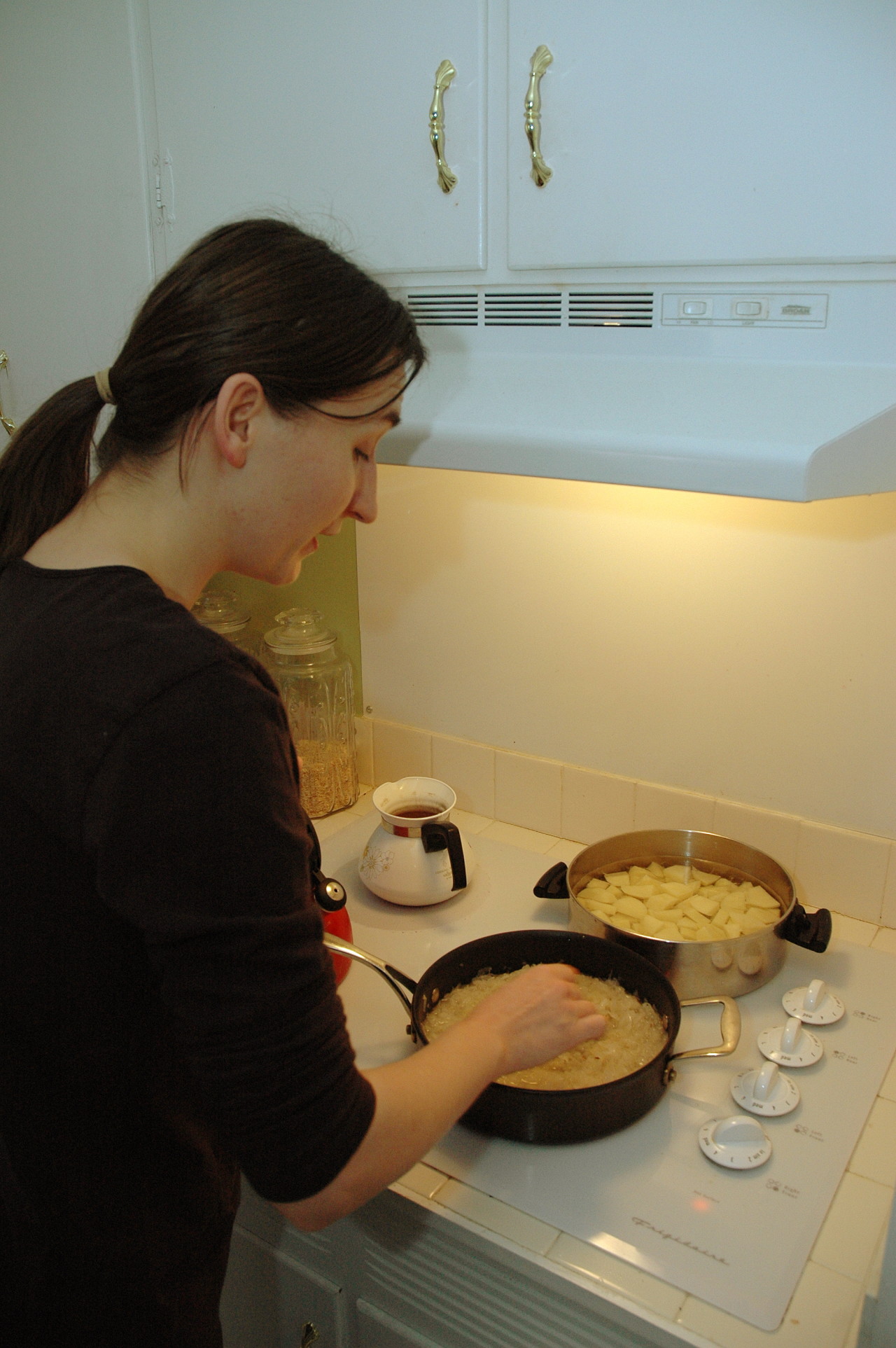
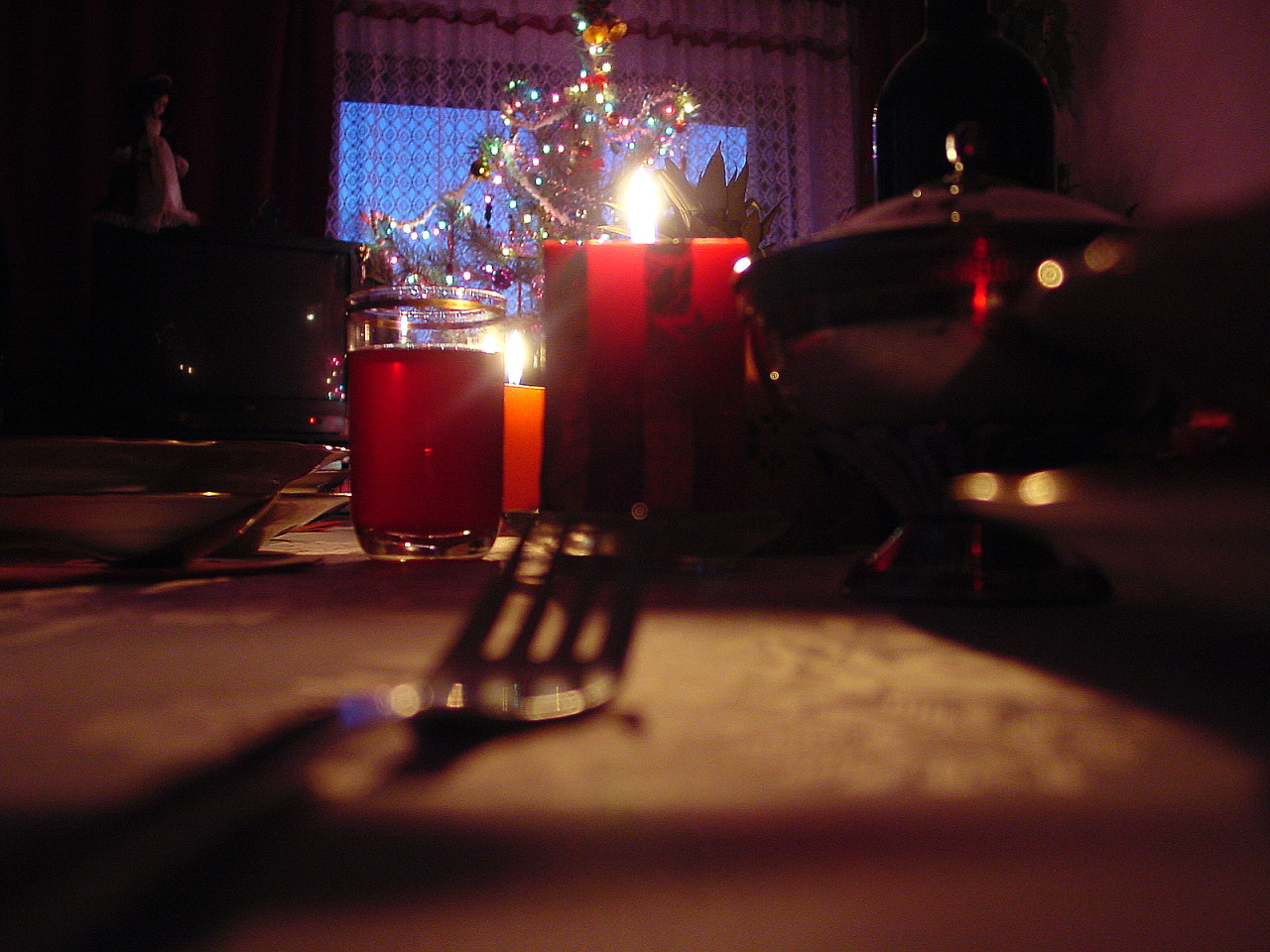
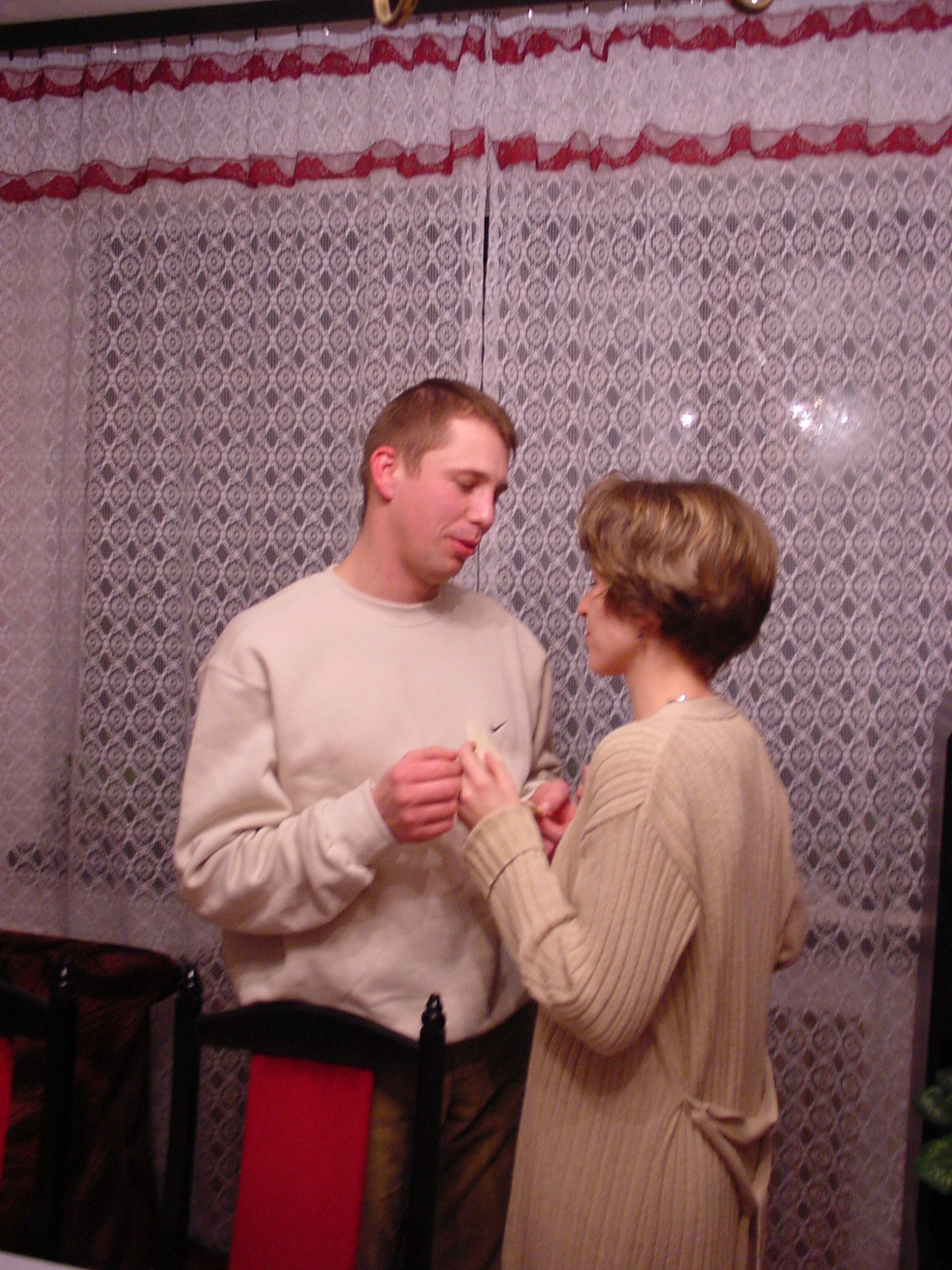
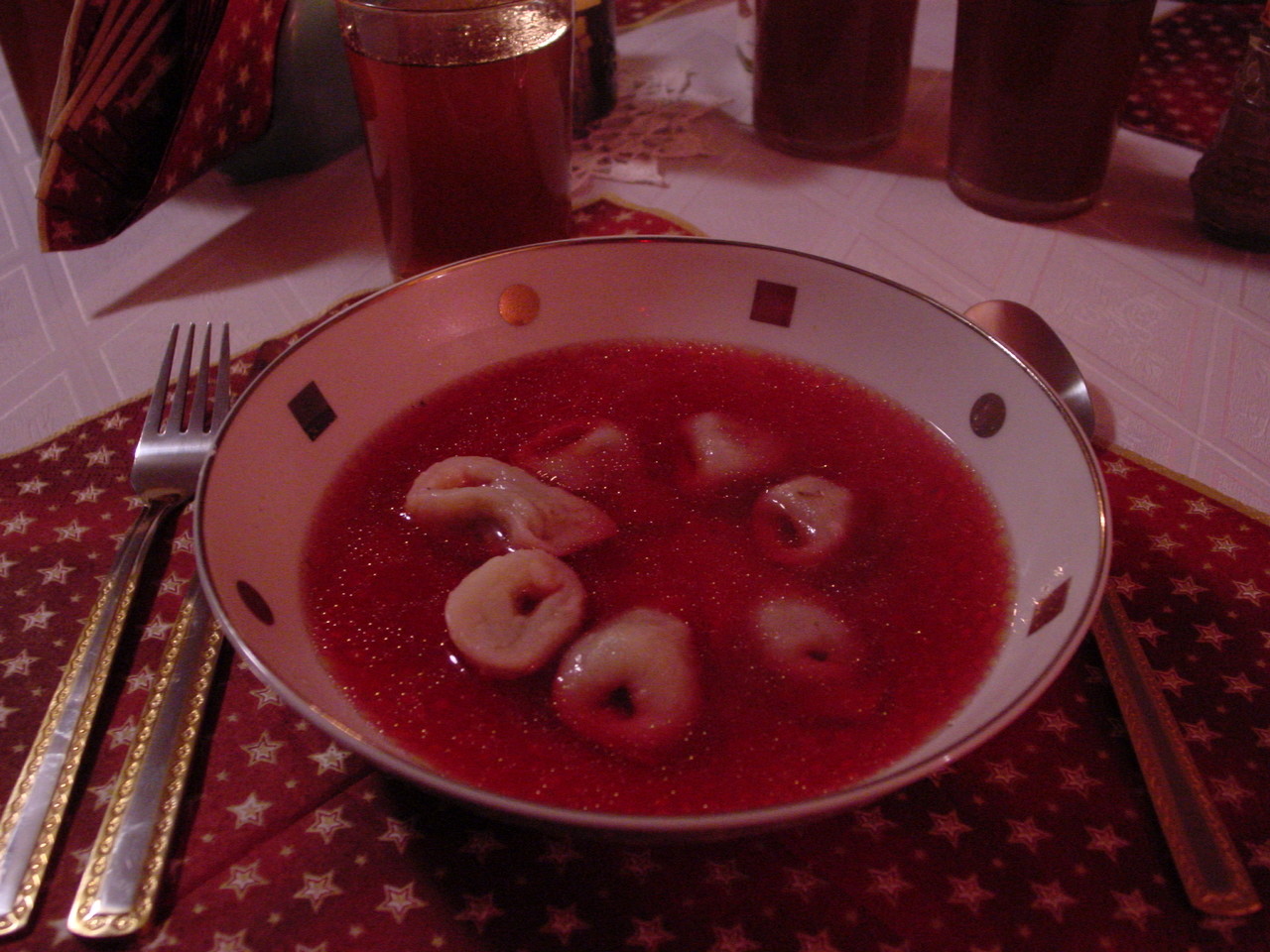
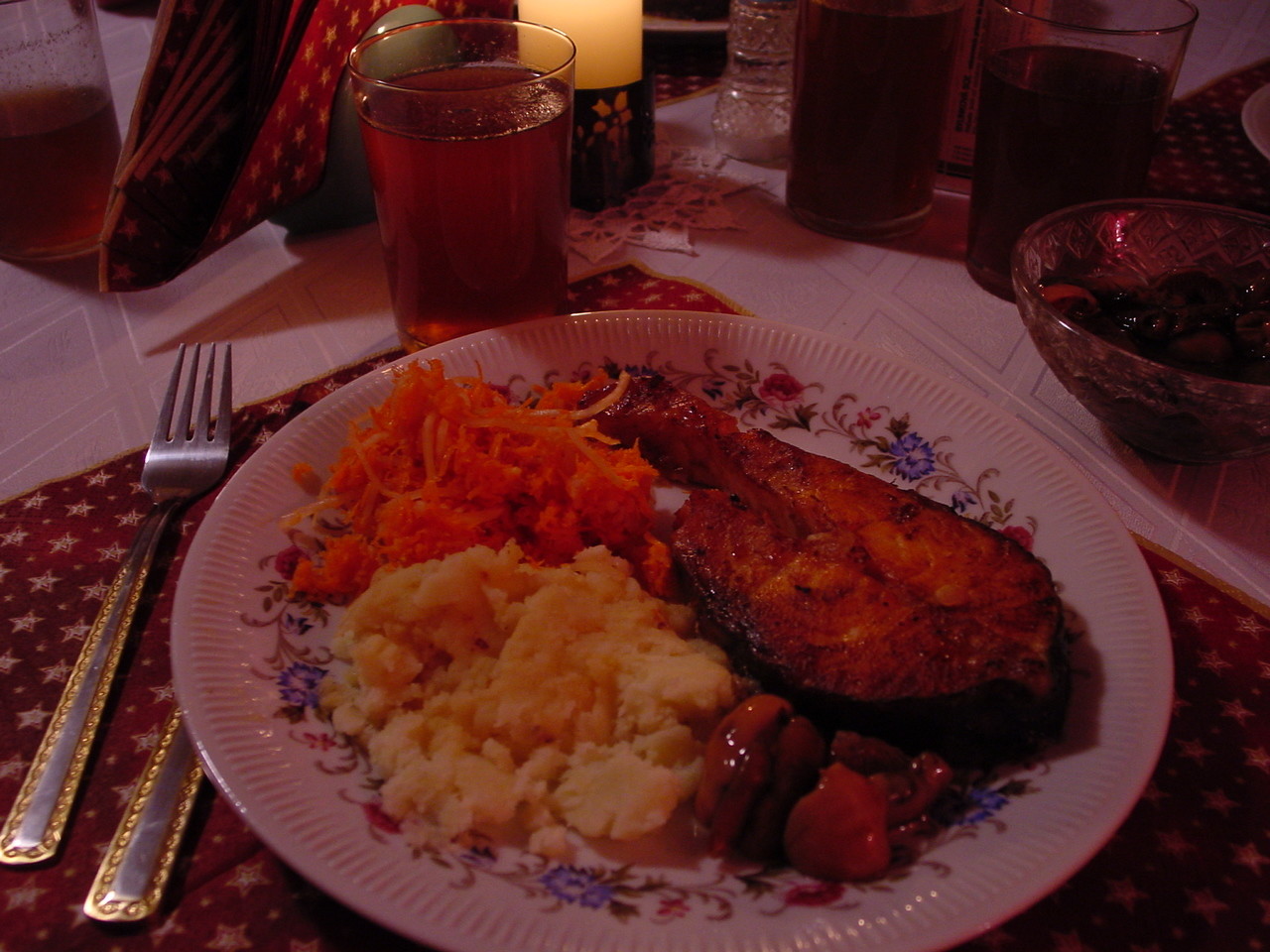

I skipped over the one picture I could find of friends breaking the opłatek, explaining that we’d come back to it, suggesting in my tone that it was a bit of a mistake to include it at all. Finishing up the presentation, I went back to the image of my friends sharing the Christmas wafer and explained the tradition to the students. “And it’s not just in people’s homes that Poles do this,” I concluded, “but also in school. I’ve always thought it might be interesting to share the opłatek tradition with students here in the States, but I could never find the wafers.” And I still have never found them here, in this part of the States. Yet it occurred to me this year that it’s not the actual wafer that matters; it’s the act itself, the tradition. So when K found pizzelle at Aldi, I knew I’d found my replacement.
“Hold it in your left hand,” I explained as I passed out the pizzelle, “and then break off a small bit from your friend’s.” I demonstrated, then smiled and wished them all a merry Christmas. What came next was the last thing I was expecting and the greatest gift students have ever given me.
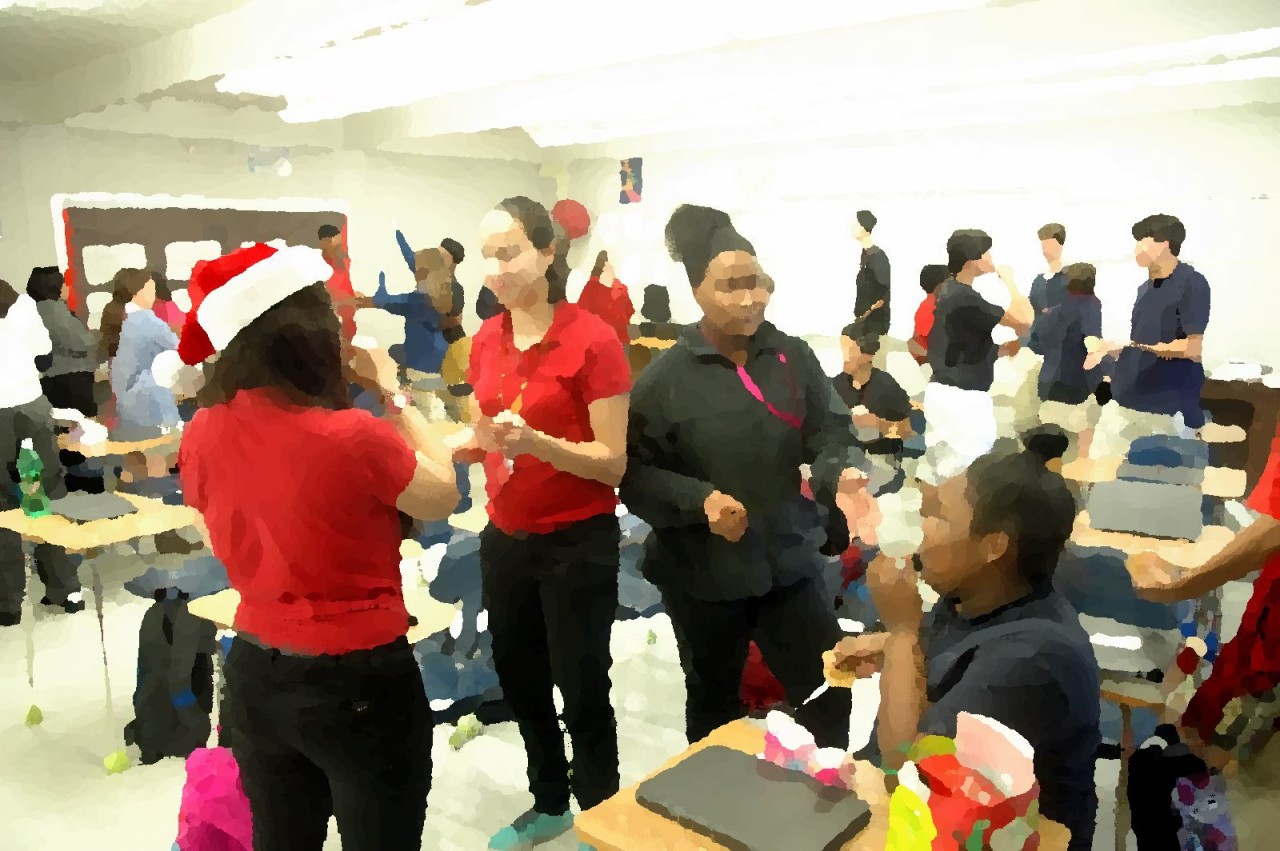
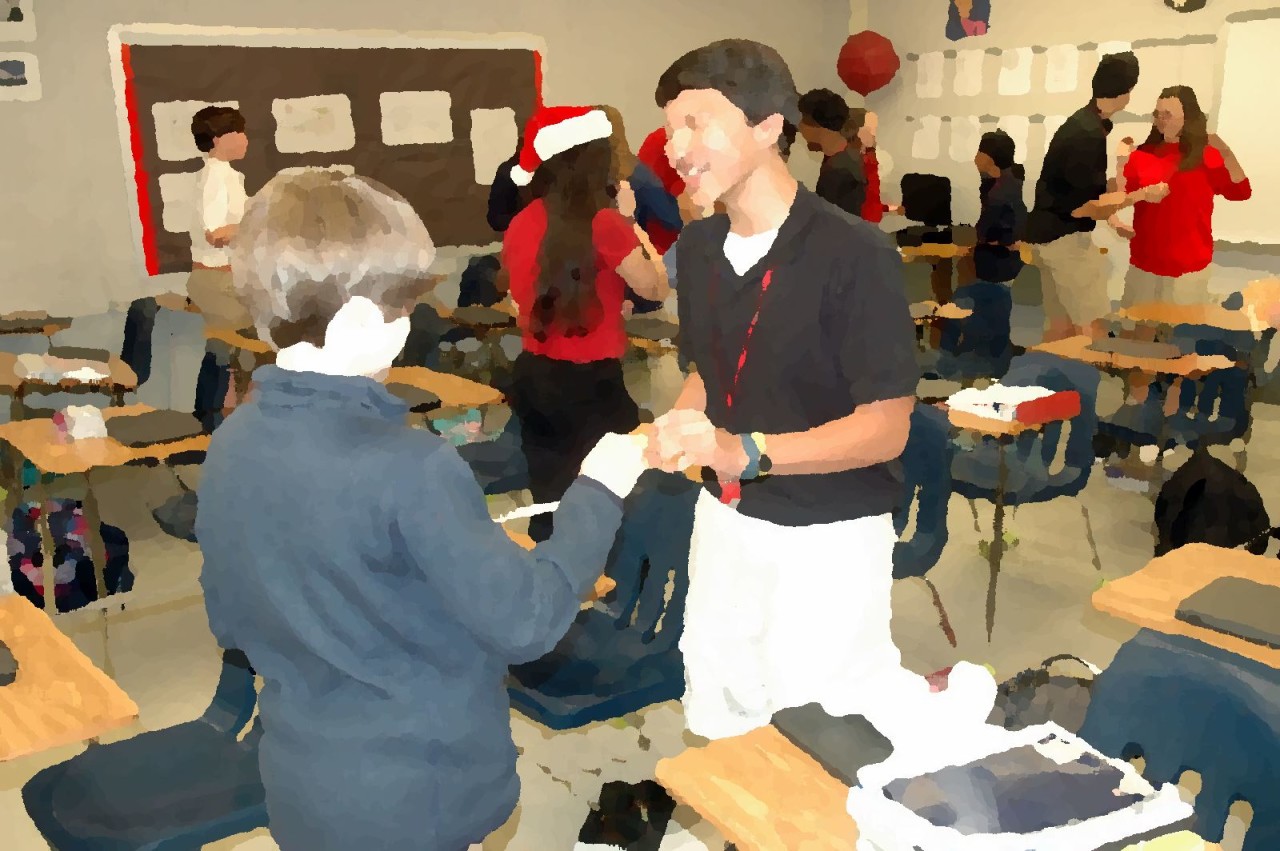
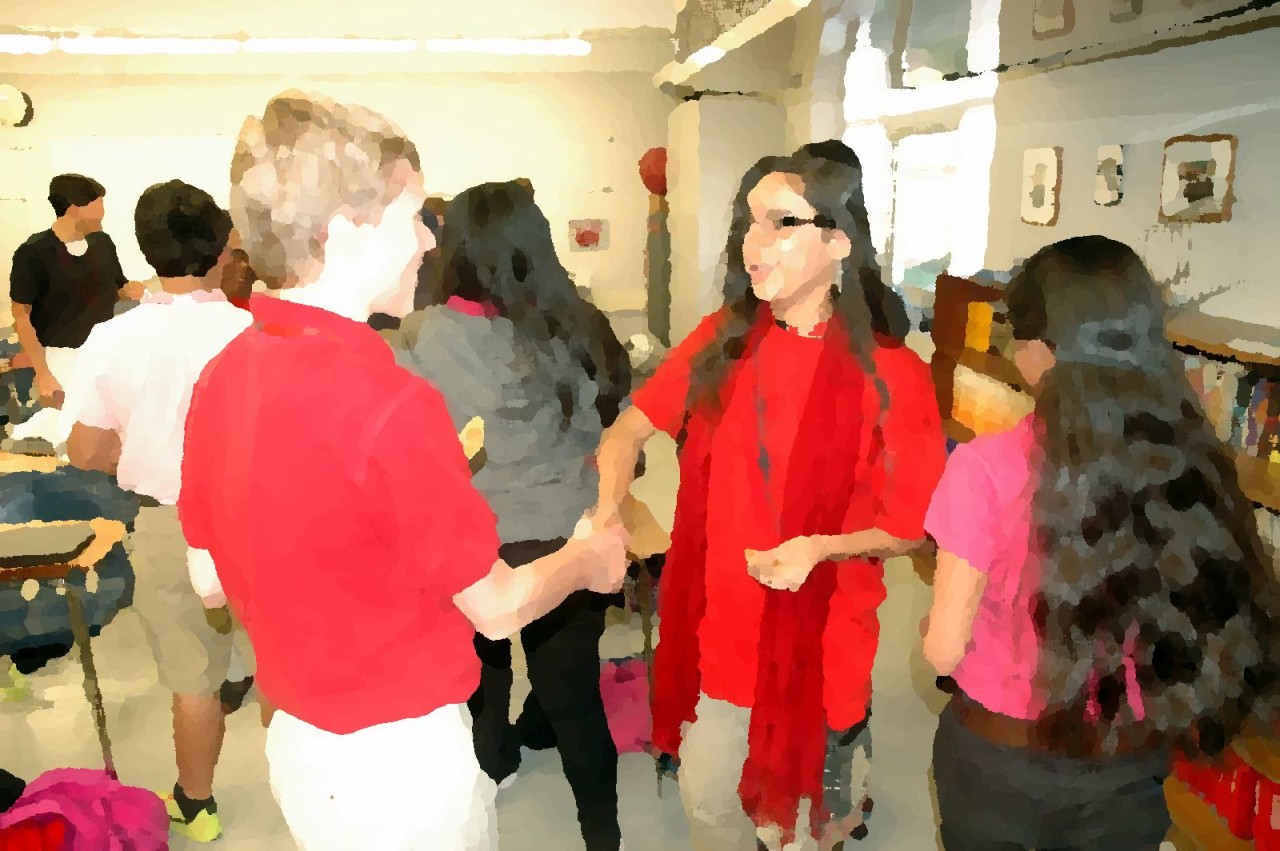
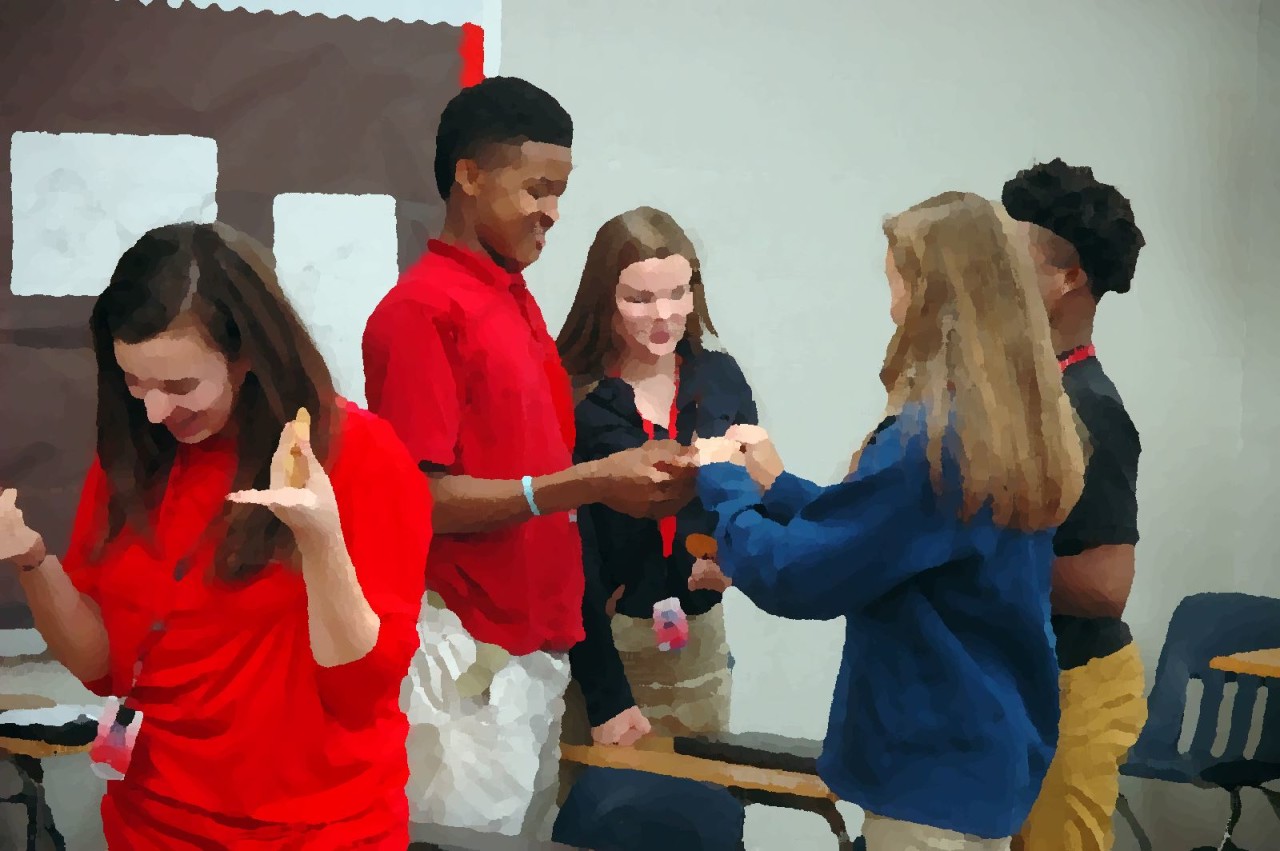
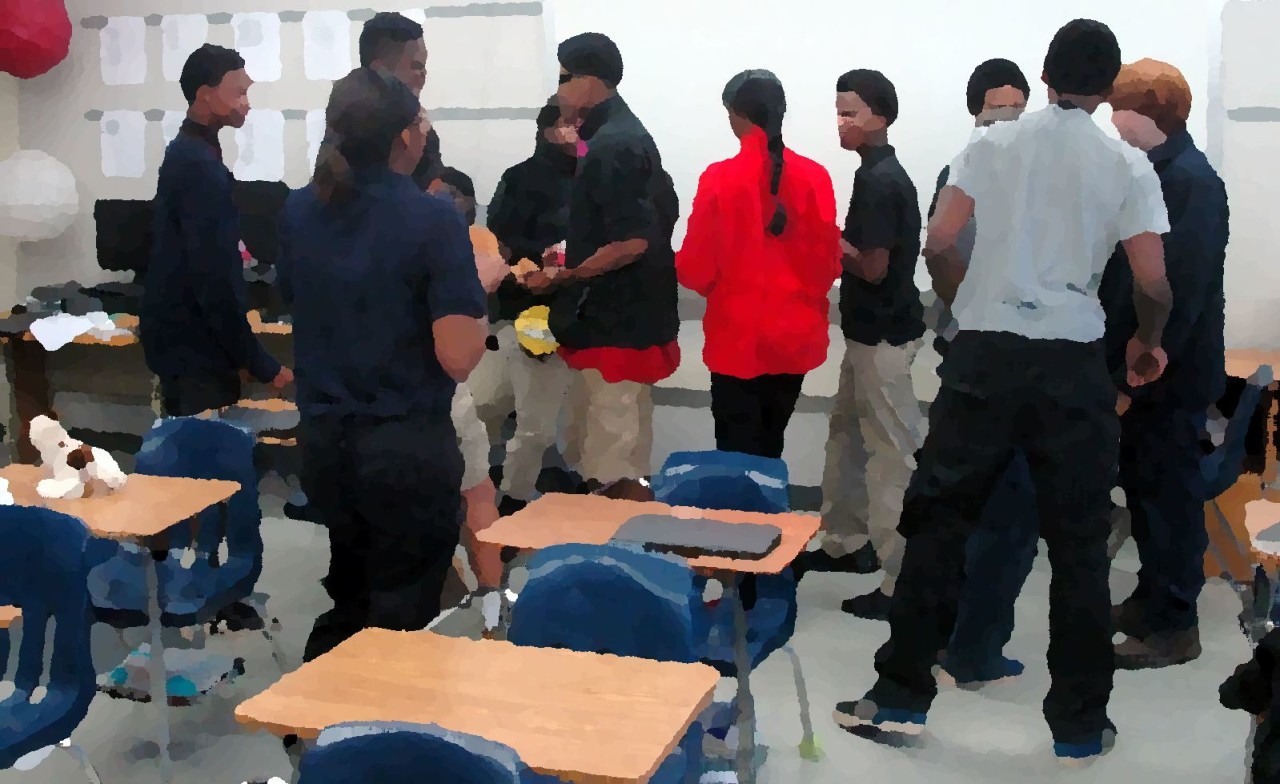
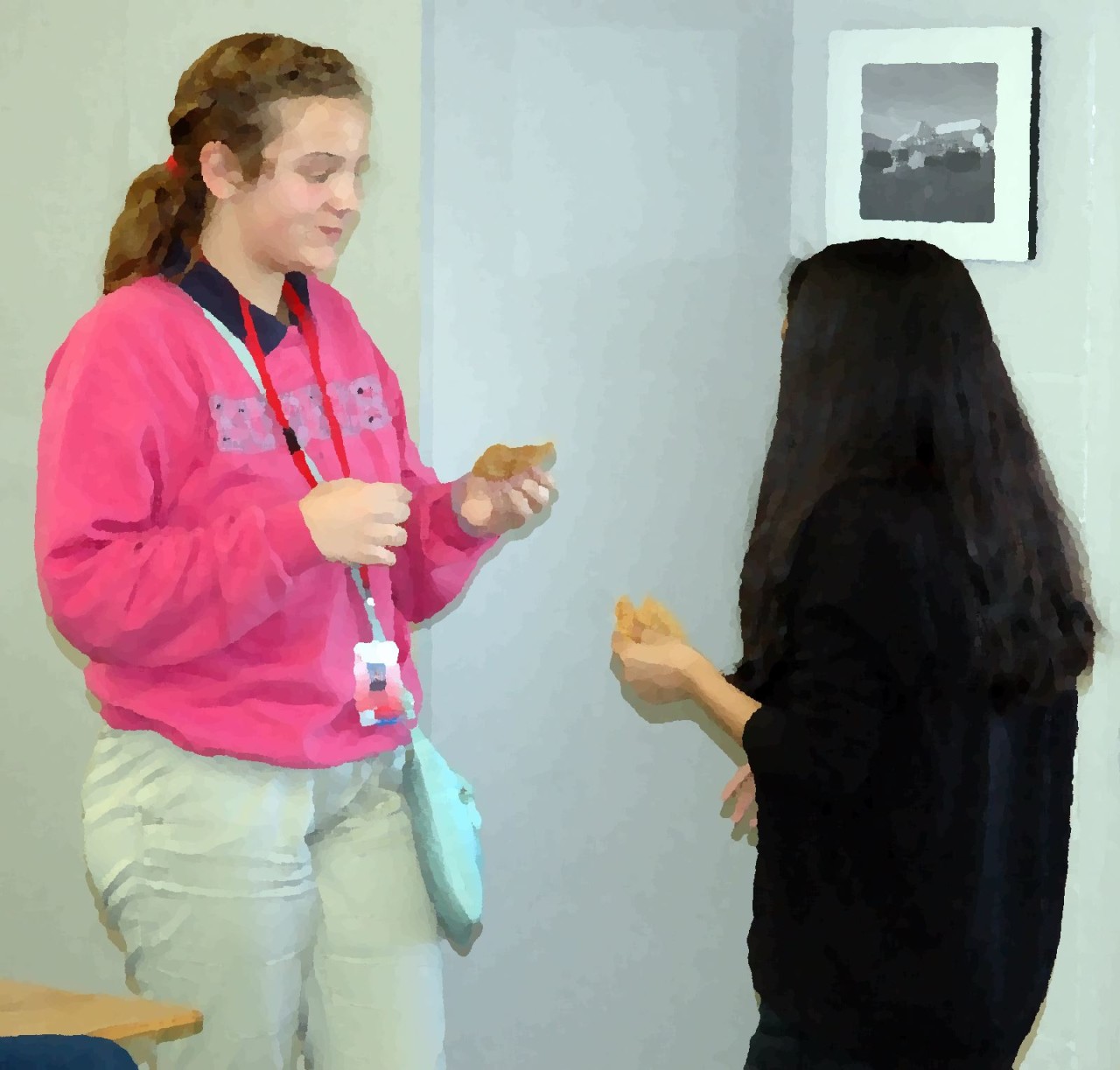
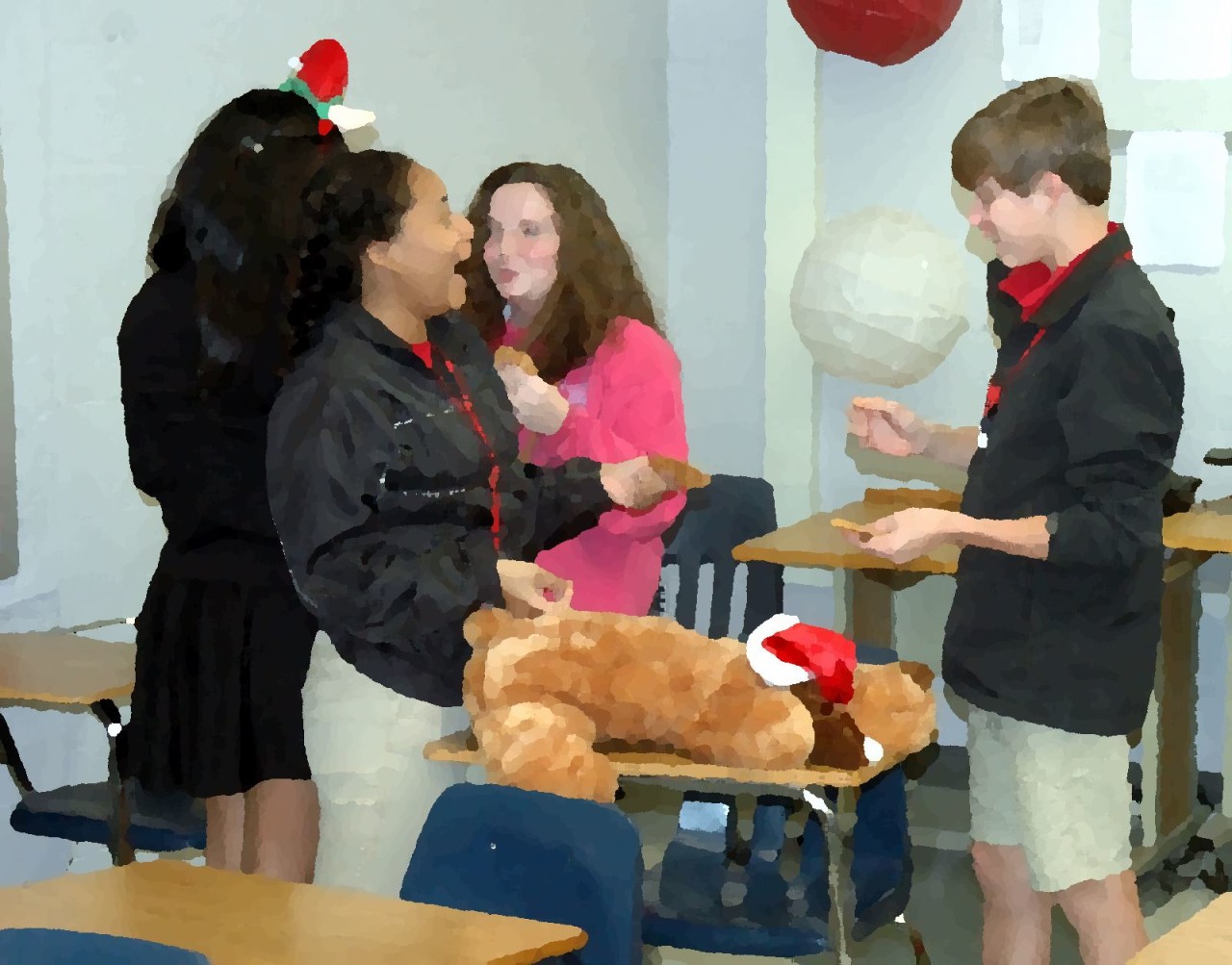
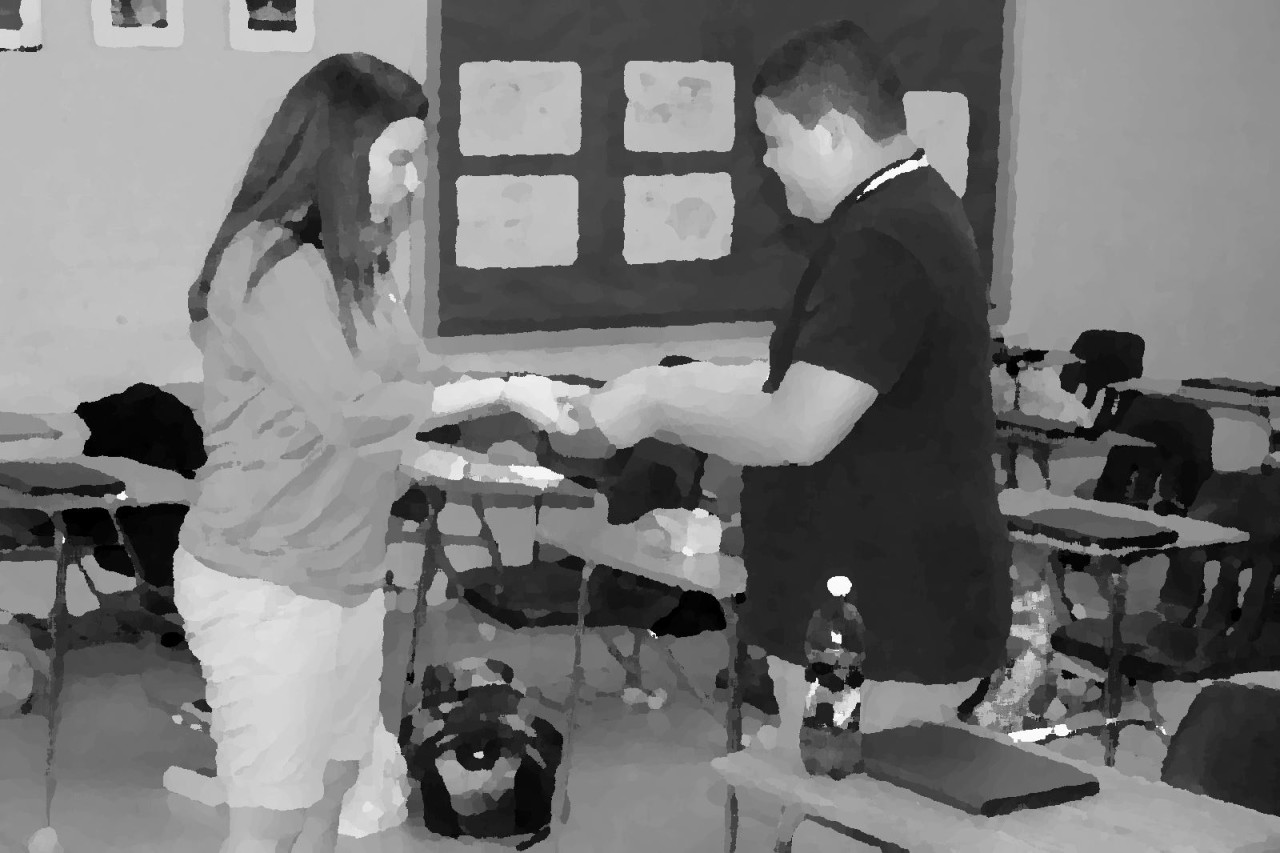
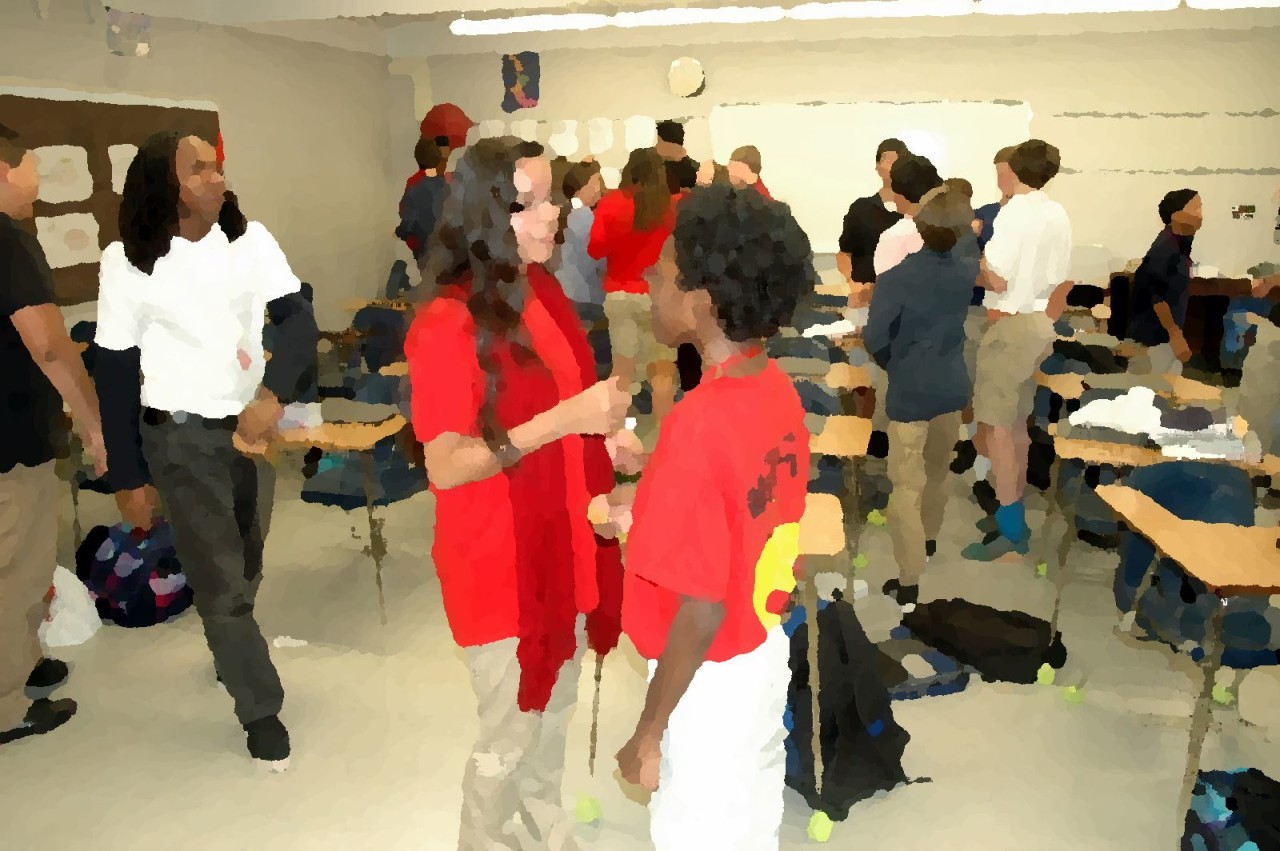
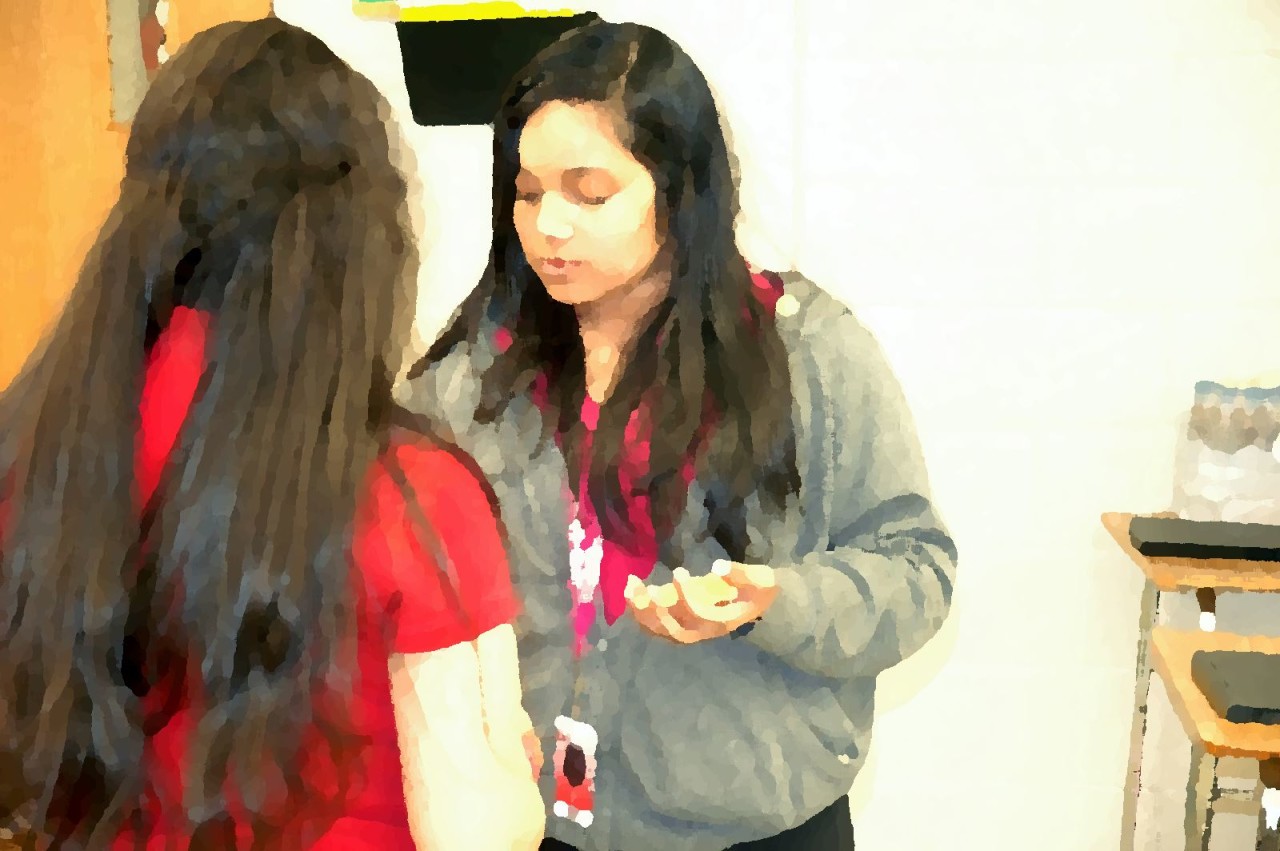
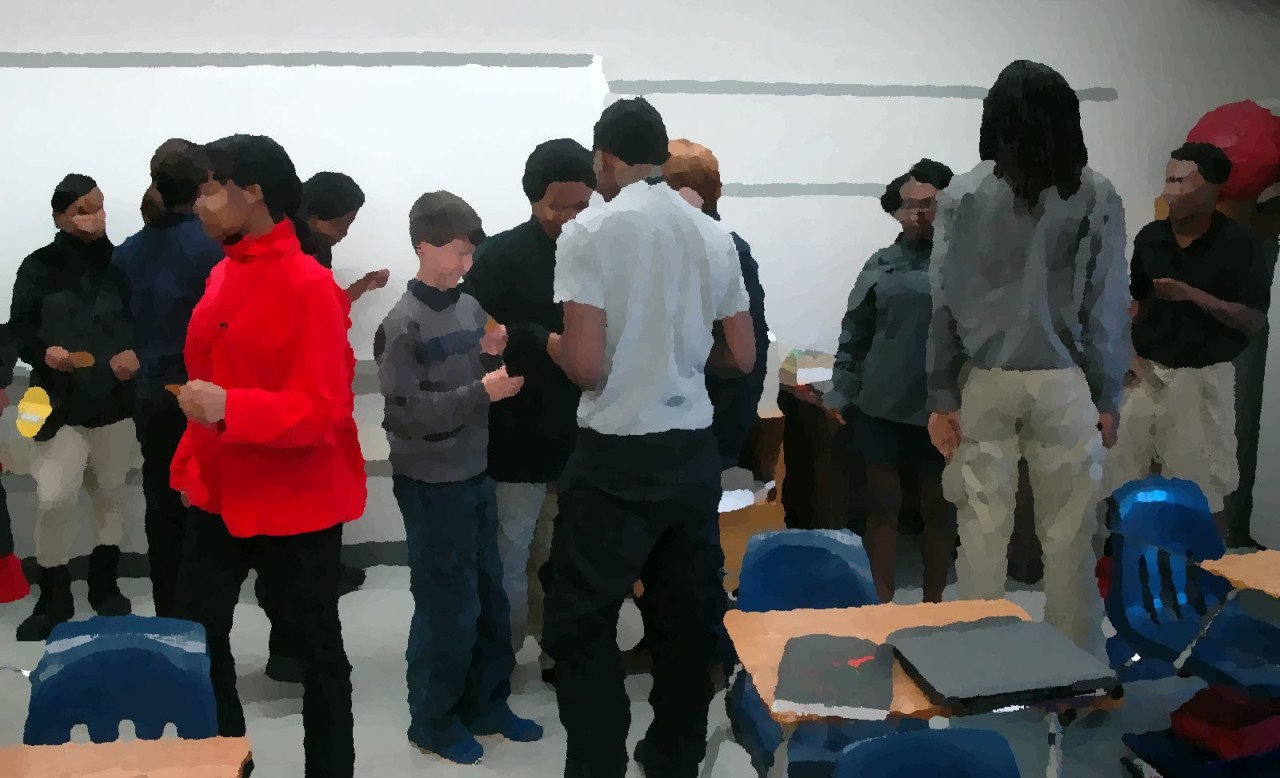
They picked up their wafers and acted as if they had been doing this all their lives. Kids who normally don’t get along were making an effort to search each other out and wish each other well. Kids whose behavior causes problems more often than not sought me out for special wishes. “I hope all your classes are better next near.” “I hope all the students behave next year.” There was such a level of warmth and joy in the classroom that I’ve truly never experience before. The way they embraced the whole act of offering each other wishes for the new year — it was as if they were drinking water after crossing a desert, as if they had been craving this so deeply and for so long. And once again, there was a noticeable difference in the classes: the groups that encountered less success in school were much more enthusiastic about it. And what I most feared, that some would break bread with a couple of friends and then sit down, never happened. The pizzelle finished, they continued talking, wishing each other well, hugging and shaking hands.
It was the most beautiful thing I’ve ever seen in a classroom.
As for our Wigilia, it was a low-key, quiet affair. Everything just a little less than the years before, and by choice. One soup instead of two; a couple of cakes instead of a pantry-full.
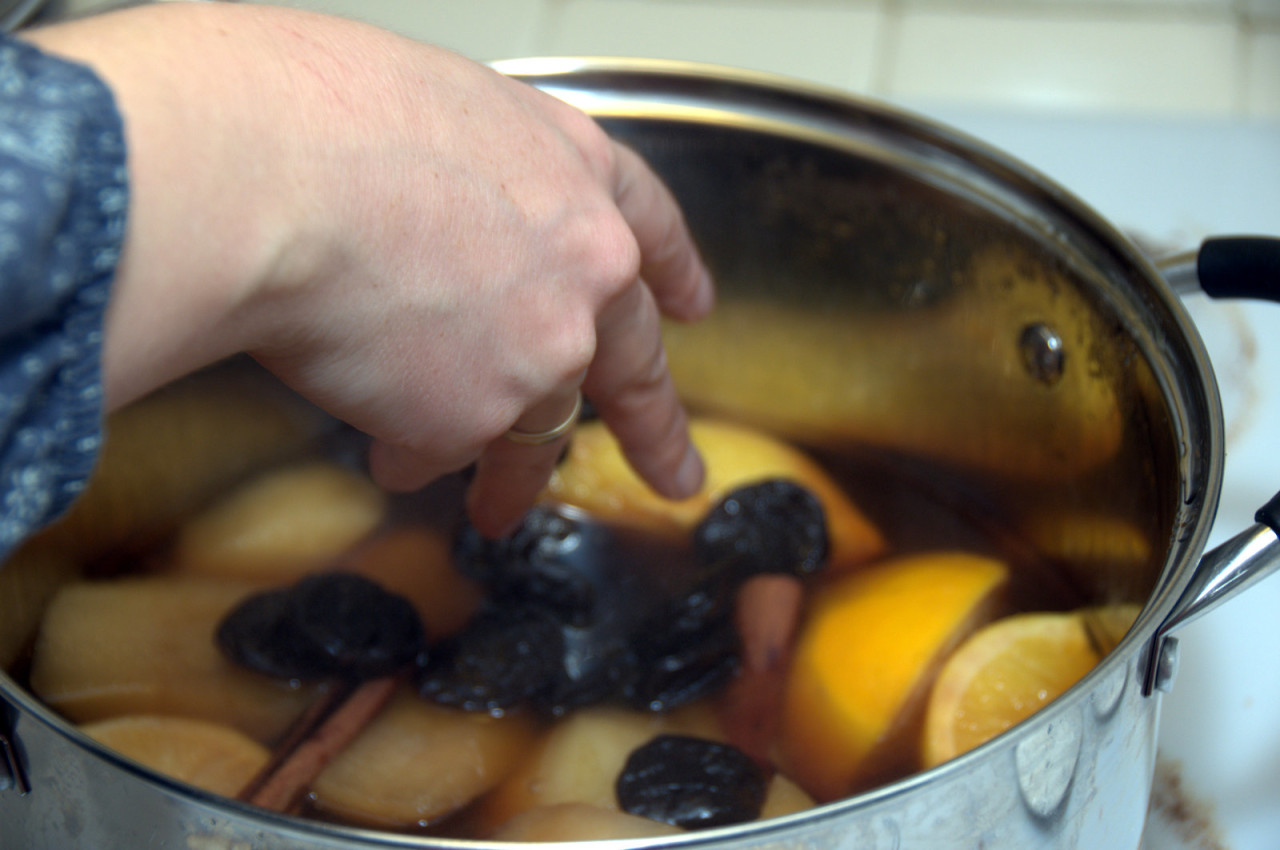



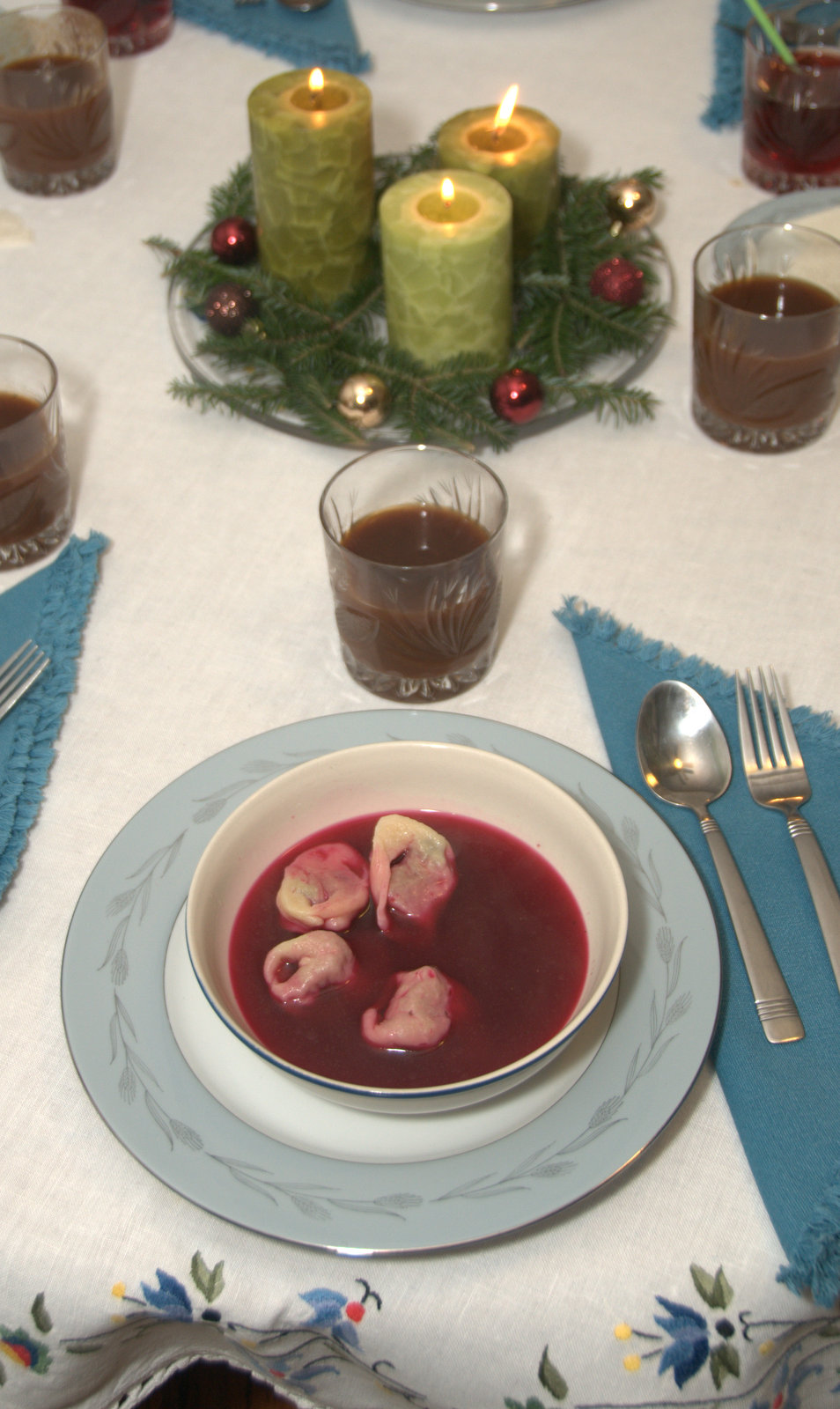


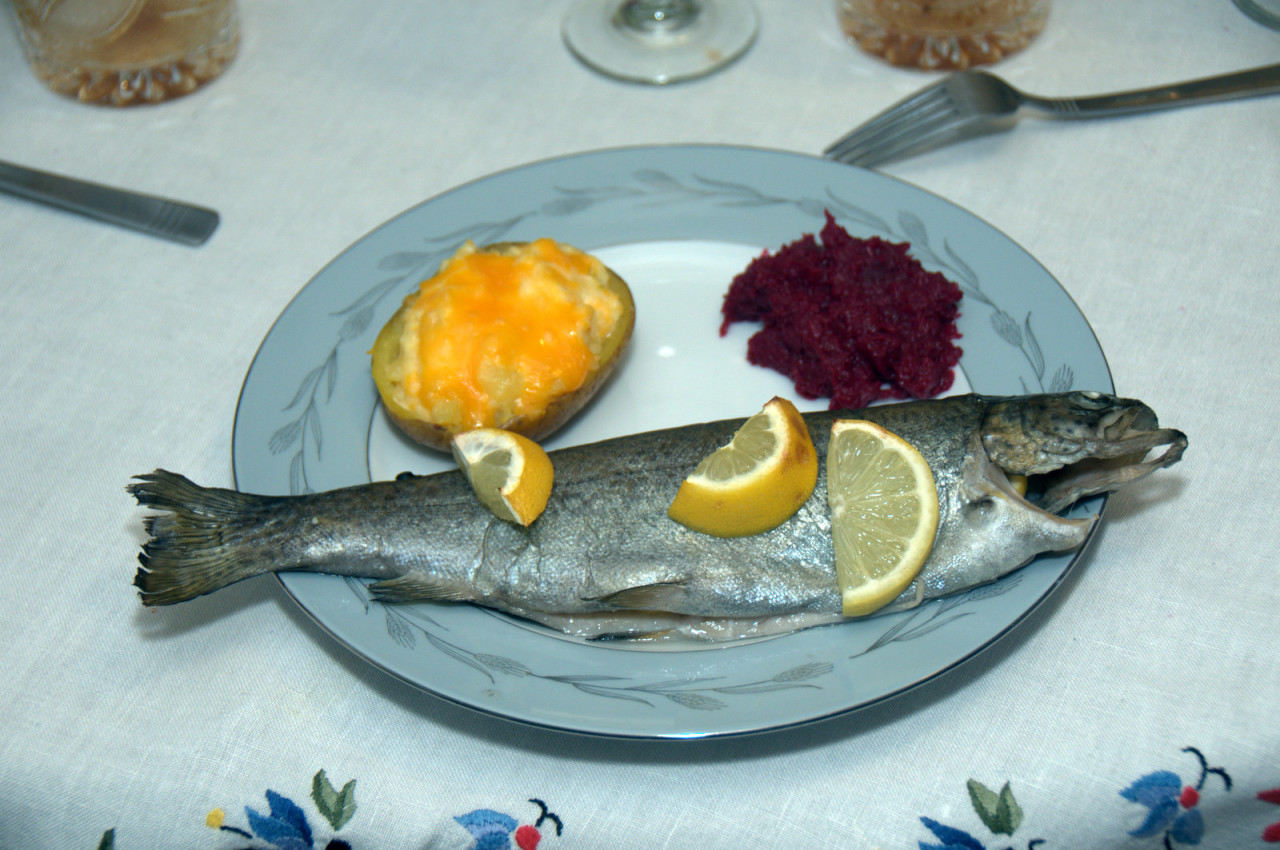
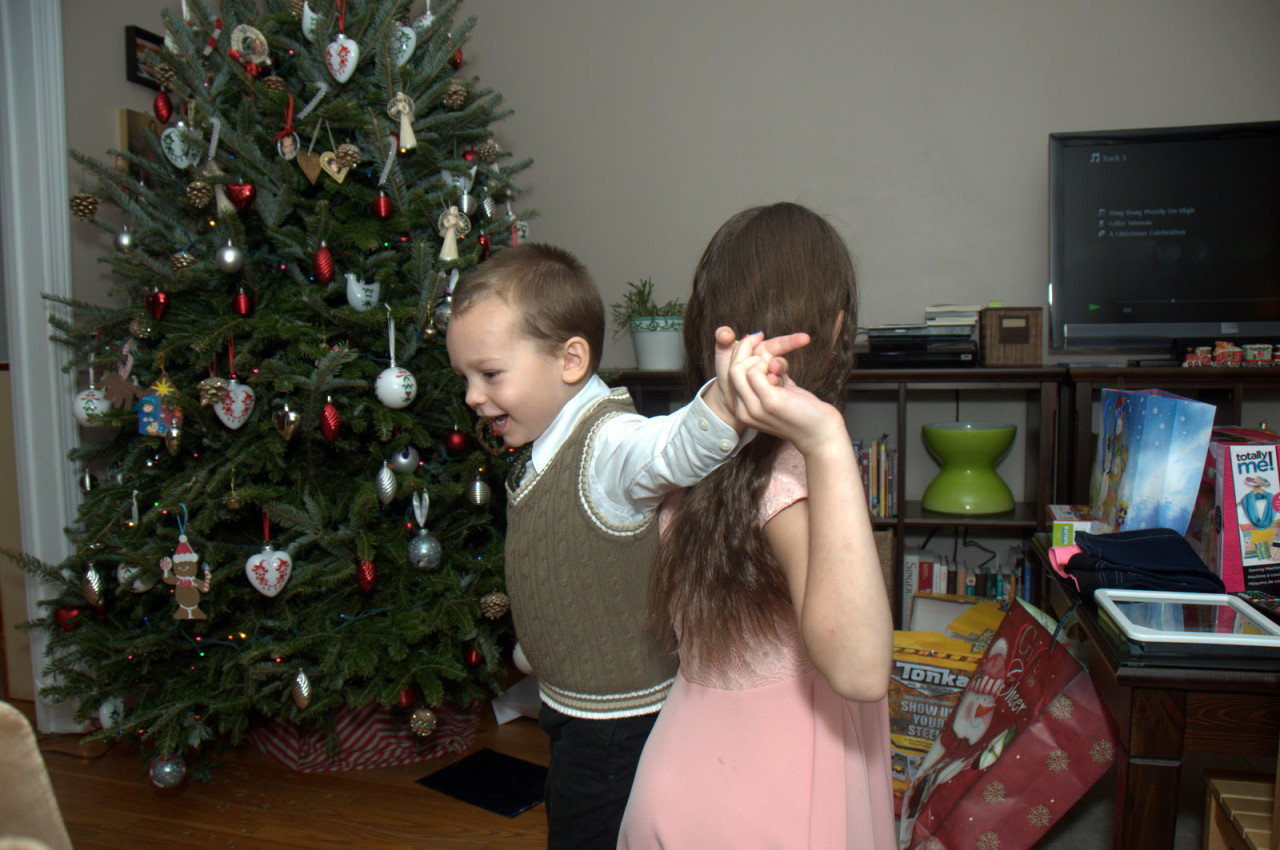
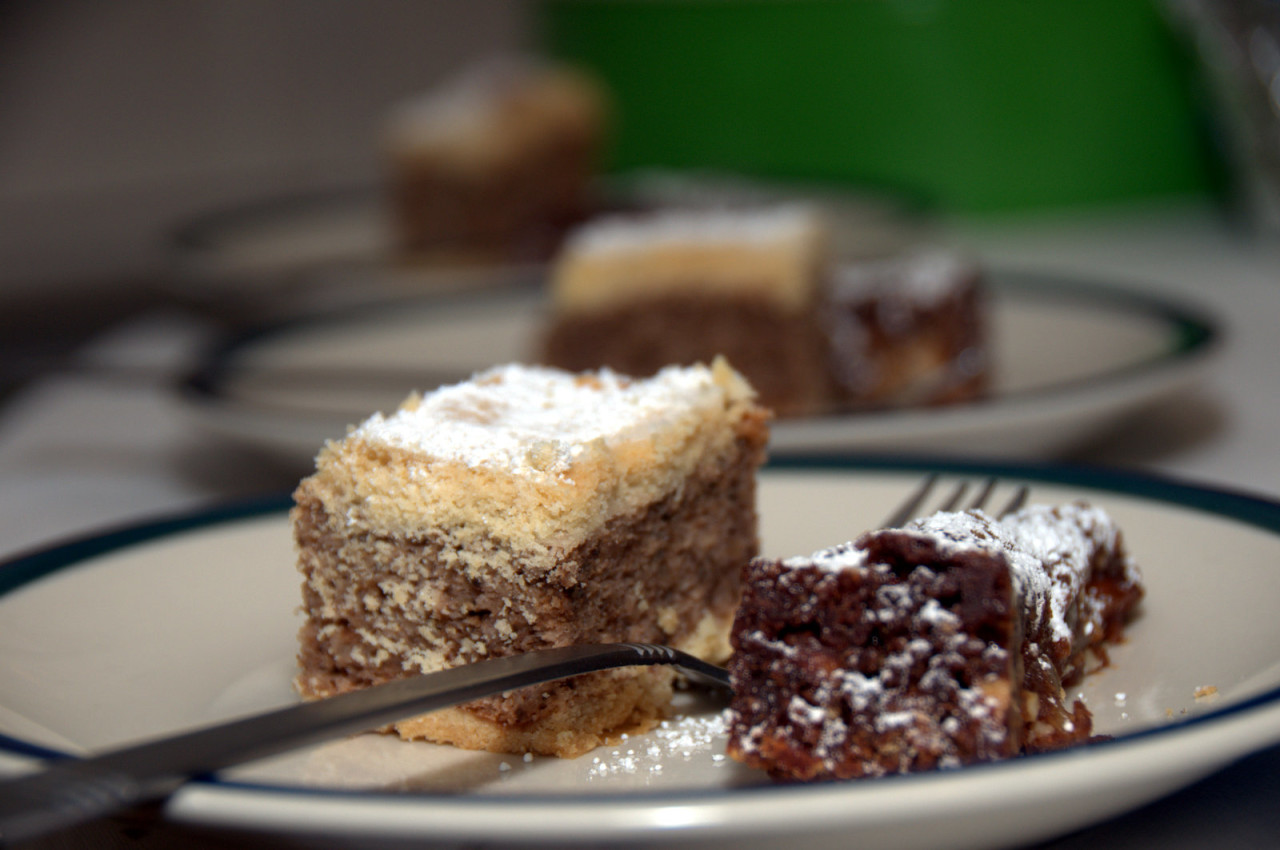
Fewer gifts, fewer guests — smaller, smaller, smaller. A good change.
Previous Years
Wigilia 2003
Wigilia 2004
Wigilia 2005
Wigilia 2006
Wigilia 2007
Wigilia 2008
Wigilia 2009
https://matchingtracksuits.com/2010/12/25/wigilia-2010/
Wigilia 2011
Wigilia 2012
Wigilia 2013
Wigilia 2014
Dnia Jednego O Polnocy
Wigilia Prep 2015
Carol: In the Bleak Midwinter (Instrumental)
A Family
The Girl: Daddy, E’s copying me!
Tata: And?
The Girl: He’s pretending he’s hurt.
The Boy: No, I’m not!
Tata: And?
The Girl: It’s driving me crazy?
Tata: And? You drive us crazy. He drives us crazy. We drive you crazy. It’s what makes a family a family.
More Pictures from Yesterday
Carols: O Ce Veste Minunata
“O Ce Veste Minunata,” a Romanian carol
Keeping Up
“If I passed you on the right then you’re an idiot.” On the way to the park, we were behind a car with that bumper sticker. I think it was homemade, because it had strange capitalization, and I’m not sure if it didn’t suggest that “your an idiot.” Perhaps I’m just projecting to create the irony. At any rate, I thought about the bumper sticker as the kids rode and skated ahead, returning when they got out of sight, then heading back out again, each time going a little further. Why would you go around calling random strangers idiots? Why would you worry about passing someone on the right so much that you’ll plaster an insult on your car? And of all things, why that annoying driving habit? Why not just be glad that you don’t have to worry about someone leaving you behind?
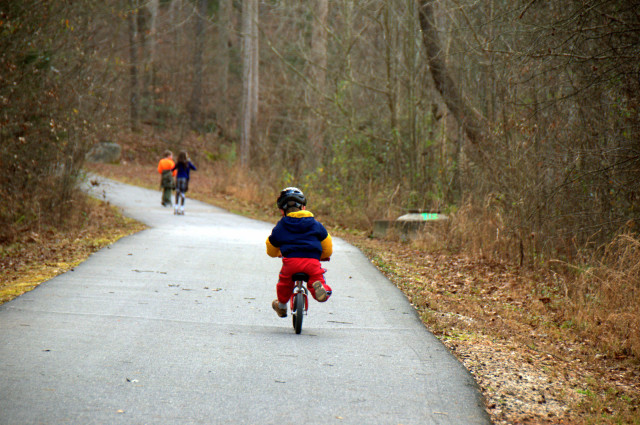
Carol: Mizerna Cicha
Kasia Kowalska – “Mizerna cicha”
Day Two, at the Park
The days before Christmas Eve are all about preparation. There’s so much to clean, so much to cook, so much to get ready just to cook or to clean. There’s an art in knowing when to help and knowing when helping is simply getting out of the way.
Today, K made the pierogies for Christmas Eve, and while she was at it, she used up the rest of the chicken from Wednesday’s rosół (L’s favorite, made especially for her birthday) to make some chicken pierogi. All in all, she made well over a hundred of the little dumplings, which means that flour was flying all over the place.
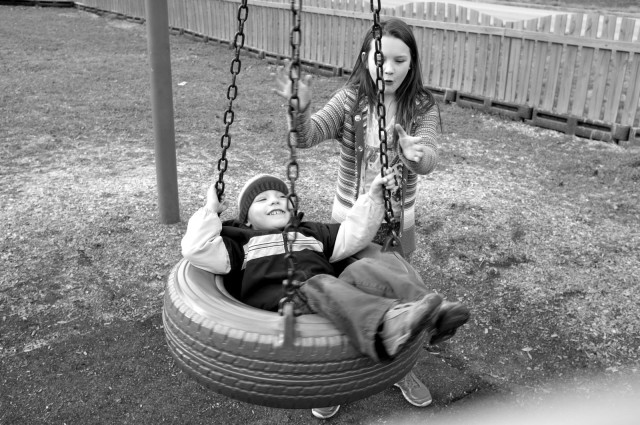
Were the kids there, cries of “Can I help?” and “Why can I help?” and “L could help — I want to help!” and “Can I have some dough?” and a thousand other things would be a constant added challenge to gauging the amount of filling versus dough to make it all come out, the challenge of making cutting-board full of dumplings quickly enough that the first ones don’t dry out before the whole board gets slipped into the freezer. Not to mention one’s sanity.

So after lunch, I packed the kids and their bikes into the car and headed to the nearest park. Southside is not nearly as crowded on it’s busiest Sunday as Cleveland Park is on an average Sunday, and when we arrived today, we had the park almost all to ourselves.

Almost as soon as we arrived, a young man with a yellow safety vest and an unsteady stride approached us. “Hi,” he smiled awkwardly, then pointing to his bandaged wrist, asked, “What’s this?” I looked at his vest, which has his name printed on it and a telephone number, and it was quickly clear that the young man had Down’s Syndrome. I looked at his wrist and replied, “It looks like you hurt yourself. Are you okay?”
“Yeah, I’m fine. What’s this?”
I explained again, glancing around to see where his parents might be, glancing at L and E to see where they were.
“What’s this?” came the voice again.
E was approaching me at that point, calling out his usual mantra — “Daddy, come play with me!” — so I simply repeated my explanation and excused myself. The Boy and I headed to the biggest slide on the playground, and glancing back at the yellow-clad boy, I saw him head to another father on the playground. Pointing to his wrist, he was clearly asking the same question of almost everyone, and it was still unclear where his parents might be.

“Who was that, Daddy?” L asked as she ran up beside us as we headed to the bigger playground with it’s enormous slides.
“I don’t know, sweetie.”
“Then why were you talking to him?”
“He was talking to me,” I replied, knowing where the conversation was heading.
“Why?”
I explained, and L, having recently become aware of the autistic students in her own school, asked if he had “bad autism” or just “a little.”
“He isn’t autistic, honey. He’s mentally retarded. He has something called Downs Syndrome.”
“What’s that?”
I explained it quickly, and since we were then at the bigger playground, she found that explanation adequate and ran off to mount the ladder to the slide.

Still no sign of the lad’s parents, but by then, my attention had shifted to the Boy’s climbing. Lately, he’s grown more confident and more willing to take risks, which means he was climbing on things like the chain ladders that just a few months ago were unthinkable challenges for him.

I stood at the base of the slide, waiting for him. As he climbed up the ladder, my view was briefly obstructed, and the normal parental thoughts paraded: What if he falls? Should I be by him to help?

I stayed where I was. He didn’t fall. I learned the same lesson for the millionth time: I have to let go. I have to step back. I have to let him fall.
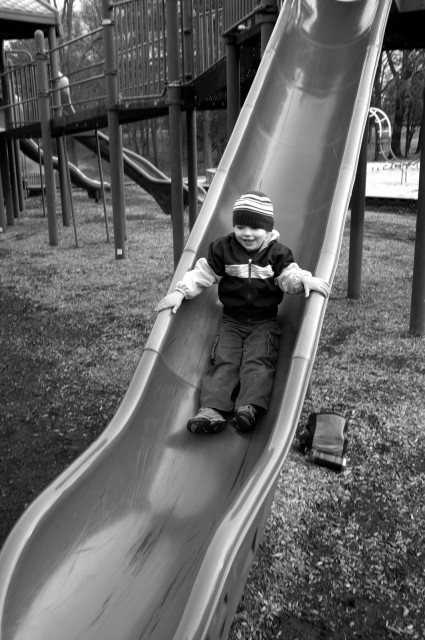
And later, when they were riding their bikes in the empty over-flow parking lot and the Boy fell, I walked calmly over to him, calling, “Oh buddy, it’s nothing. Get up — brush it off. You’re fine.”
I never figured out who the yellow-clad young man’s parents were. He talked to almost everyone in the playground and wandered freely. In fact, I wondered whether or not they were even at the park. Maybe they dropped him off and went somewhere for a while. Shopping? Who knows. Yet I’m not willing to make any kind of judgment about their parenting choices. They’re probably just letting him climb alone for a while.
(Final pierogi count: 148.)
